WORKSHOP REPORTS
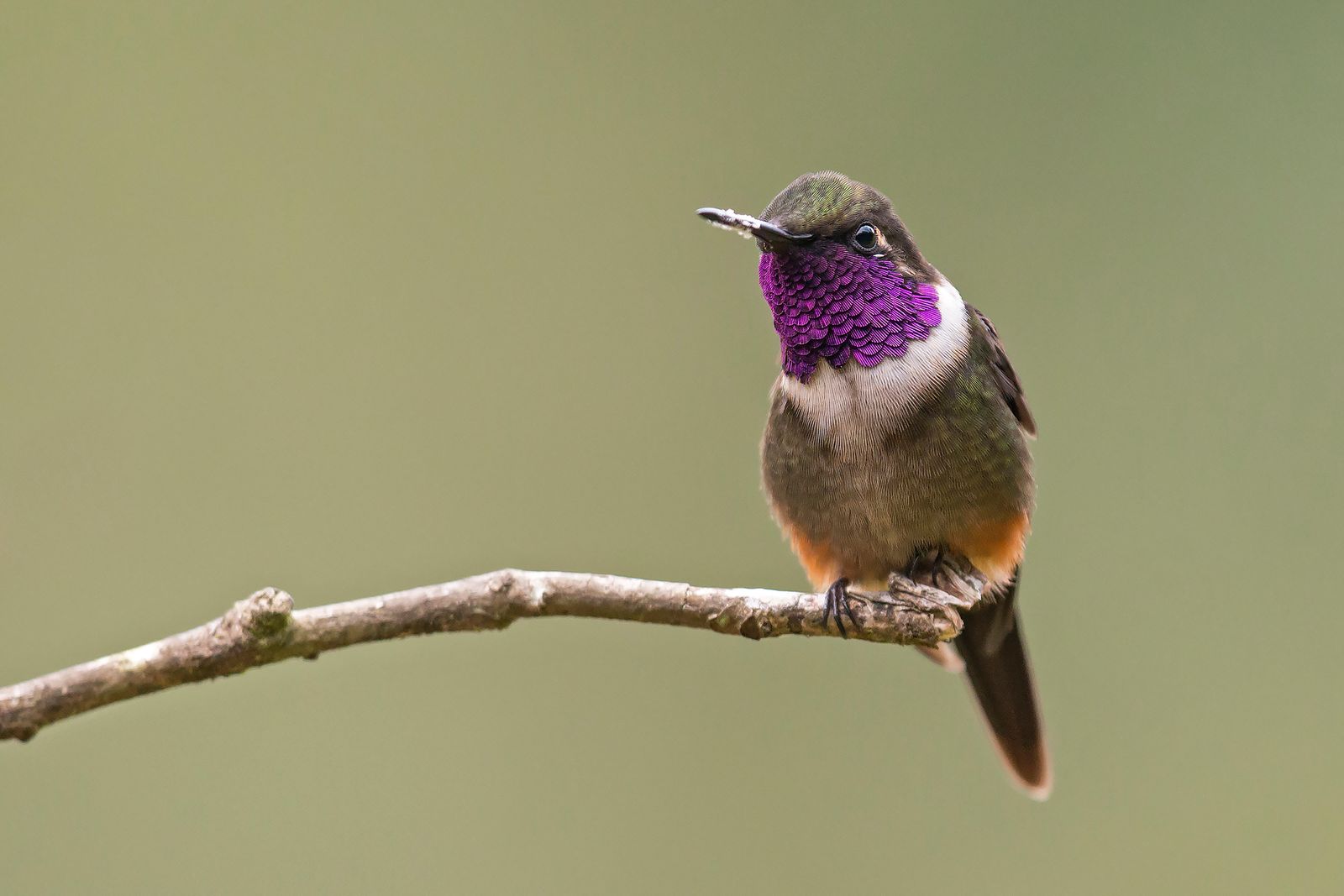
Wings over Andes Bird Photography in Colombia Workshop Report
February 10th - February 23rd 2026
Coming Soon...
READ THE FULL REPORT
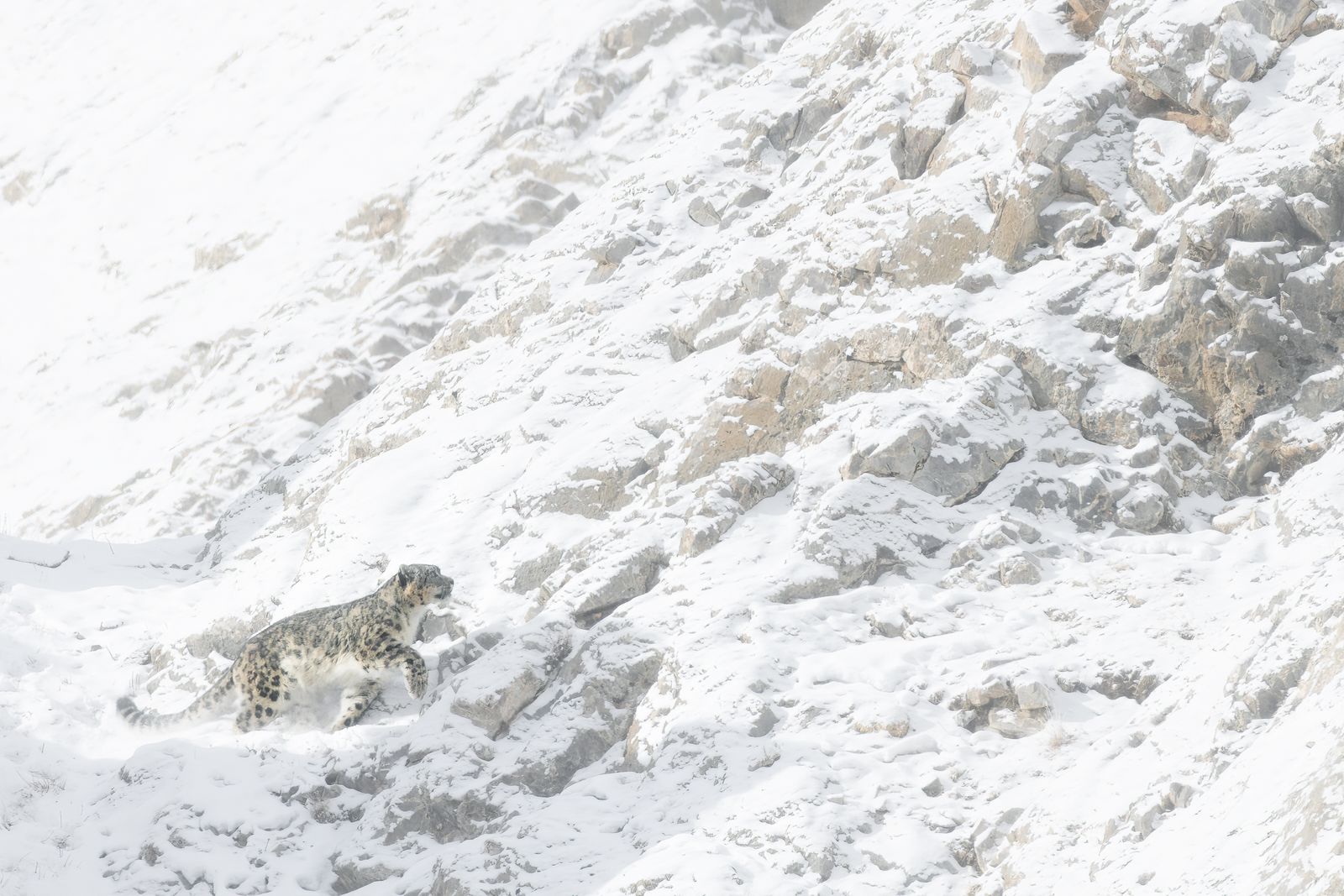
Ultimate Snow Leopard of Mongolia Workshop Report
January 13th - January 24th 2026
In January of 2026, I ran an all-new Snow Leopard workshop in far northwestern Mongolia. This workshop ran from the 13th of January until the 23rd of January and took us into an all-new region in the Hungai mountains. This location is lower in altitude than the previous location we had been using and has significantly less hiking (although the climbing is still considerable and not for the faint of heart). Like my Pallas Cat of Eastern Mongolia Report, this trip report will be a little different to the norm and includes a number of daily video updates from the field. Due to my heavy travel schedule, I will come back later in the year and update this post with still photographs from the trip as time permits.
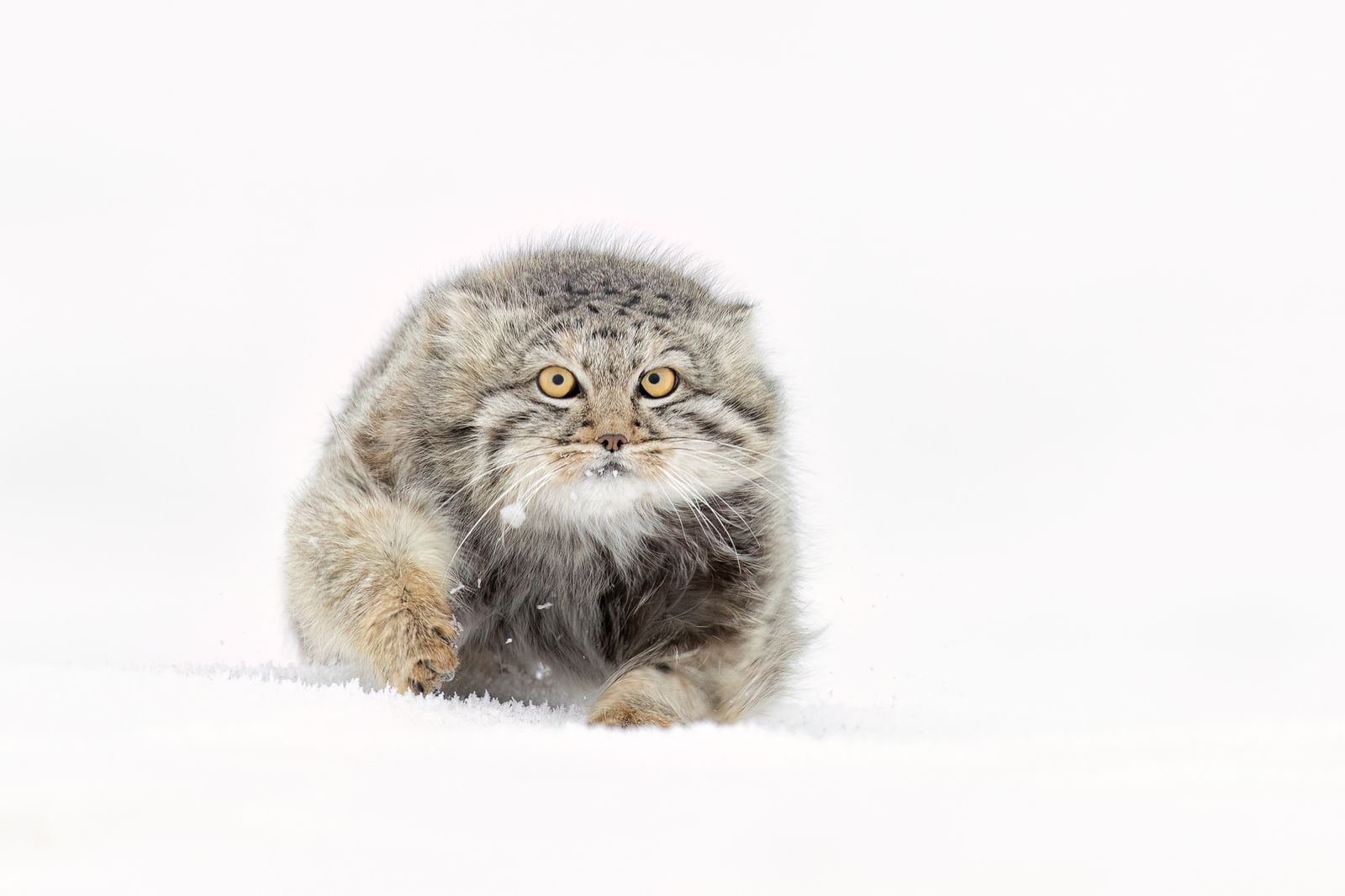
Pallas Cat of Eastern Mongolia in Winter Workshop Report
January 2nd - January 9th 2026
This year's workshop report for our Wild Nature Photo Travel workshop for the Pallas cat in the far east of Mongolia will be a bit different from usual. As I am travelling extensively over the next four months and have very little free time to actually process images from our trip, I am instead including the short videos (not in chronological order) I made on location throughout the workshop. As time permits, I will then come back and update this post with photographs once I get a chance to process them on my home machine with a high-quality display (likely later in the year).
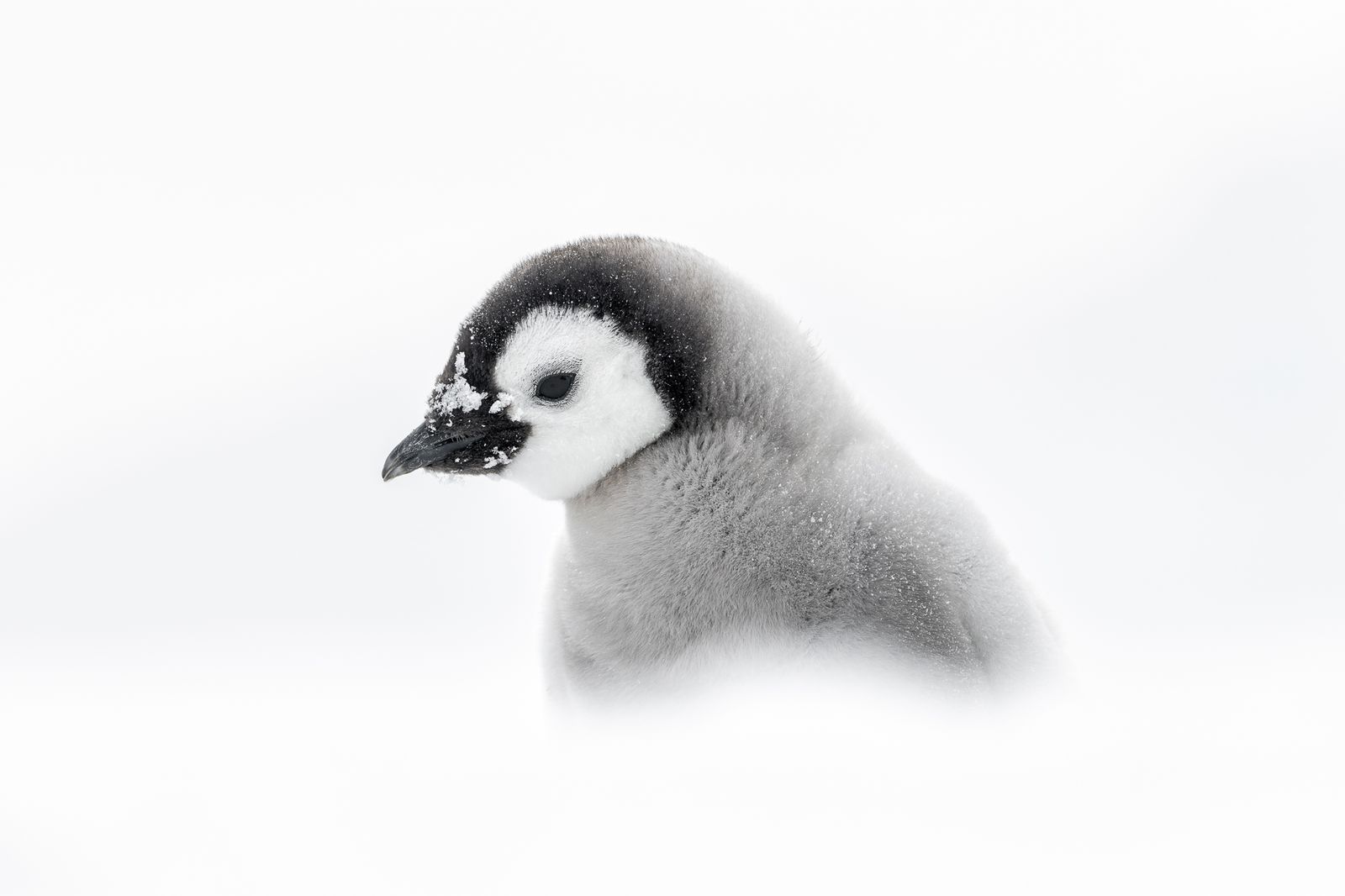
Emperor Penguins of Gould Bay in Antarctica Expedition Report
November 18th - November 26th 2025
A medical condition prevented me from leading the Emperor Penguin expedition in person in 2025. This expedition proceeded successfully under the guidance of our trusted guide team. Participants reported extraordinary encounters with emperor penguins in their stark mid-winter environment, witnessing intimate behaviours amid vast sea ice and extreme polar conditions. By participants' accounts, this was a powerful and rewarding experience for all involved and was a fantastic opportunity to create a body of work that reflects both the raw beauty and fragile future of Antarctica.
White Horses of the Camargue in France Workshop Report
October 6th - October 12th 2025
I’ve recently returned from leading our White Horses of the Camargue Photography Workshop in France. This workshop was our first workshop in this region of France and was a wonderful photographic experience, very different to the usual polar environment we thrive in. The blend of horses, water, light and the quiet poetry of watching these animals thunder across the shallows, salt spray rising around them like mist made for both superb photography and a powerful experience.
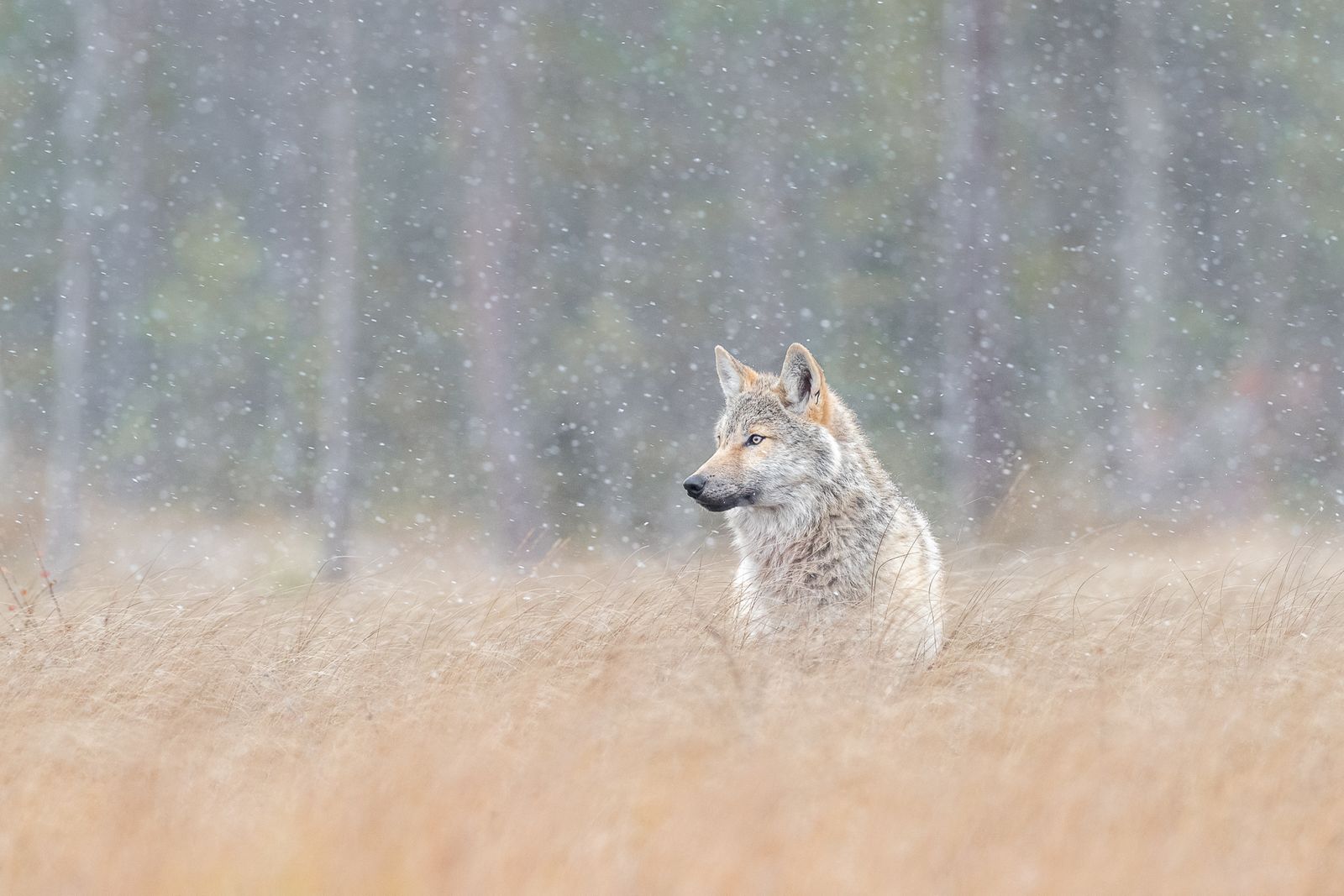
Wild Wolves of the Taiga Forest in Finland Workshop Report
September 15th - September 22nd 2025
This year’s Wild Wolves of the Taiga Workshop promised something different from our usual Arctic expeditions. In northern Finland, near the Russian border, we sought not polar bears against ice or penguins against snow, but wolves in the dense, shadowed Boreal forests of the north. Alongside them, the mighty brown bear, an apex predator in its own right, roamed this land of lakes, moss, and towering spruce. There is a quietness and tranquillity that hangs in the air in this part of northern Finland, different from the austere, white silence of the polar regions. The forest in this part of Finland is thick with life, an ancient hush, the breath of a primordial forest older than memory. This is a forest that still feels untouched by humans, where wild animals roam, and it is the perfect place to photograph wolves and bears.
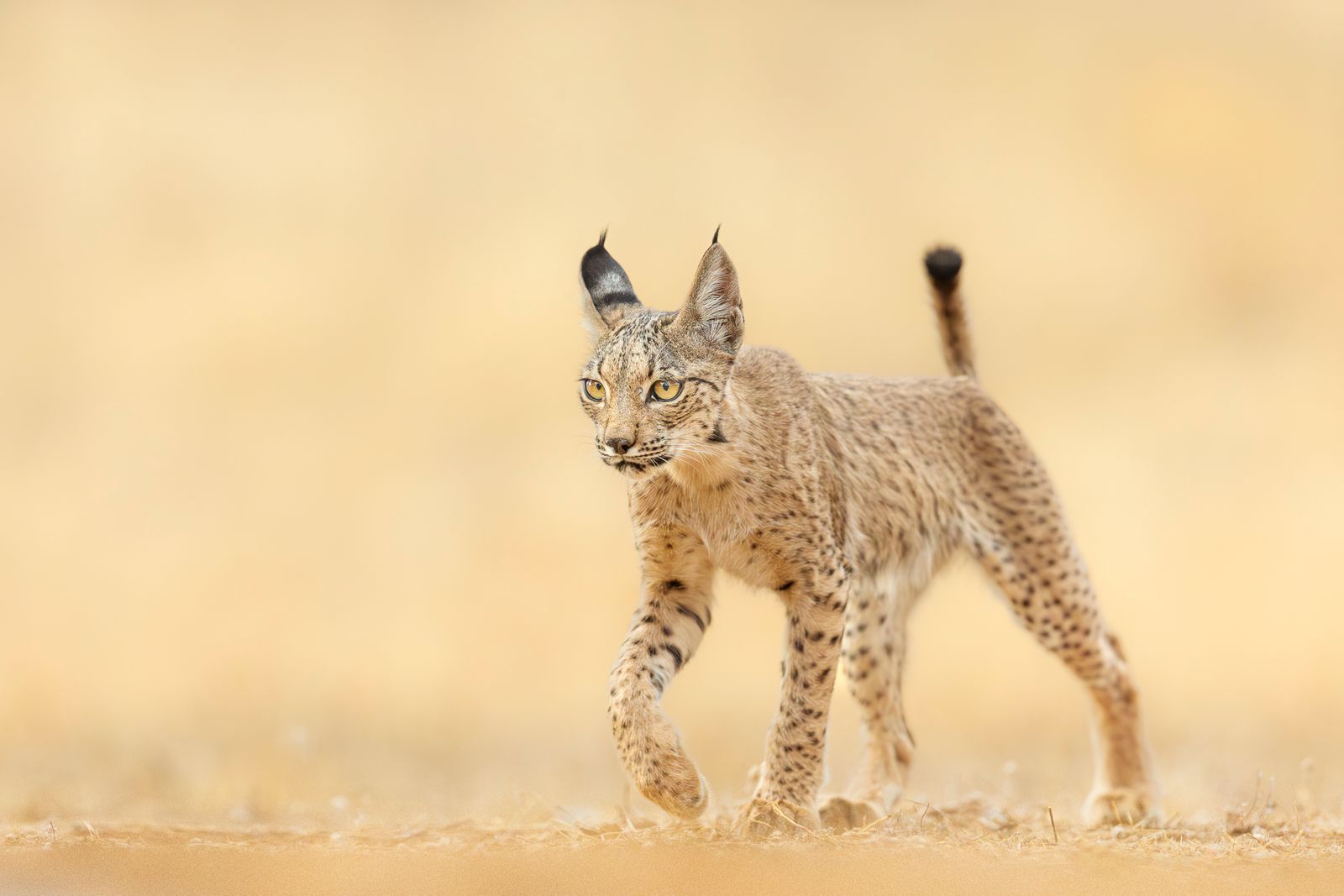
Iberian Lynx in Spanish Summer Scouting Trip Report
August 23rd - August 28th 2025
In late August 2025, I was invited to Spain by my friend Craig from Canon Rumours to try to photograph the rare and endangered Iberian Lynx. When the invitation arrived, despite knowing embarrassingly little about the Iberian Lynx, I did not have to think long. A chance to photograph one of the world’s most endangered cats? I was in.
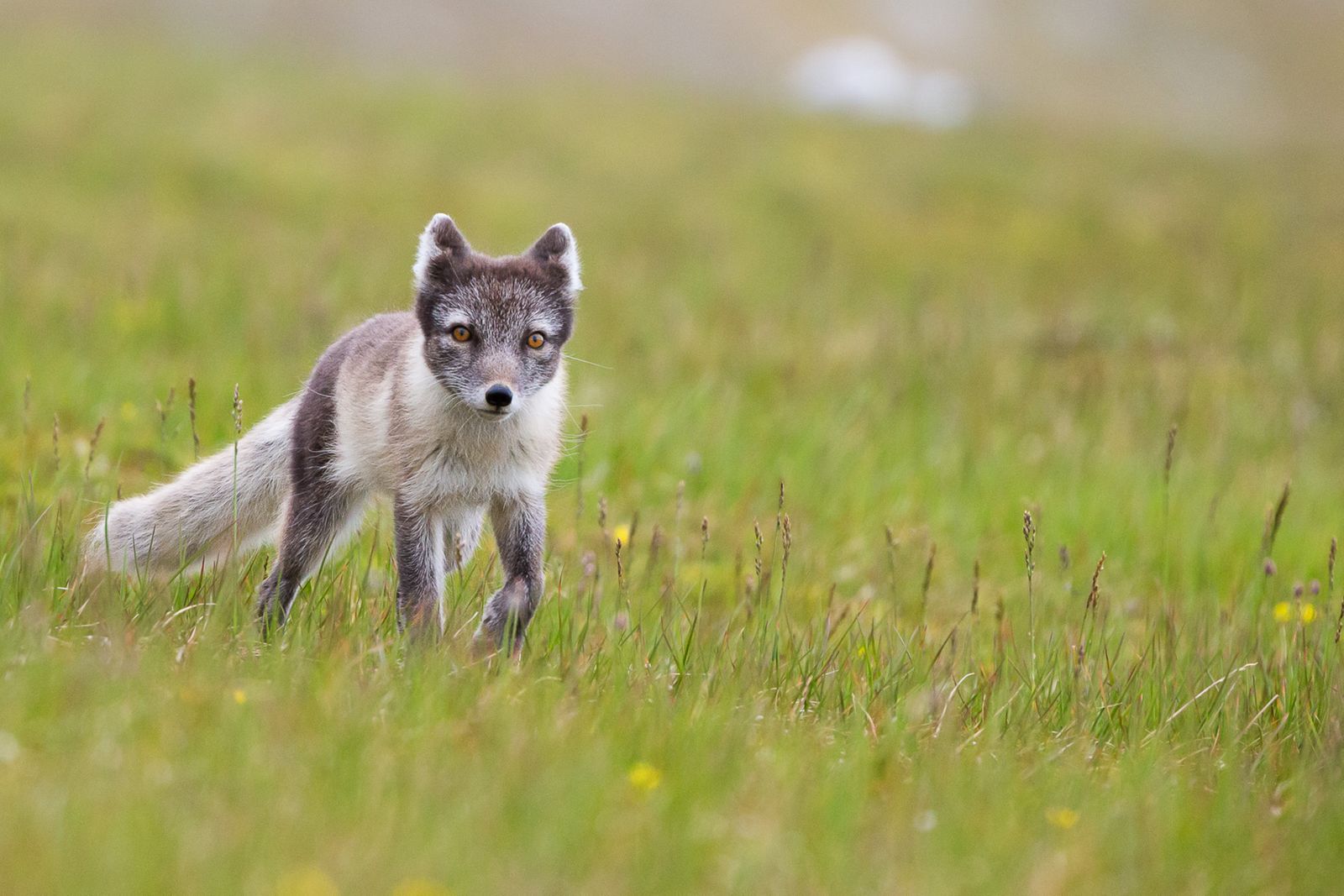
Arctic Fox Cubs of Hornstrandir Nature Reserve Workshop Report
July 1st - July 7th 2025
There are places in the world where time seems to be all but irrelevant—where silence has weight, and where life exists on the knife’s edge of wilderness. The Hornstrandir Nature Reserve, perched at the extreme northwestern edge of Iceland, is one such place. It’s here, amid weathered fjords and wind-bent tundra, that the elusive Arctic fox raises its young—unhunted, unharried, and at peace in one of the last true wilderness sanctuaries of the North.
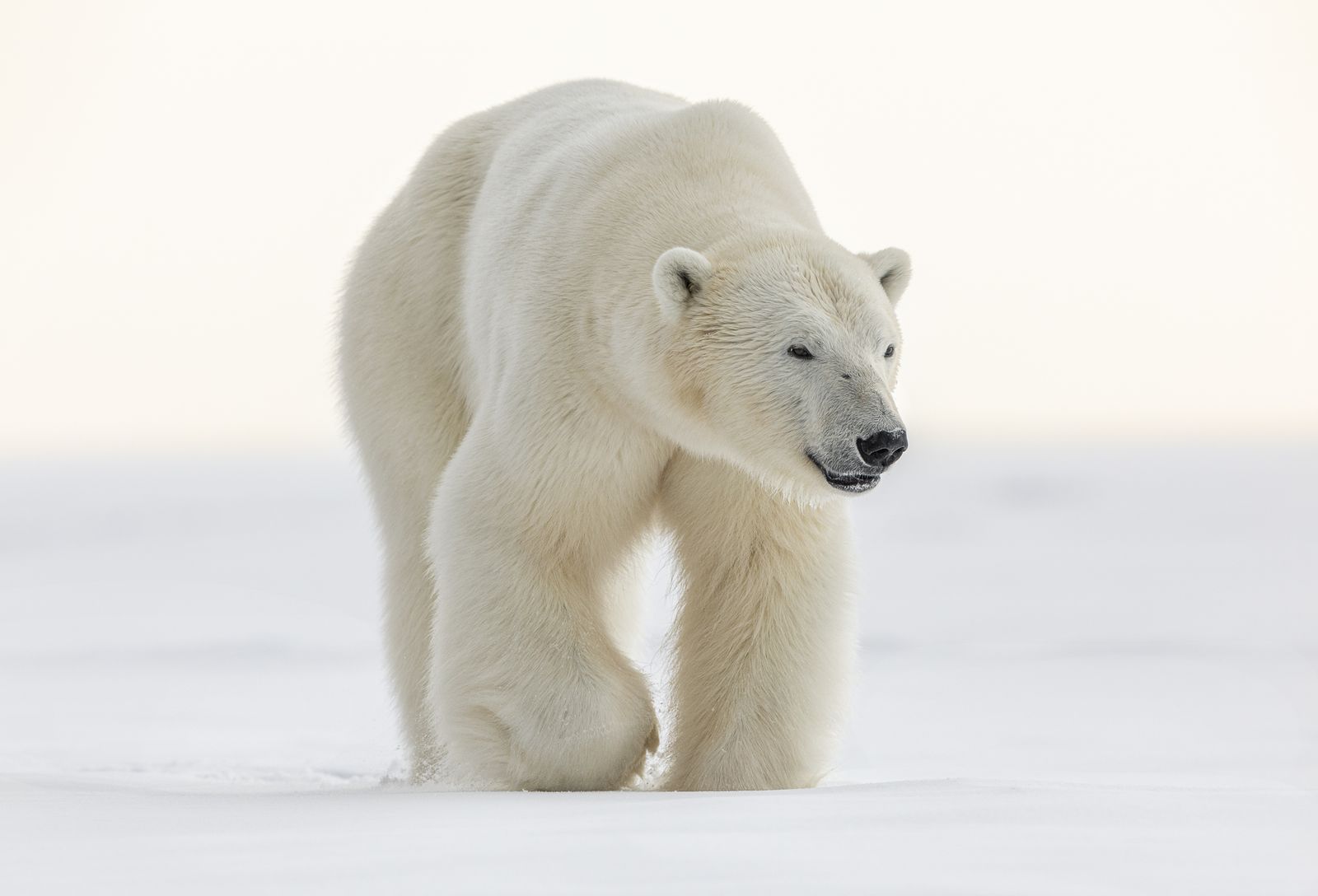
Ultimate Polar Bears of the High Arctic Expedition Report
June 10th - June 27th 2025
There are trips that linger in the soul long after you return to solid ground. And then there are expeditions that define your entire career and stay with you for the rest of your life. The 2025 Ultimate Polar Bear Expedition to Svalbard falls firmly into the latter category. Eighteen extraordinary days in the High Arctic, ten of which were spent deep in the sea ice north of 81 degrees latitude, delivered what can only be described as the most productive and fulfilling polar bear photography experience of my life. Perhaps best of all, it was shared with a wonderful group of like-minded photographers that made the camaraderie as fulfilling as the photography.
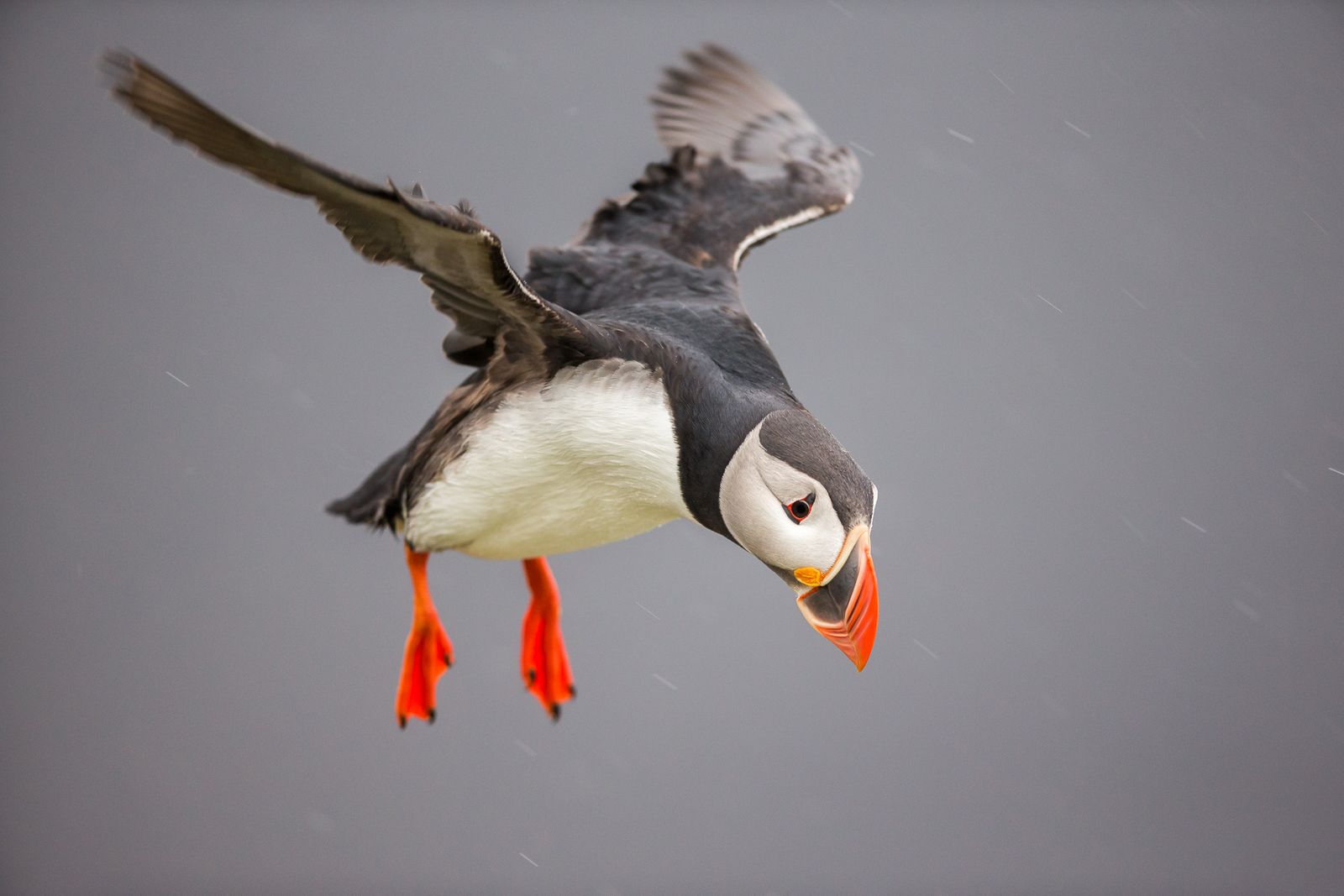
Puffins and Razor Bills of Grimsey Island Workshop I & II Reports
May 27th - June 2nd 2025 & June 3rd - June 8th 2025
Puffins, Solitude, and the Soul of the Arctic – There are few places left in the world where you can photograph wildlife in complete solitude—where the only sound is the rush of wind across dramatic basalt cliffs, the echoing cackle of seabirds, and the soft high-speed click of your mirrorless cameras electronic shutter. Grimsey Island, perched on the Arctic Circle just off the north coast of Iceland, is one of those places. It is wild, raw, and unforgiving—but in its ruggedness lies extraordinary beauty and a rare opportunity for intimate encounters with wildlife. Grimsey is the hidden gem of Iceland, packing a photographic punch well above its size and weight.
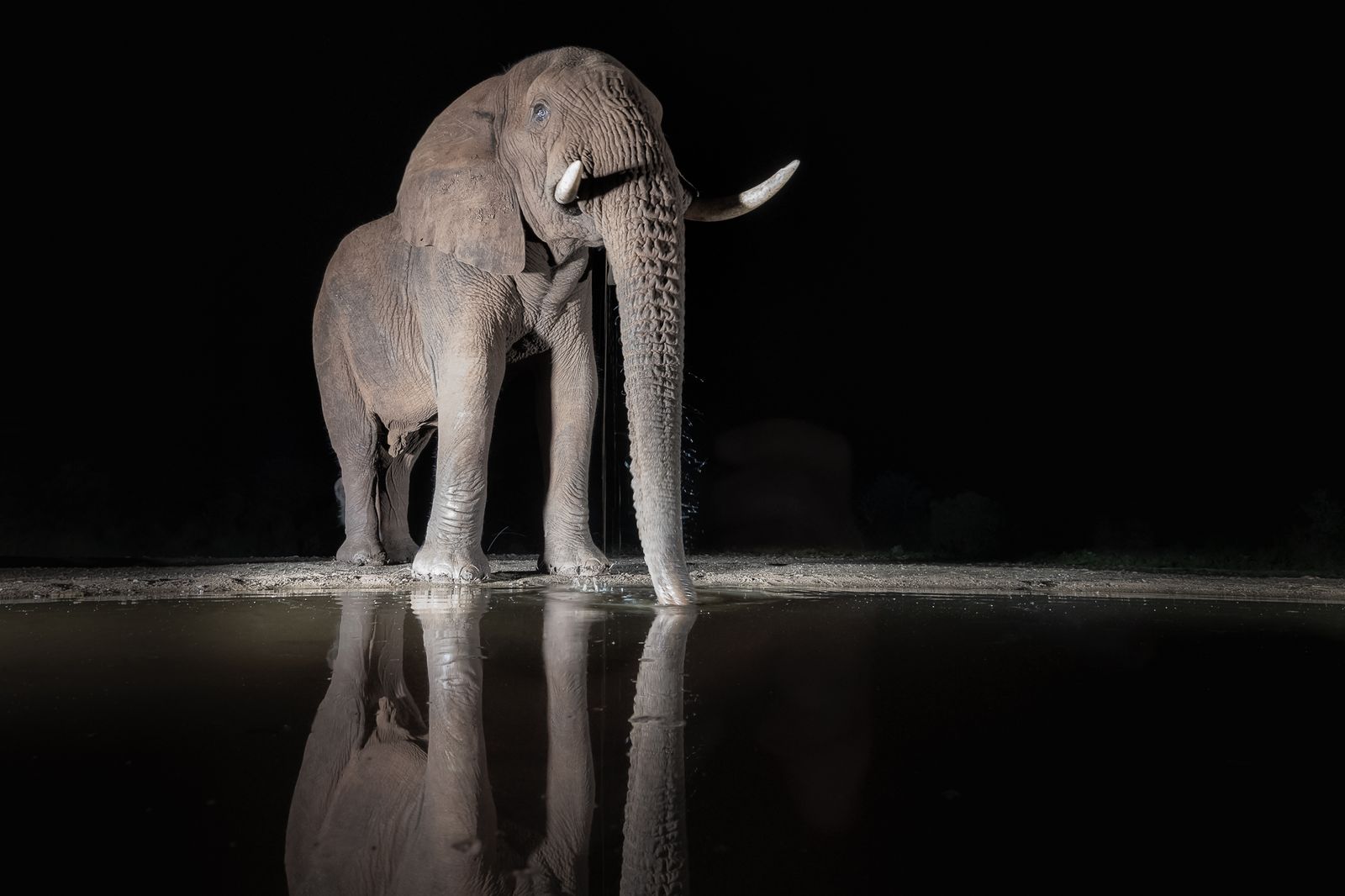
Zululand South Africa Ground Level Masterclass Workshop Report
May 7th - May 16th 2025
In April 2025, I had the privilege of leading an extraordinary group of photographers on my Zimanga Africa Ground-Level Wildlife Masterclass — a full reserve takeover that provided unparalleled access to one of the most diverse and wildlife-rich regions in South Africa. I’ve long said that Zimanga is one of the most progressive photographic destinations on the continent, and this year’s workshop only reaffirmed that sentiment. With no outside tourists, no sharing with others, unrestricted access to world-class photographic hides, a dedicated team of trackers and guides, and a truly immersive experience in African wildlife photography, 2025’s edition was nothing short of a creative and wildlife-rich success.
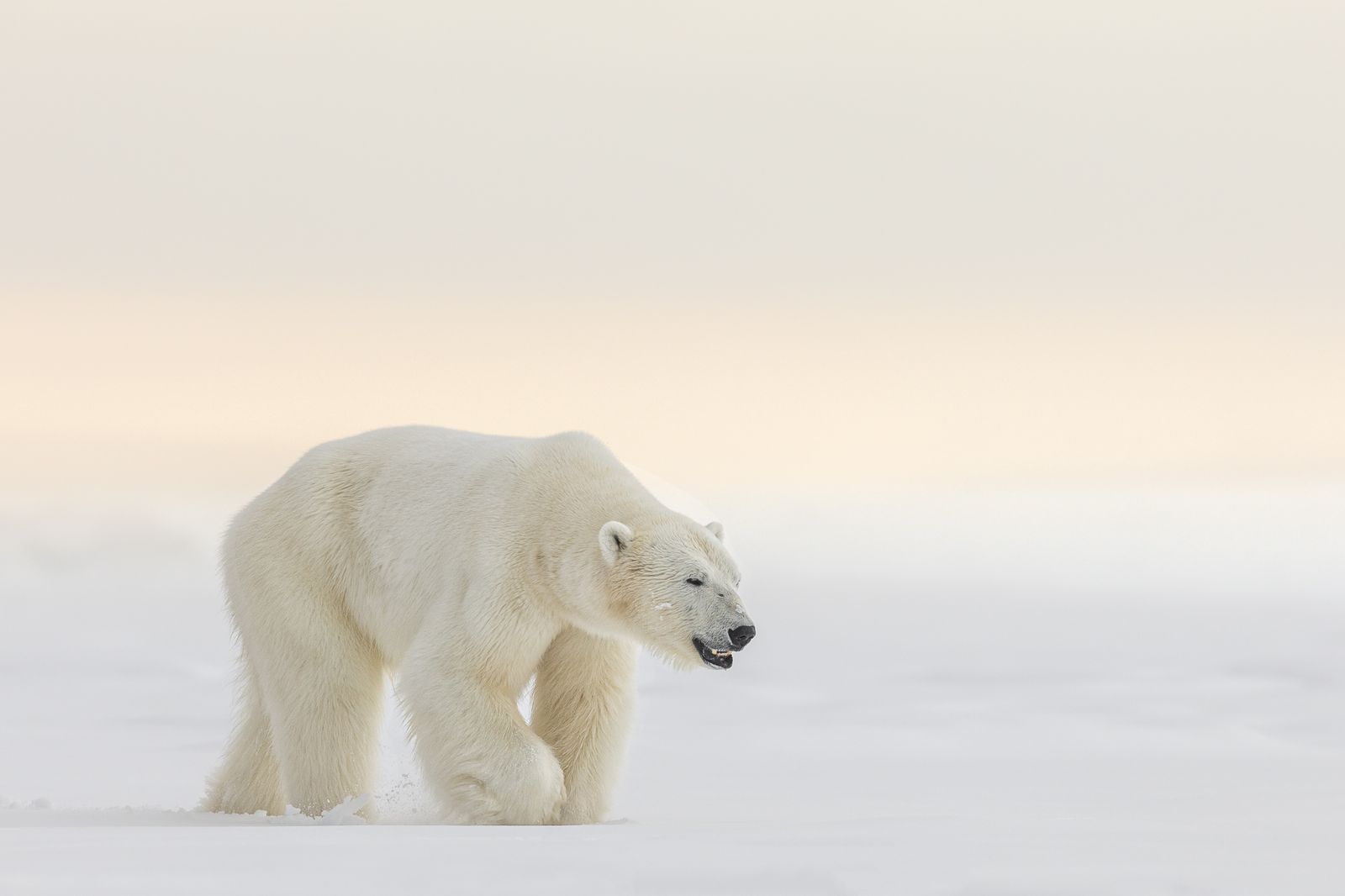
Svalbard Winter Explorer Expedition Report
April 15th - April 23rd 2025
In the heart of the High Arctic, under a dome of soft grey skies and amidst the ghostly hush of falling snow, our April 2025 Svalbard winter expedition aboard the venerable M.S. Freya delivered one of the most unforgettable polar experiences in recent memory. This journey, which spanned over 1,000 nautical miles through the ice-choked fjords and remote coastlines of the Svalbard archipelago, offered a profound immersion into the raw, elemental beauty of the Arctic. Our vessel carved its way through frozen seascapes, bringing us deep into the polar wilderness, far beyond the reach of most traveler's.
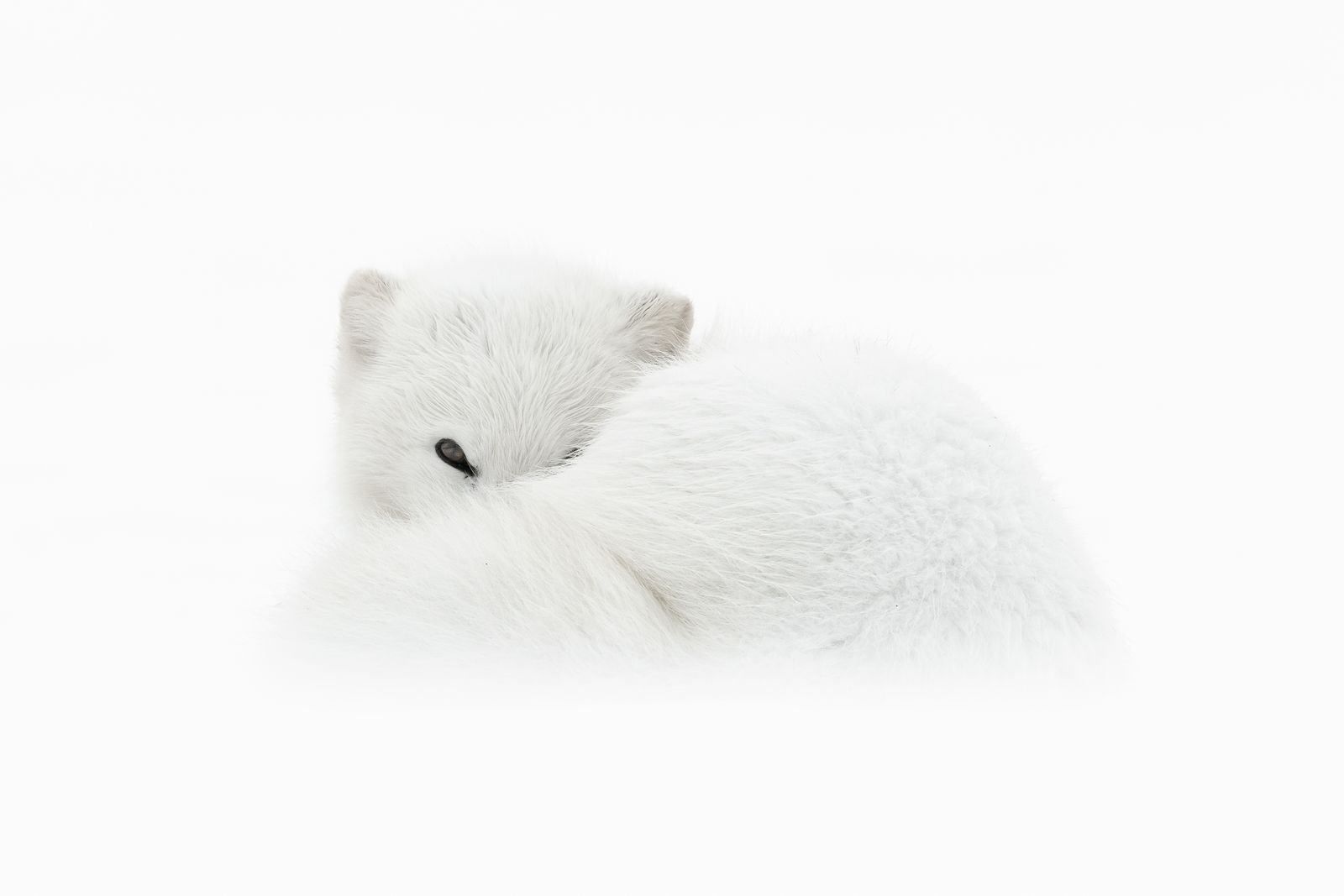
Arctic Foxes and Reindeer of Svalbard Expedition Report
April 5th - April 9th 2025
There are few places on Earth that match the wild, remote, and brutally beautiful snow and ice covered landscapes of Svalbard in winter. Nestled deep within the Arctic Circle, this archipelago is a realm ruled by ice, wind, and wildlife. This April, I had the privilege of leading a private snowmobile expedition across this frozen frontier—a journey that would see us travel over 500 kilometres, find more than a dozen Arctic foxes, encounter reindeer and ptarmigan, and face the full spectrum of Arctic weather, from golden light to whiteout blizzards.
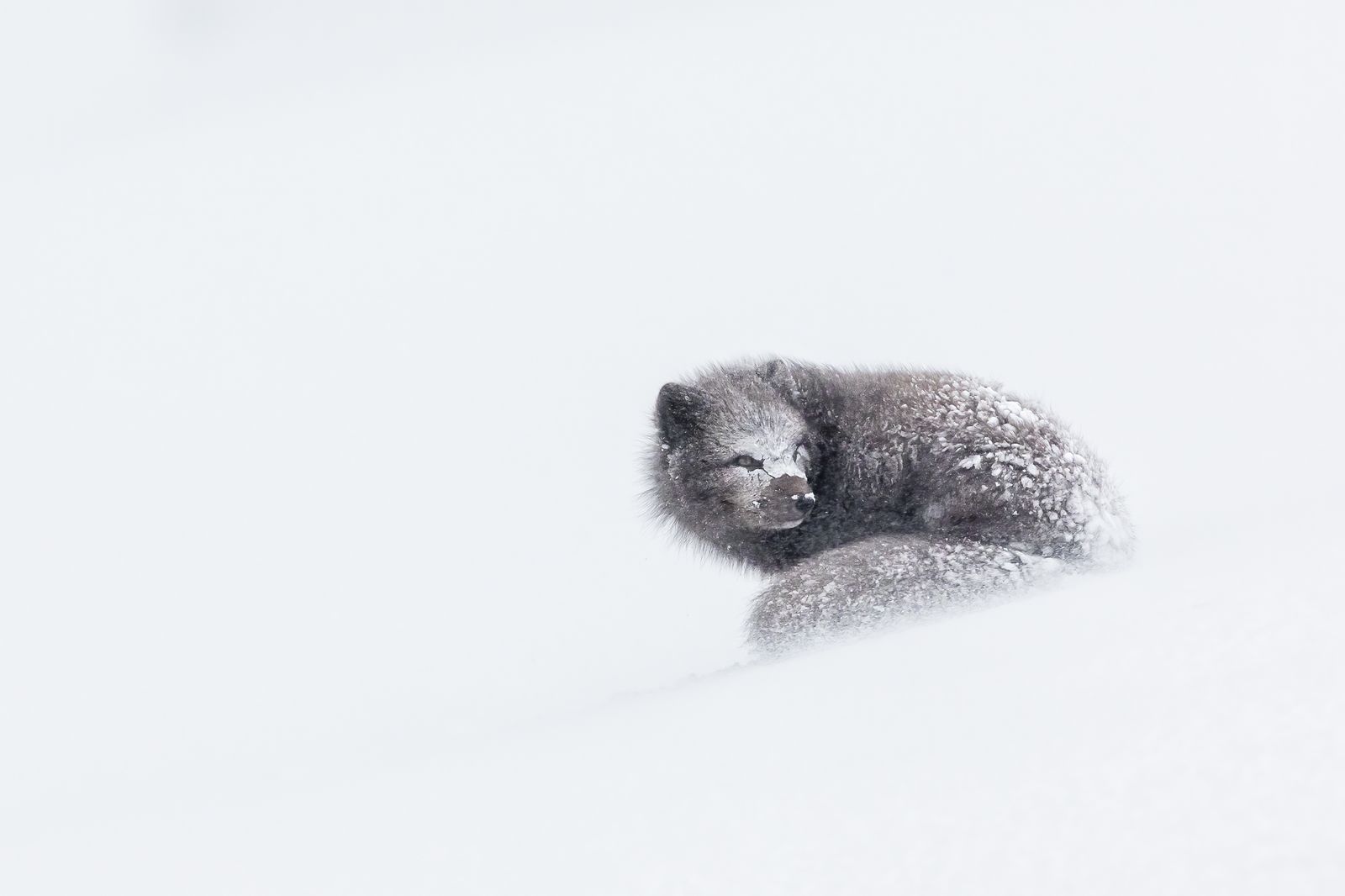
Arctic Fox in Icelands Winter Wilderness Workshop II Report
February 15th - February 21st 2025
In early February 2025, I led two back-to-back Arctic fox photography workshops in the remote and rugged Hornstrandir Nature Reserve in northwestern Iceland for two seperate groups of photographers. Hornstrandir is a true wilderness, offering some of the best opportunities anywhere in the Arctic to observe and photograph Arctic foxes in their natural habitat. Unlike much of Iceland, where foxes are still hunted, the nature reserve provides them with full protection. As a result, they are more approachable here than in other parts of the country, making it an exceptional destination for wildlife photography. Accessible in the winter, and only by boat, the Hornstrandir Nature Reserve also offers a wonderful getaway for photographers looking to get back to Nature and spend quality time with their subjects.
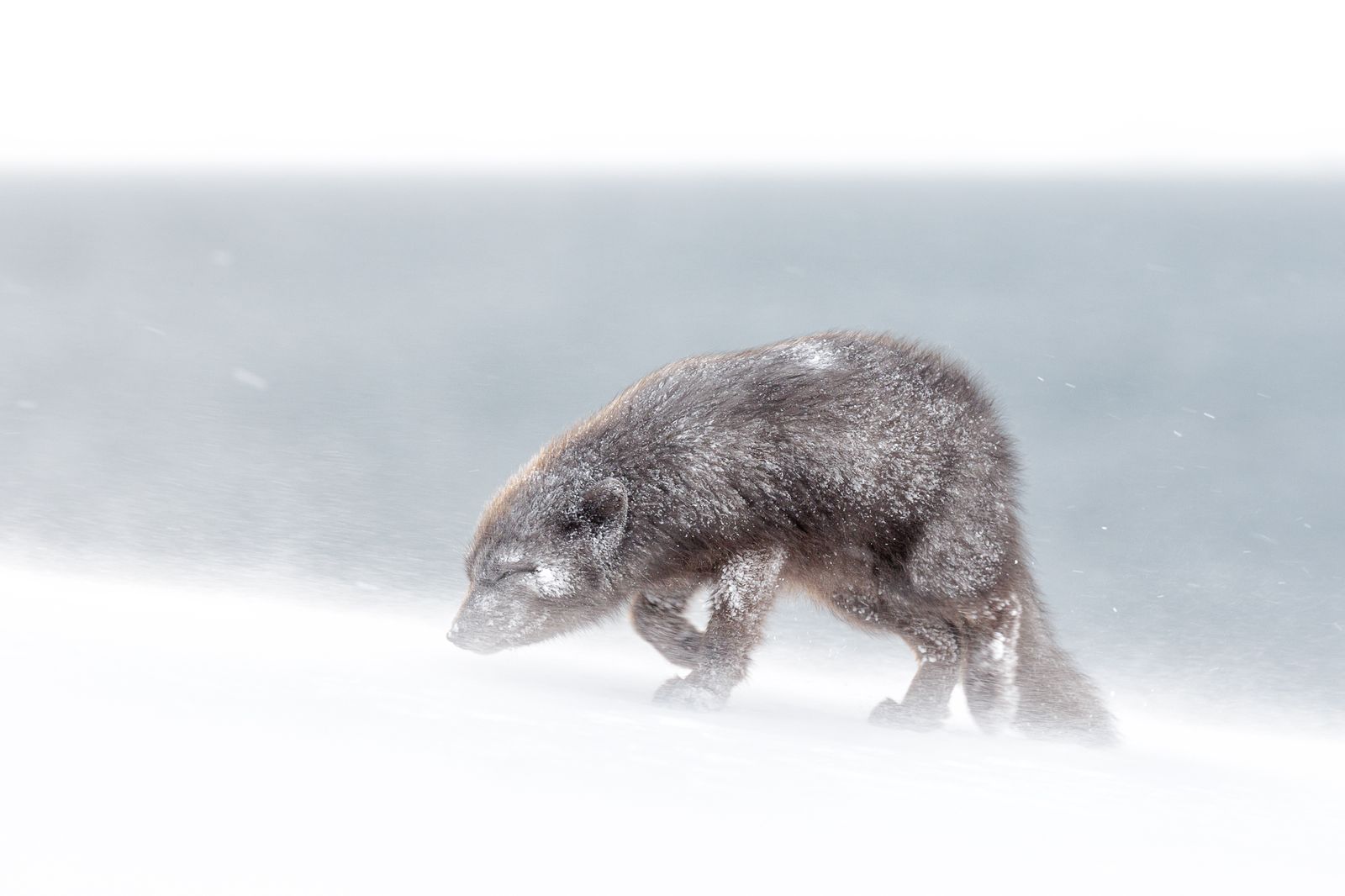
Arctic Foxes in Iceland's Winter Wilderness Workshop I Report
February 8th - February 14th 2025
In early February 2025, I led two back-to-back Arctic fox photography workshops in the remote and rugged Hornstrandir Nature Reserve in northwestern Iceland for two seperate groups of photographers. Hornstrandir is a true wilderness, offering some of the best opportunities anywhere in the Arctic to observe and photograph Arctic foxes in their natural habitat. Unlike much of Iceland, where foxes are still hunted, the nature reserve provides them with full protection. As a result, they are more approachable here than in other parts of the country, making it an exceptional destination for wildlife photography. Accessible in the winter, and only by boat, the Hornstrandir Nature Reserve also offers a wonderful getaway for photographers looking to get back to Nature and spend quality time with their subjects.
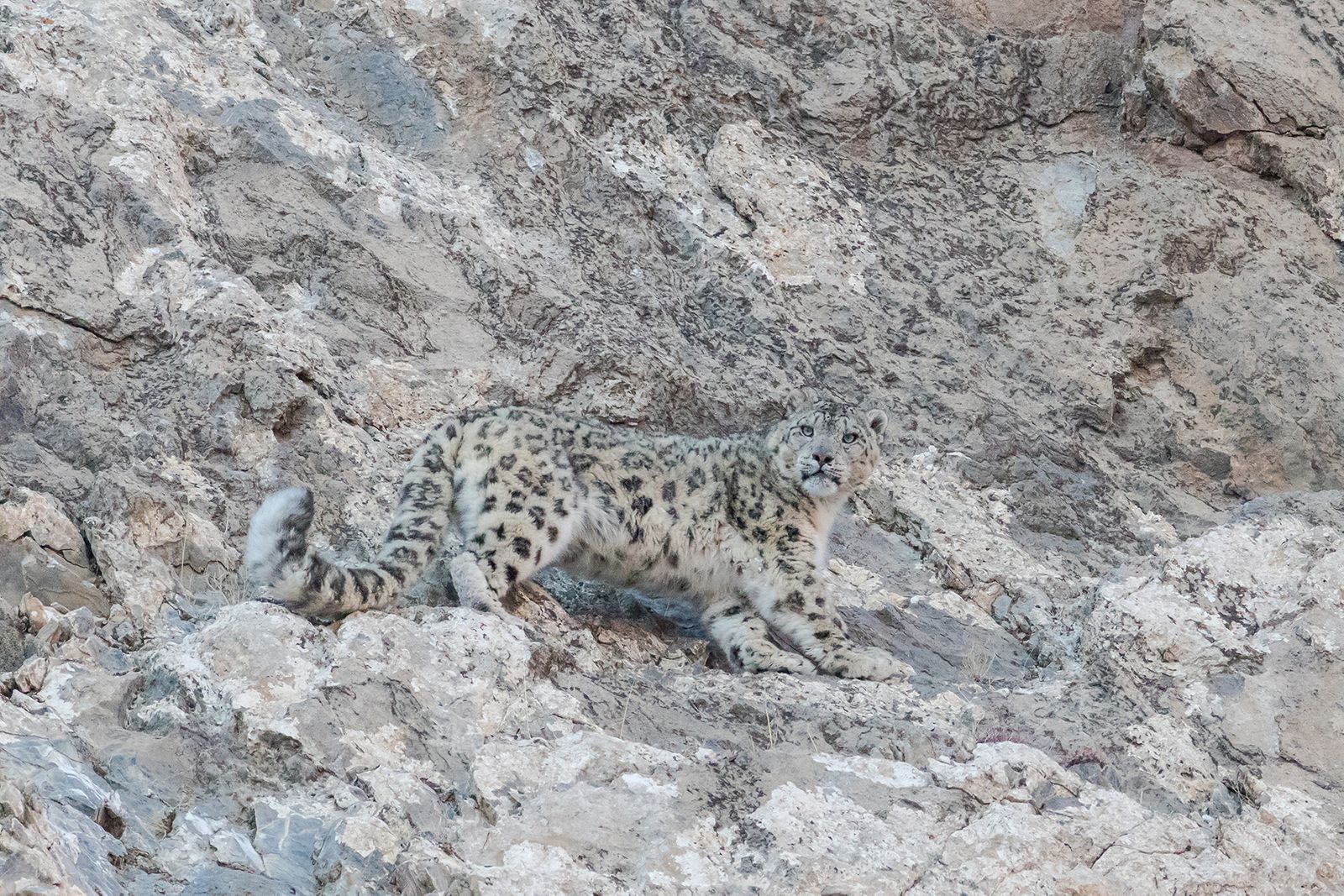
Snow Leopard of Western Mongolia Expedition Report
January 12th - January 20th 2025
In mid January 2025 I ran a workshop to the Altai mountains in Western Mongolia to find and photograph the ghost of the mountains – the Snow Leopard. This was my second workshop to this region of Mongolia in Winter and it included a number of incredible sightings and photography sessions with this stunningly beautiful cat.
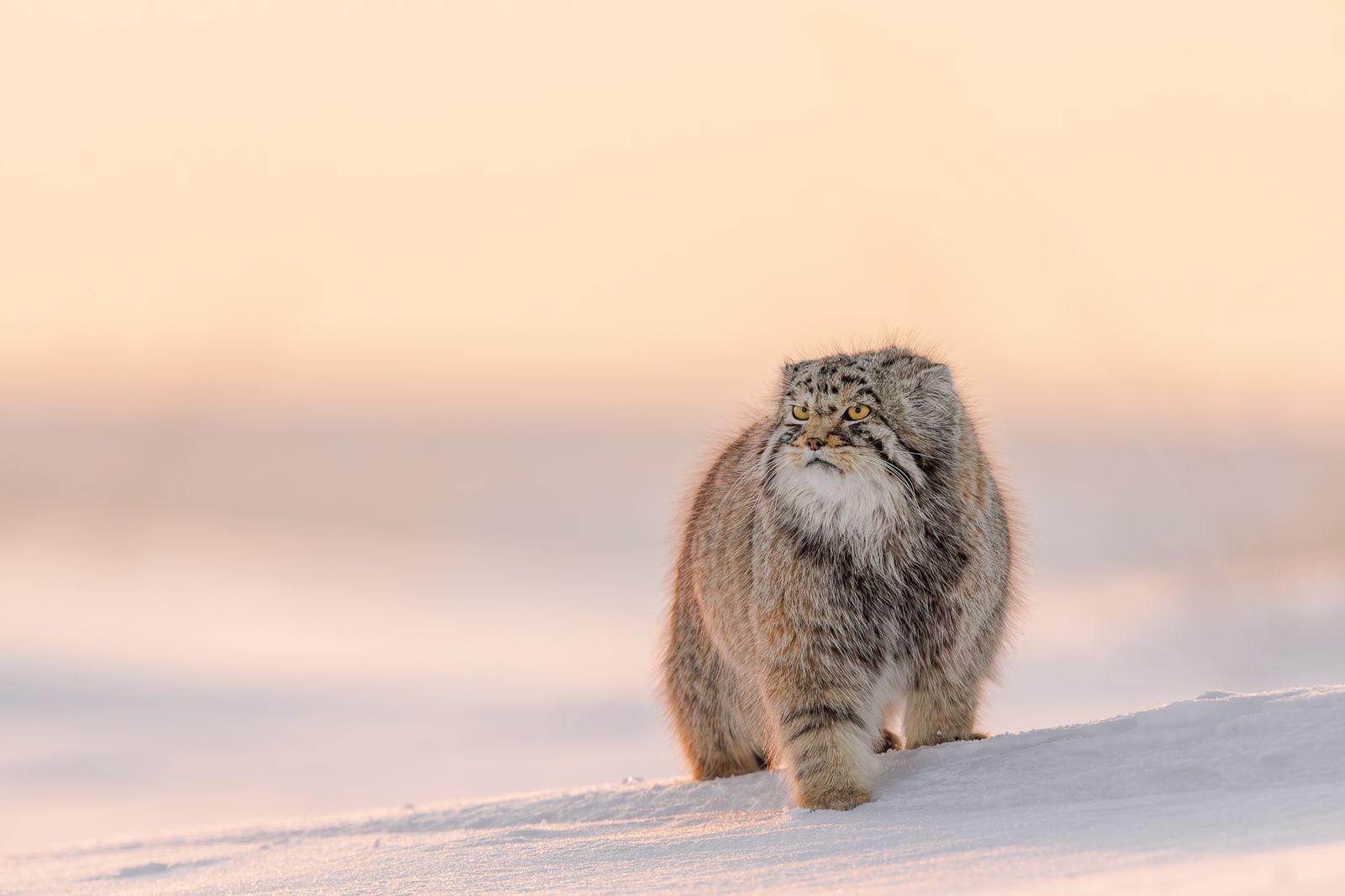
Pallas Cat of Eastern Mongolia in Winter Workshop Report
January 4th - January 10th 2025
In early January 2025, I ran my annual Winter workshop to the far Eastern Steppe region of Mongolia in search of the world’s grumpiest cat – the Pallas cat. A significant point of difference from others on this workshop is that we (my company – Wild Nature Photo Travel) will only take a maximum of six people to ensure we have a small intimate group to make minimal impact on each others photography in the field. With just a small group we can work together as a team and not be in each other’s way out in the field. I have watched other groups of up to ten or even more attempt this sort of trip as a group and it just doesn’t work effectively.
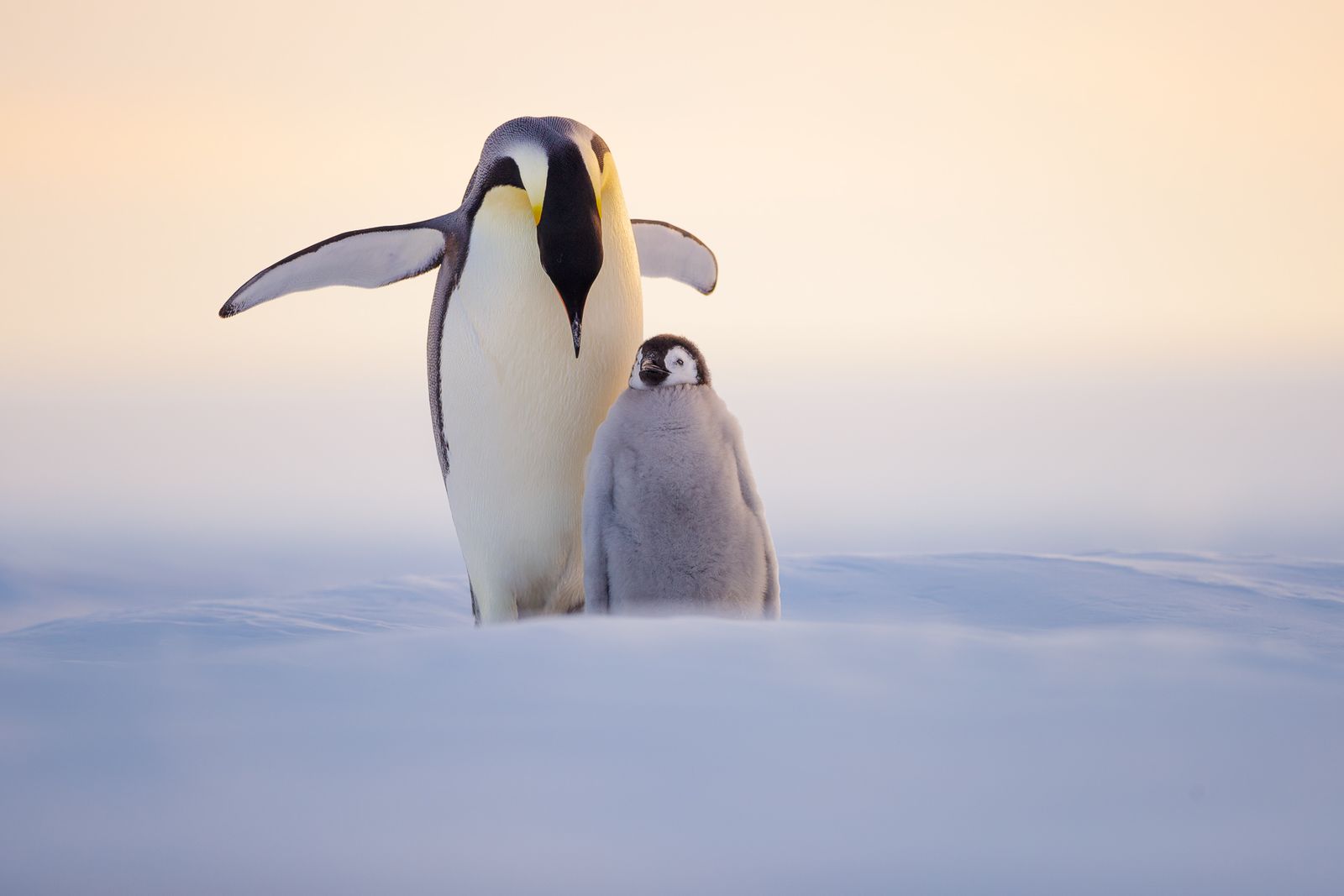
Emperor Penguins of Antarctica Expedition Report
November 26th - December 04th 2024
In late November / early December 2024, I ran my semi-annual wildlife expedition to the world’s most southerly Emperor Penguin colony at Gould Bay, deep in the Weddell Sea region of Antarctica. For this expedition, we flew from Punta Arenas at the bottom of Chile on a privately chartered Iceland Air 757 to the naturally occurring blue ice runway at Union Glacier in Antarctica. From this point, we overnighted at Union Glacier Basecamp before we took a 2nd smaller Basler aircraft another three hours out to the remote sea ice at Gould Bay, where we landed on the sea ice and established camp with the Emperor Penguins.
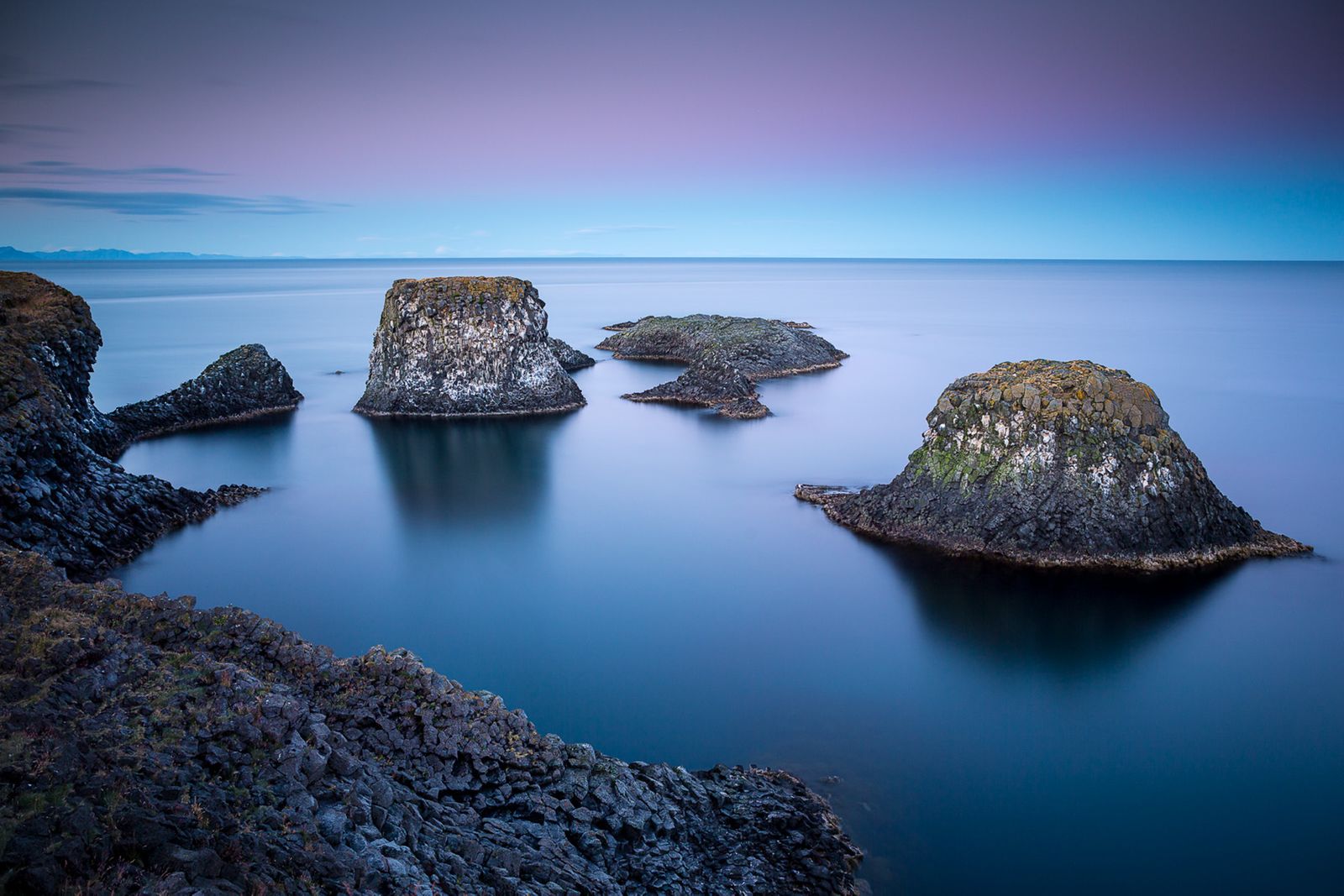
Iceland South Western Landscape Extension Workshop Report
September 28th - October 02nd 2024
In late September 2024, I ran a short 4-day photography workshop on the Snaefellsnes Peninsula on Iceland’s stunning southwest coast. This workshop was designed as an optional extension for participants from our Greenland East Coast Scoresby Sund Expedition (Read the Trip Report). It offered a more relaxed, leisurely pace, providing time to immerse ourselves in the unique geological beauty of the basalt coastline.
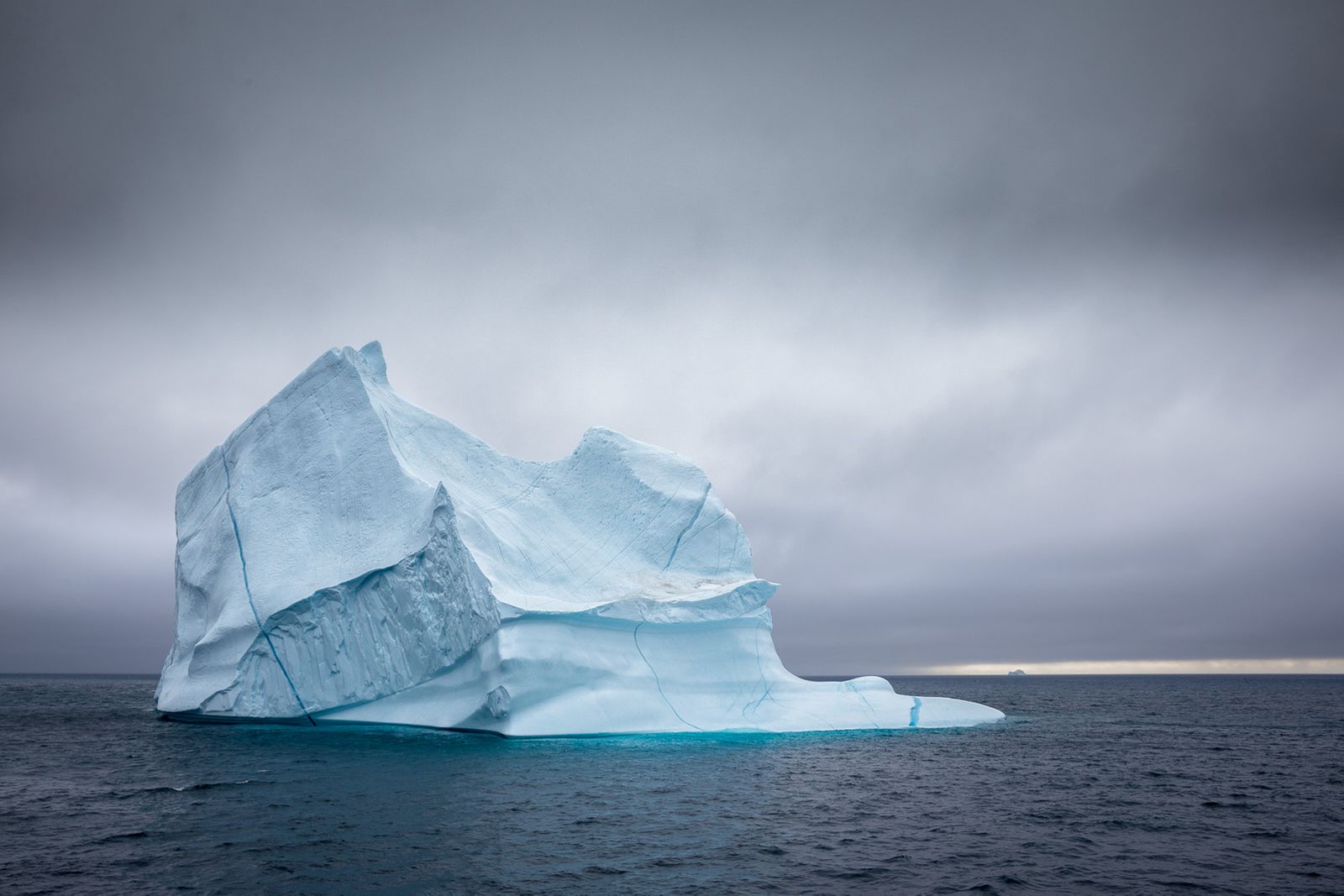
Greenland Hidden Gems Expedition Report
September 17th - September 28th 2024
In September of 2024, I ran my semi-annual Polar landscape expedition to Scoresby Sund (the world’s most extensive fjord system) in Eastern Greenland. This has been an expedition I have been organising, leading and guiding for more than a decade now and is one I always eagerly look forward to. Scoresby Sund is not only the most extensive fjord system in the world but also the most extraordinary. Monolithic icebergs drift like silent sentinels on gentle ocean currents set against a backdrop of precipitous glacial scarred mountains, making for surreal, otherworldly imagery. It is a breathtaking arena of icebergs unmatched anywhere on earth.
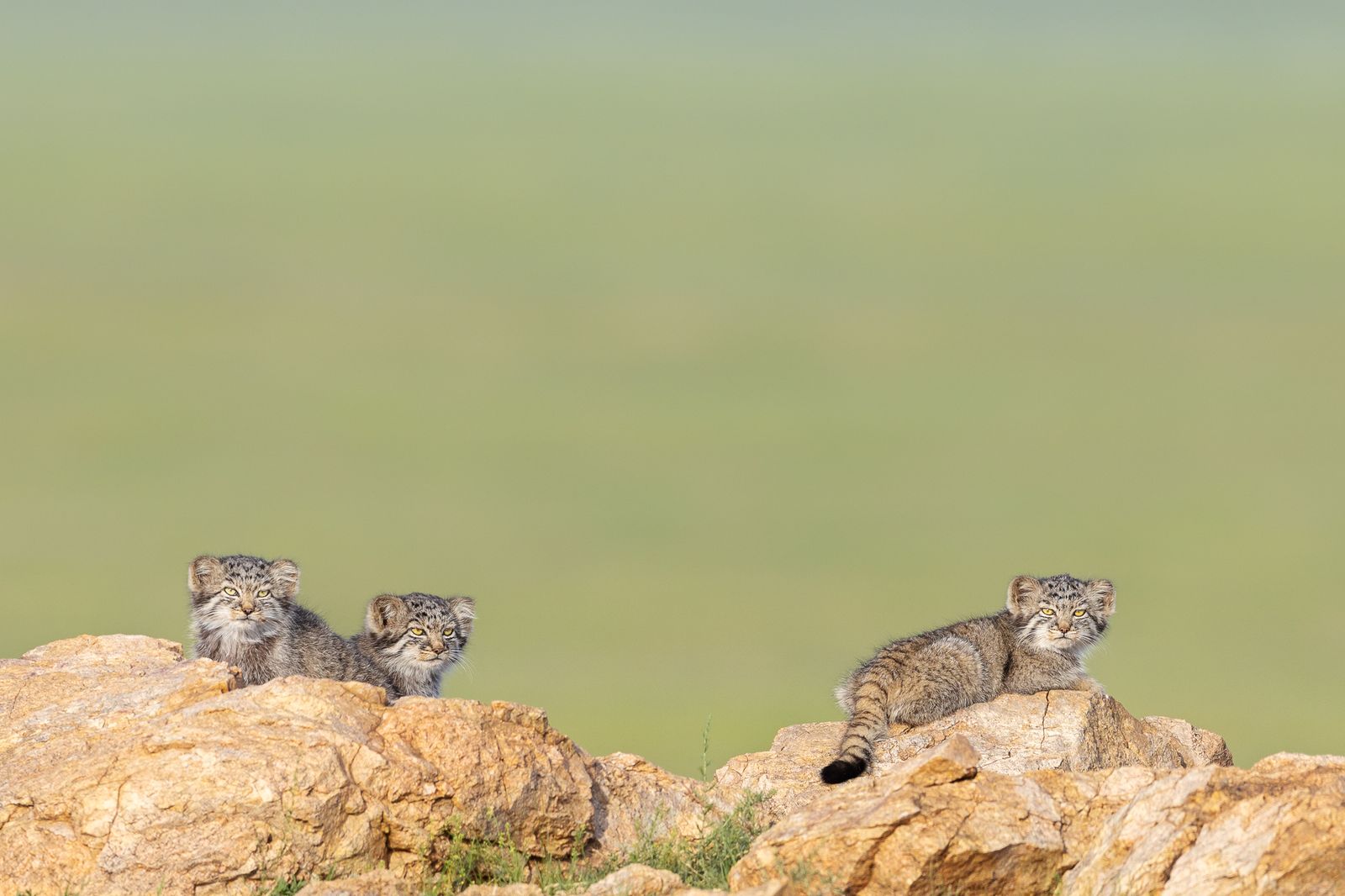
Pallas Cat of Eastern Mongolia in Summer Workshop Report
July 10th - July 18th 2024
In July of 2024, I ran my first workshop for Pallas cat kittens in the far east of Mongolia. I am no stranger to travel and photography in Mongolia, having led multiple winter workshops to this fantastic country (for both Pallas cat and Snow Leopard) over the last 7+ years, but this was the first time I have run a summer workshop that was dedicated to the photography of Pallas cat kittens. It was a fantastic experience with many sightings of Pallas cats and their kittens! There is also something to be said for the packing requirements for a summer workshop that dictates shorts and a T-shirt!
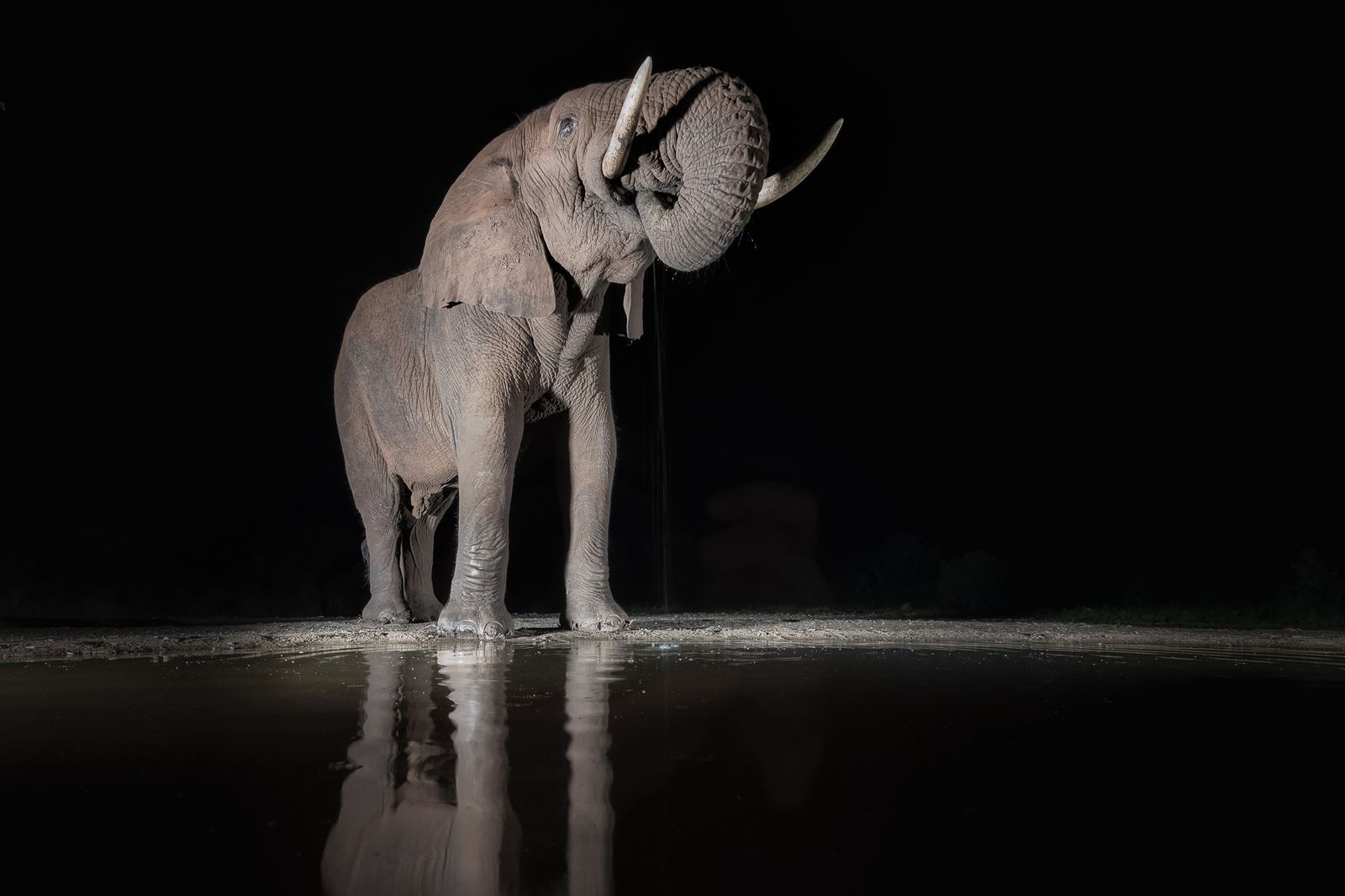
Zululand South Africa Wildlife Masterclass Workshop Report
June 2nd - June 11th 2024
In June 2024, I led what has become an annual (and much looked forward to) ground-level wildlife masterclass workshop in Zululand, South Africa. While African safaris are commonplace, the opportunity to work at ground level with wildlife (including Cheetahs) is unique and incredibly special. This approach provides chances for emotive, dynamic and powerful photographs that are impossible from traditional safari vehicles. Seeing cheetahs from the ground, walking with them, and photographing them on the hunt offers an unparalleled experience, as does the opportunity to photograph from custom high-end hides designed from the ground up for photographers. Not only does this workshop offer these opportunities, but it also boasts some of the only low-angle safari vehicles in all of Africa. Add all this together, and you have photographic opportunities that are simply unmatched anywhere in Africa.
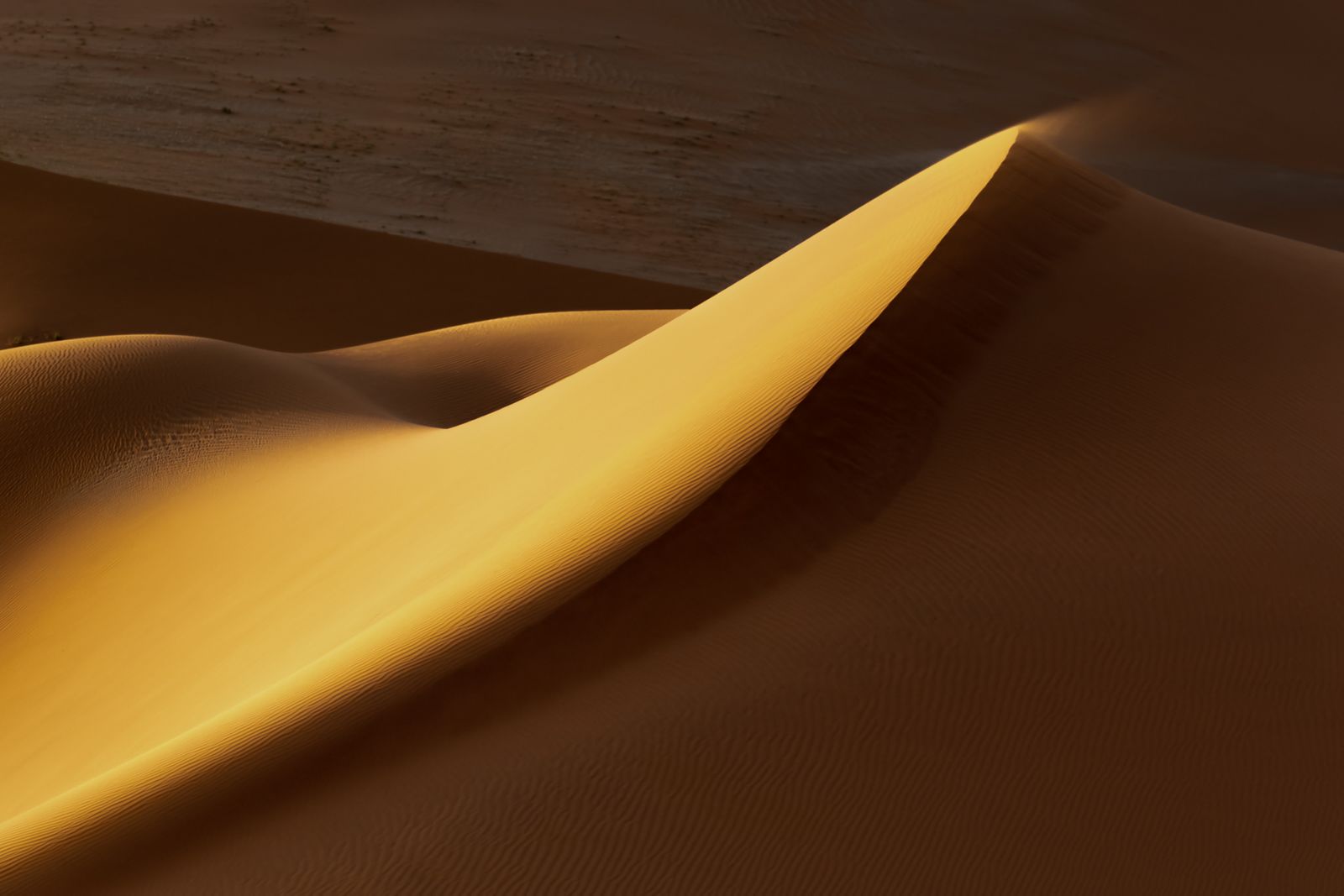
Namibia Wildlife and Landscape Masterclass Workshop Report
May 10th - May 22nd 2024
In May 2024, I led an exclusive wildlife, landscape, and aerial masterclass in Namibia. This meticulously designed workshop provided a unique opportunity to capture the incredible beauty of this remarkable country. We explored the iconic Dune landscapes of Sossusvlei from both land and air and ventured into multiple private wildlife game reserves, offering unparalleled opportunities for wildlife photography.
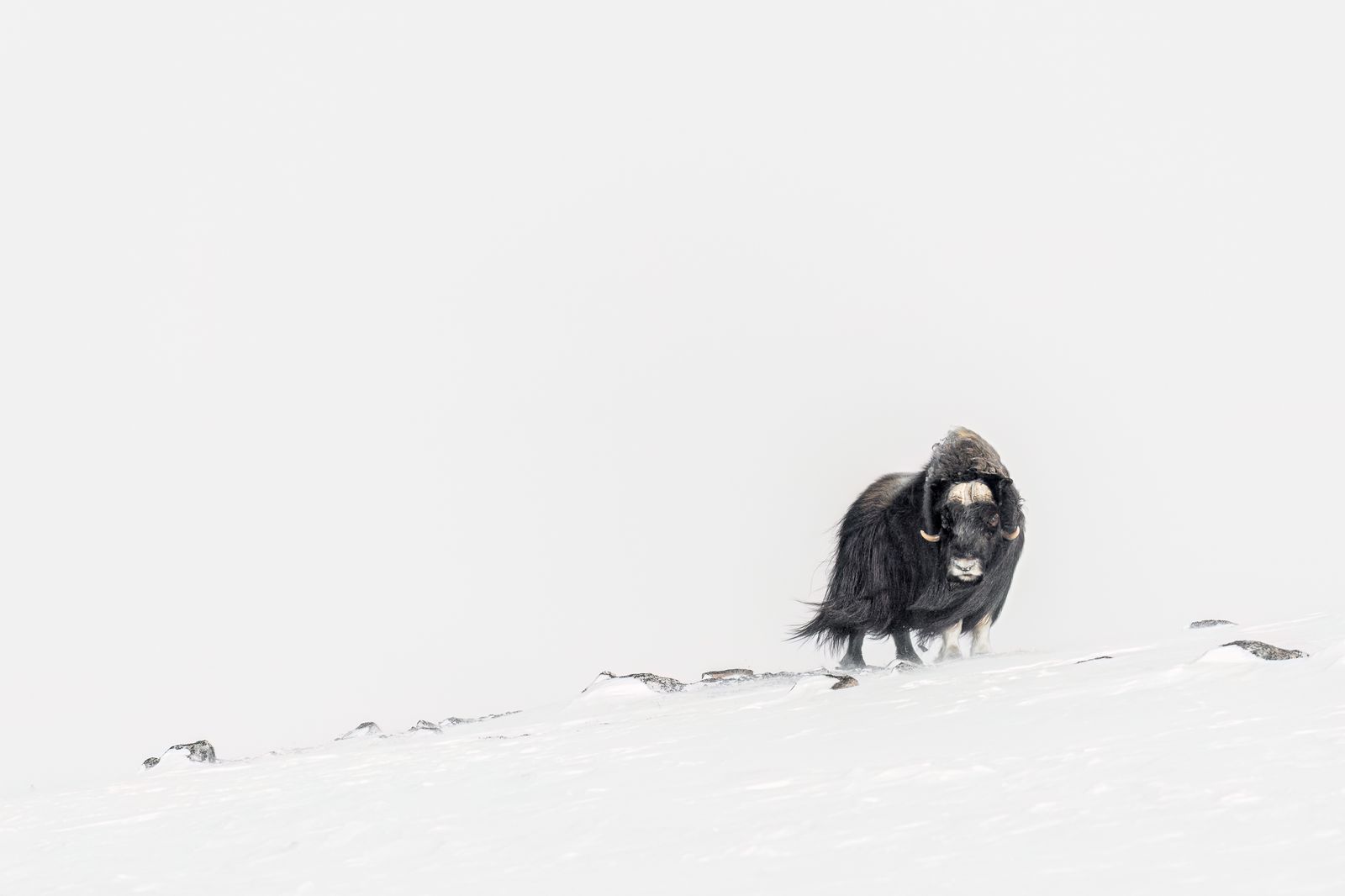
Polar Bears and Ice Landscapes of Eastern Greenland in Winter Expedition Report
March 12th - March 21st 2024
In March 2024, I ran an all-new winter dog sled expedition to eastern Greenland in search of Arctic wildlife and stunning winter landscapes. Eastern Greenland is one of our planet’s most remote and pristine areas. In Winter, it is a hostile, frozen world with temperatures that frequently plummet below -40º. Frozen oceans, glaciers, and precipitous mountains are more akin to a scene from George Lucas’s planet Hoth (from The Empire Strikes Back) than the earth we know. It is a stunning, dramatic, epic landscape that makes for other-worldly photographic possibilities for photographers looking for an adventure outside their comfort zone.
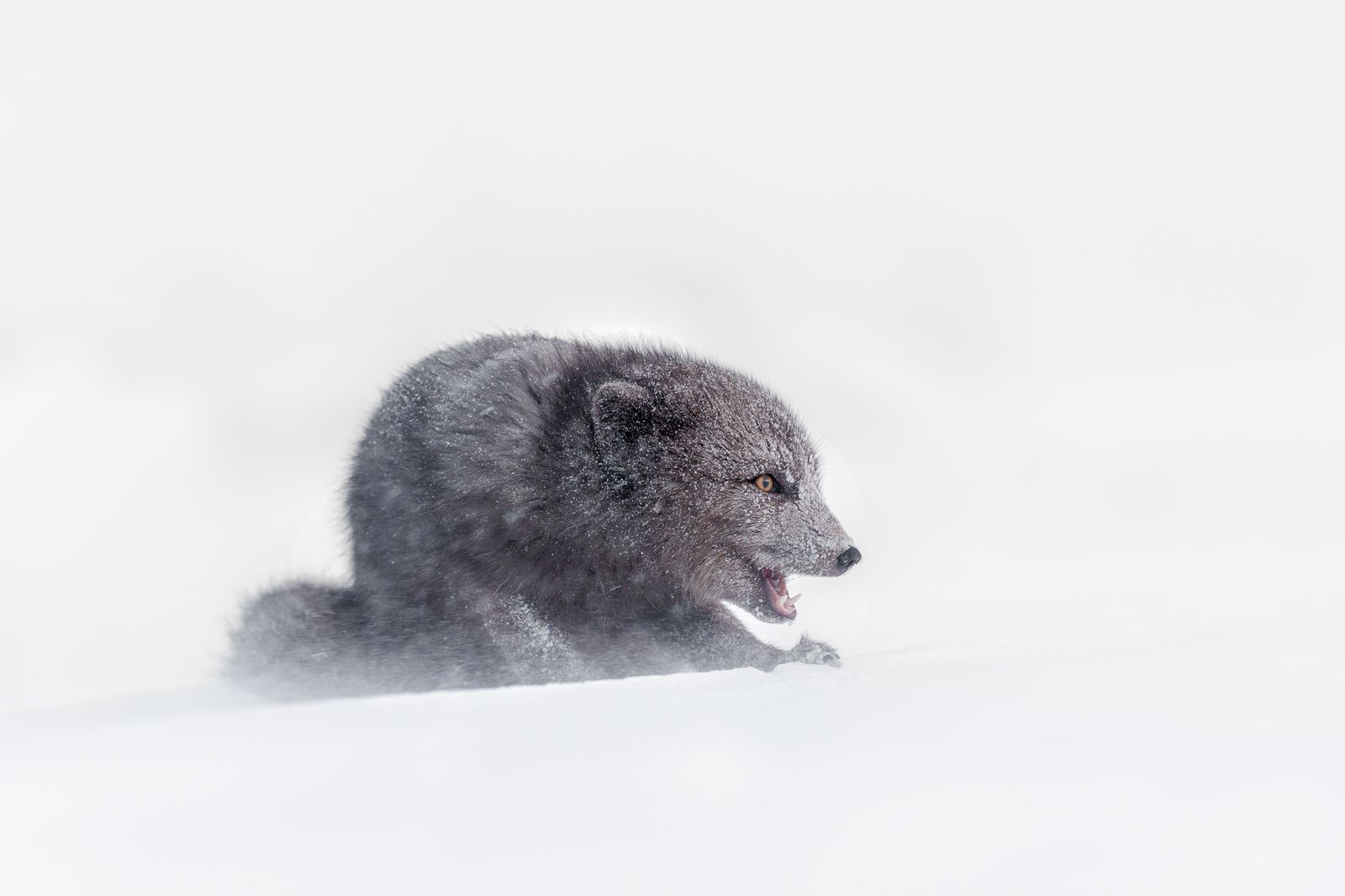
Arctic Foxes in Icelands Winter Wilderness Expedition Report
February 8th - February 14th 2024
In early February 2024, I led my annual winter expedition to the remote Hornstrandir Nature Reserve in northwestern Iceland to photograph the Arctic Fox. This is an expedition I have been leading every year for many years now (excluding the COVID pandemic) and is one very near and dear to my heart. Over a decade ago, I visited this remote Nature Reserve to find and photograph the Arctic Fox. Now, more than ten years later, and having guided many groups to this location, this is one of my number one preferred workshops to lead.
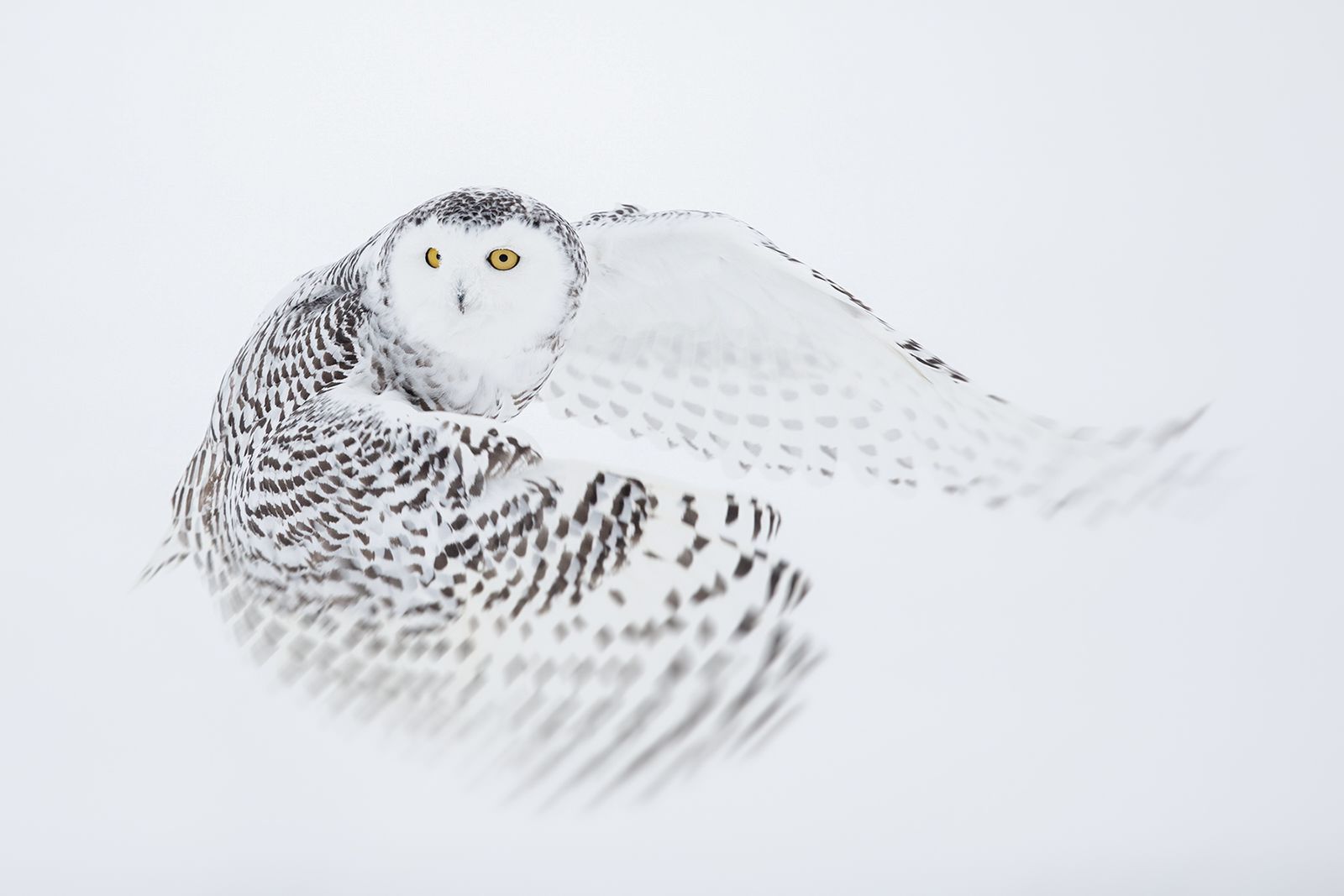
Snowy Owls in Canadian Winter Workshop Report
January 22nd - January 26th 2024
In January of 2024, I ran a small group workshop in the Ontario region of Canada to photograph the magical Snowy Owl. Snowy Owls are a highly sought-after species by nature photographers and are regularly sighted in this region of Canada in winter. Previous workshops in this area have proved exceptionally fruitful, with many owl encounters and photographs resulting from our time in the field. It has been common, in past years, to walk outside our accommodation after breakfast to find an Owl perched on a nearby fence or telephone pole. This year, things were quite different.

Pallas Cat of Eastern Mongolia in Winter Workshop Report
January 04th - January 10th 2024
In January of 2024, I ran an expedition to Mongolia’s far eastern Steppe region to find and photograph the stunningly beautiful, rare and enigmatic Pallas Cat. This was my third expedition to this remote region of Mongolia, and it proved no less productive than the previous two (Read the 2023 Trip Report). The camp where we based ourselves to find and photograph Pallas Cats resides in Mongolia’s far eastern Steppe region, nearly 700 kilometres from the capital, Ulaanbaatar. We used three large 4-wheel drive vehicles to reach the camp and to search for cats in the field. In good conditions, the drive is around 8-10 hours. The drive took us nearly twelve hours this year due to heavy snowfall. This year, I am including more behind-the-scenes photographs in the trip report to help paint a better picture of the overall experience of visiting and living in this remote region.
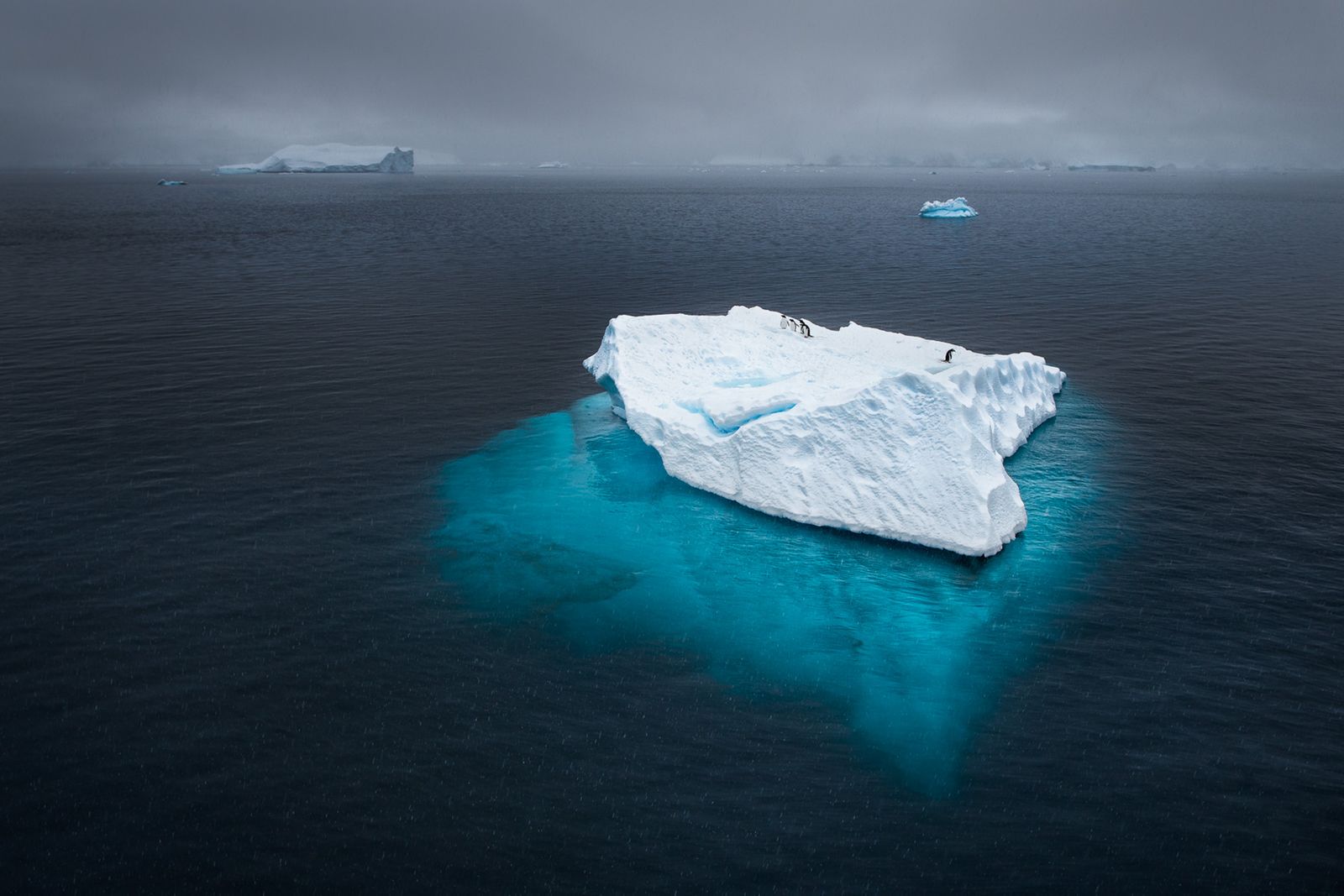
Antarctica Return to the White Continent Expedition Report
December 08th - December 21st 2023
My final expedition for 2023 was to the Antarctic Peninsula – a location that continues to inspire and fuel my creativity and one I never tire of returning to. This expedition was a full, dedicated charter to the Peninsula for landscape and wildlife – it was not a shared expedition with general Antarctic tourists. This trip was my twelfth season guiding expeditions to Antarctica, and it is always wonderful to return to this miraculous continent. Over the many years of leading trips to Antarctica, I have learned that the best possible experiences and photographs always come from dedicated expeditions that are not shared with general tourists.
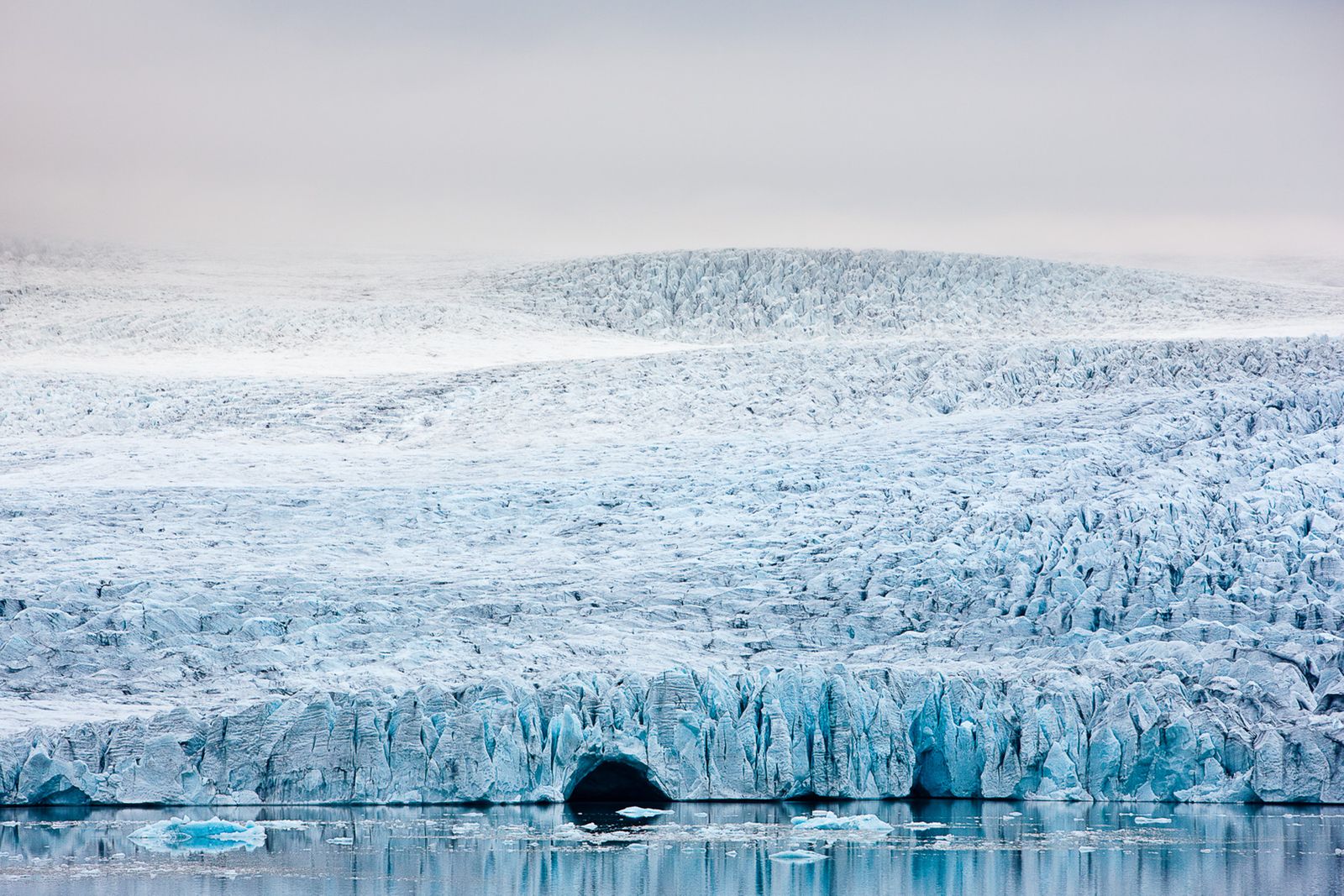
Iceland North Eastern Landscape Extension Workshop
October 11th - October 16th 2023
After the 2023 Greenland expedition 2023 (Read the Trip Report), I ran an optional extension workshop in Iceland that took our group from the northern port of Aukeryri (where we docked from our Greenland expedition) southeast and back to Reykjavik. The extension ran for six days and focused on the landscapes in this area of Iceland as the country transitioned from Autumn to Winter. The southeast of Iceland can be a bustling place, with tens of thousands of tourists visiting many of its iconic waterfalls and nature attractions. We aimed to avoid some tourist hot spots and instead focus on more remote and isolated locations that offer unsaturated opportunities. Of course, some locations (such as Jokulsarlon and Stokesness) are so iconic they are always a must-visit.

Greenland East Coast Winters Cusp Expedition Report
September 30th - October 11th 2023
In late September 2023, I ran my Greenland East Coast Winters Cusp expedition to Scoresby Sund, the world’s most extensive (and spectacular) fjord system. This expedition was carefully timed for late September to ensure actual sunrise and sunset for optimal light. Journeys to this part of Greenland in June / July and August usually just result in overhead harsh light 24 hours a day, so the choice of time of travel is crucial for photographic expeditions to this part of the world. Proper darkness also provides opportunities for Aurora photography, something we took advantage of on several occasions. Scoresby Sund is, without a shadow of a doubt, the best place in the world to photograph monolithic icebergs, many of which can dwarf skyscrapers. The incredible sizes, shapes, textures and colours are a photographer’s dream, and the transient nature of icebergs makes each photograph unique – something exceptional these days in a world saturated with Instagram hot spot locations.
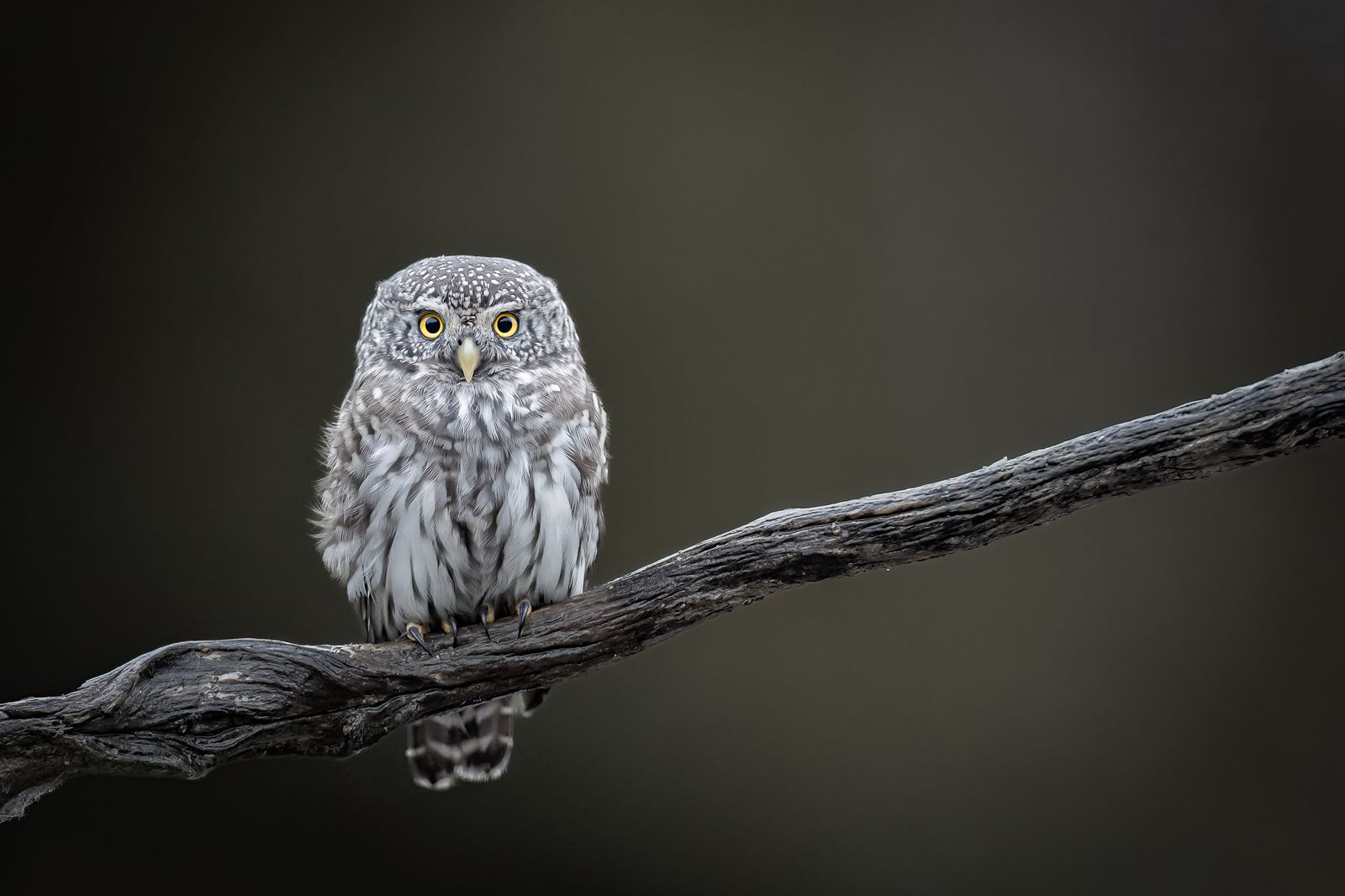
Finland Eagle Owl and Golden Eagle Extension Workshop Report
September 18th - September 23rd 2023
In late September 2023, I ran an extension for the participants in the Wild Wolves of the Taiga Forest workshop (Read the Trip Report) in northern Finland for golden eagles and eagle owls. Northern Finland is one of the best places to see and photograph these amazing birds reliably, and late September provides lovely colour in the boreal forest. Fortuitously, we had excellent photographic encounters with both species and many smaller bird species. We also had a miraculous encounter with a Eurasian Pygmy Owl.
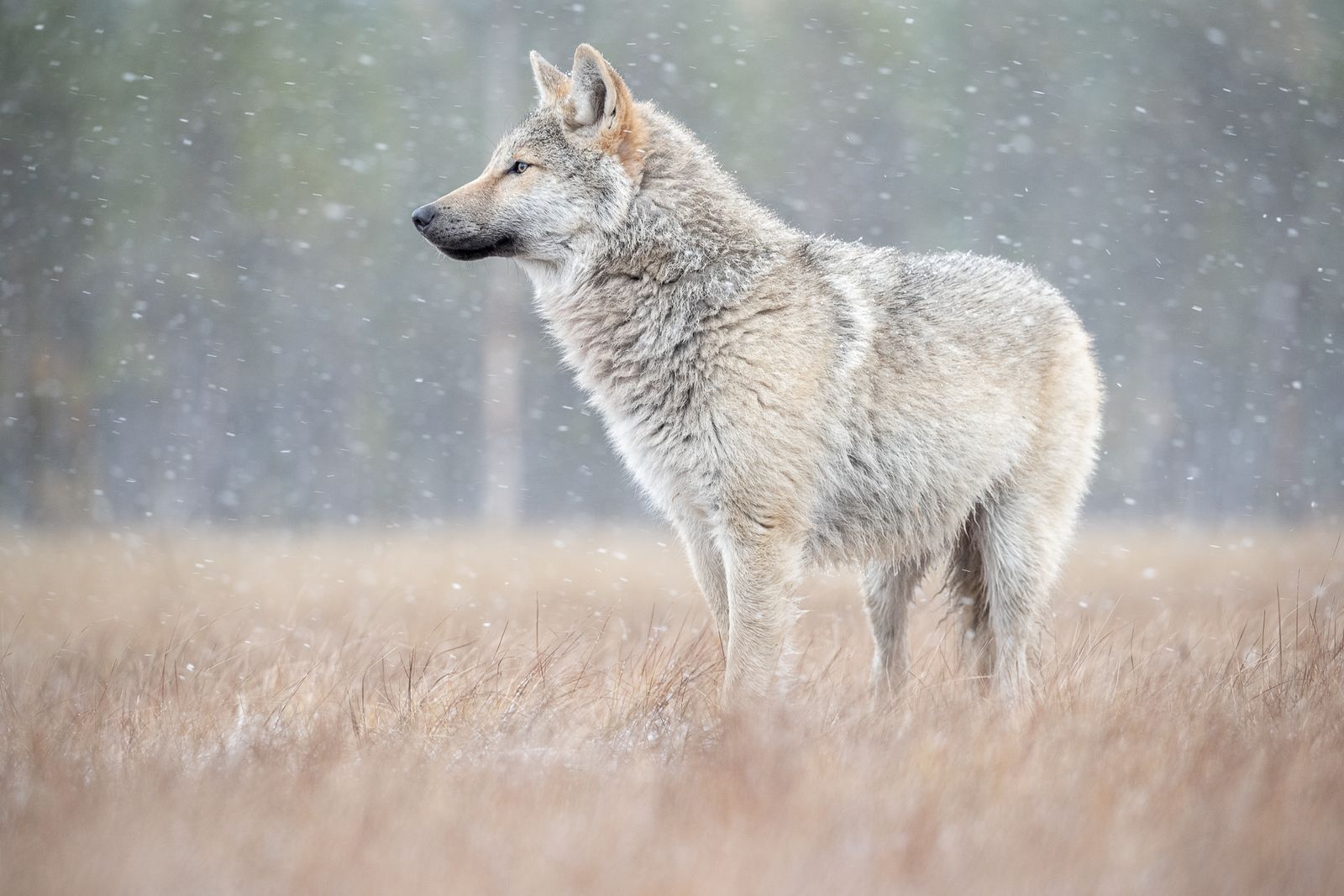
Wild Wolves of the Taiga Forest in Finland Workshop Report
September 10th - September 18th 2023
In September 2023, I led my semi-annual workshop in northern Finland to photograph the wild wolves, bears, and wolverines of the Taiga forest. Perhaps this year, I should have renamed the workshop Wild Bears of the Taiga forest, as the local brown bears put on a daily show for us during the week-long expedition. Wolves were thin on the ground this year, the result of an illegal shooting of the Alpha male and female that had grown up in this area and that I had photographed as pups several years ago (they are featured in my book Never Cry Wolf). The good news is my local operator has advised that the pack has now returned to the area and is being seen most days again.
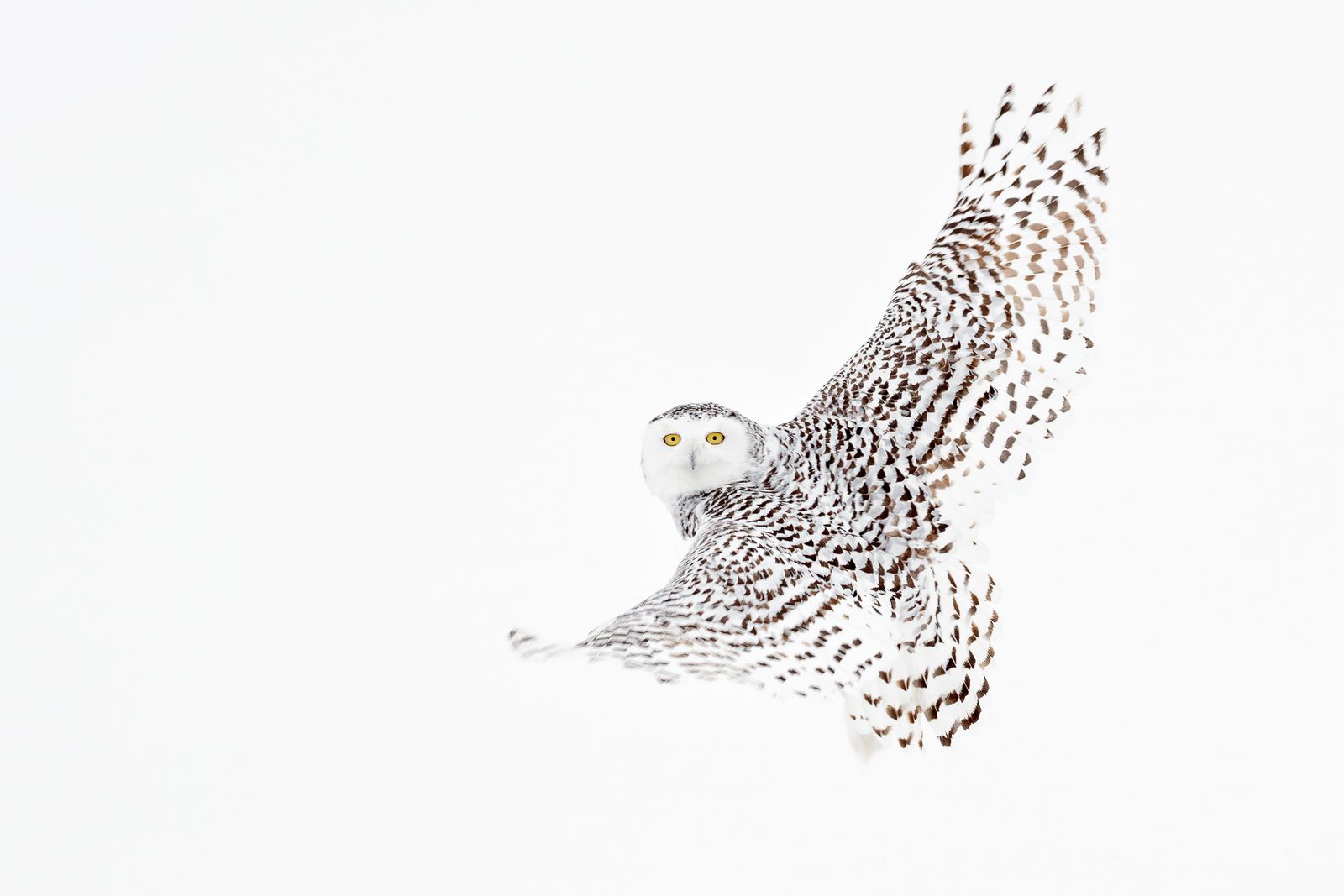
Arctic Birds of Barrow Alaska Scouting Trip Report
June 7th - June 16th, 2023
In June of 2023, I ran a private scouting trip for Arctic birds to the far northern slope of Alaska. For the duration of this scouting trip, we (the two of us) were based in the small Inuit town of Barrow and made nightly excursions via a 4-wheel drive vehicle to the surrounding Arctic tundra in search of birds to photograph. Barrow is far enough North that by June, it is illuminated by the midnight sun, and it is possible to photograph twenty-four hours a day. Working at night provides much softer light than traditional daylight hours, often further softened by sea fog rolling off the nearby pack ice. For the ten days we were in Barrow, we stayed in the King Eider Inn, which is basic but functional and conveniently located about a hundred metres from the airport.
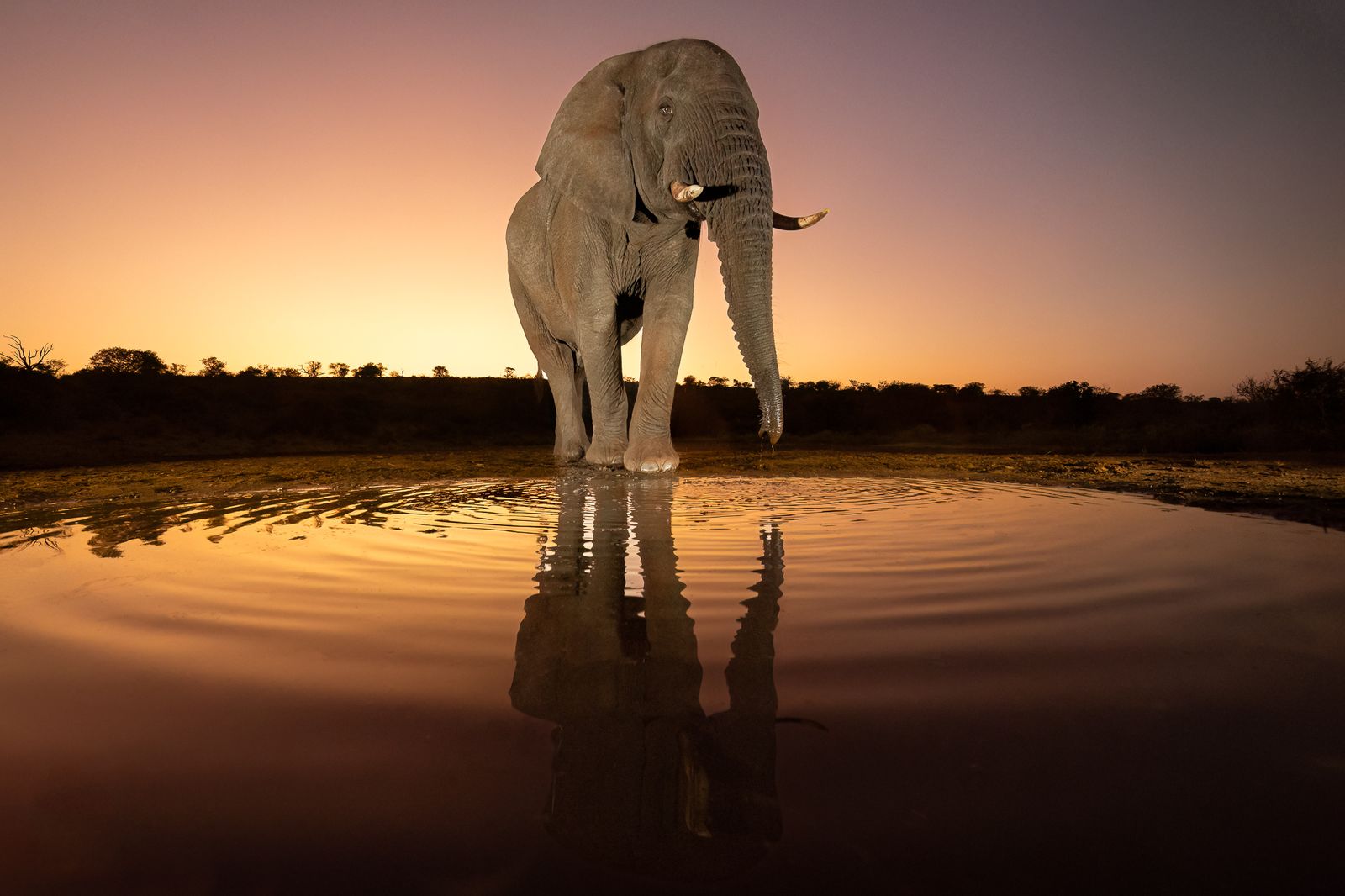
Zululand South Africa Wildlife Masterclass Report
May 20th - May 29th, 2023
In May of 2023, I ran what has become an annual ground-level wildlife masterclass workshop in Zululand, South Africa. African Safaris and even African Photographic Safaris are nothing new, but the ability to work at ground level with wildlife in Africa is unique and incredibly special. Working at ground level provides opportunities for emotive and powerful photographs simply not possible from traditional safari vehicles. Whilst we have all seen endless pictures of Cheetah high up from safari vehicles, how many have seen or experienced Cheetahs while walking on the ground? How many have walked with and photographed wild Cheetah on the hunt?
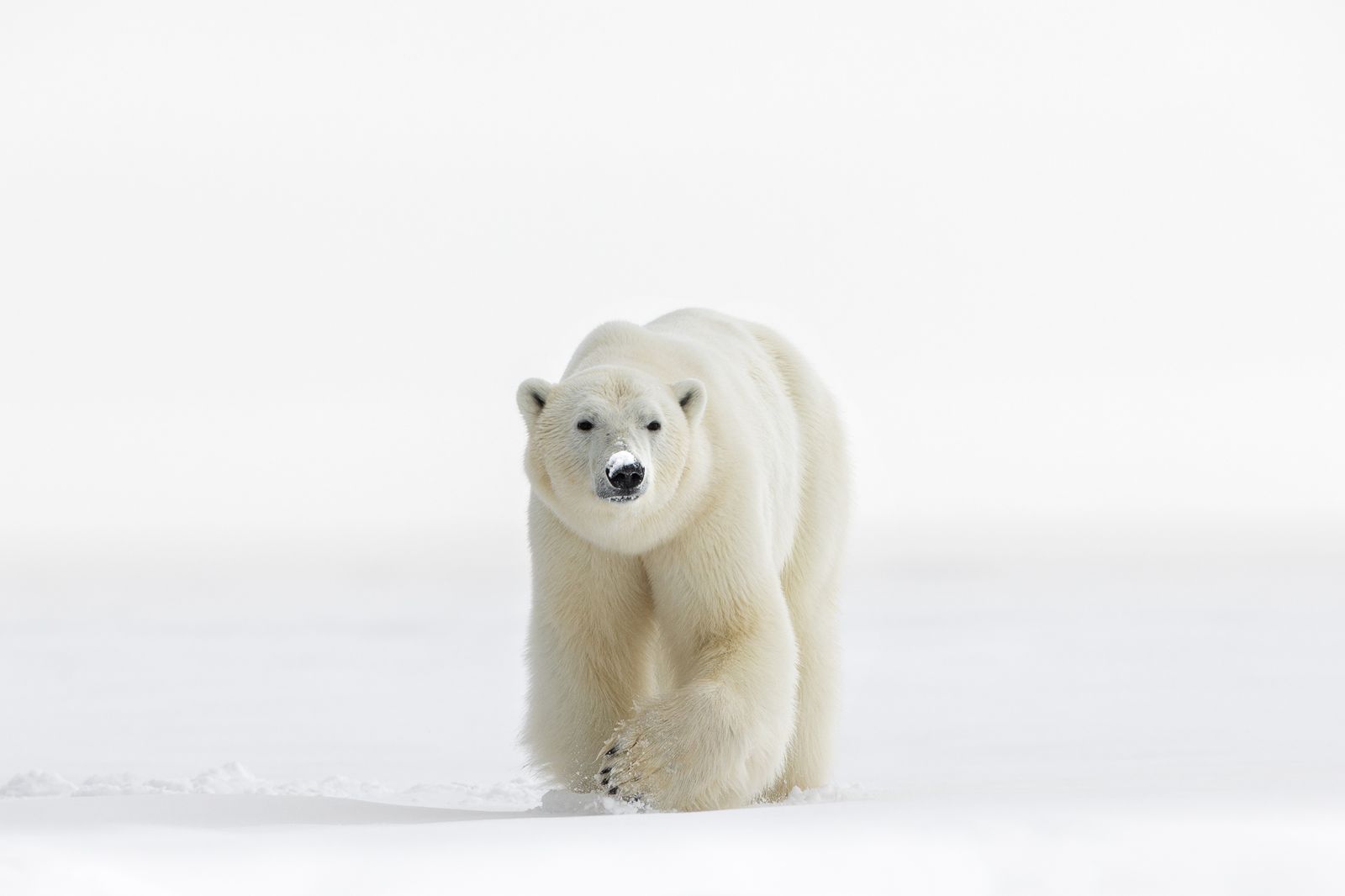
Svalbard Spring Light Expedition Report
April 7th - April 15th, 2023
In early April of 2023, I led my Arctic Spring Light expedition to the archipelago of Svalbard. This expedition aimed to photograph wildlife in and around Spitzbergen and the incredible high Arctic landscape draped in its frosty Winter armour.
This time of year, the sun never truly sets in the high Arctic, meaning hours of golden light are available to make photographs. Even late into the evening and early morning, there is sufficient light to photograph the dramatic landscapes in the high Arctic. There is something quite surreal about standing on the bow of an expedition ship as it gently ploughs the waters, camera in hand, around midnight, under soft Arctic light, watching the breathtaking landscape roll past. I have been fortunate to photograph around Svalbard for over a decade and never tire of returning to this miraculous archipelago. There is a mystical draw to the Arctic that tugs deeply at my soul, and even now, barely over my jetlag, I yearn to return yet again to the land of ice and snow.
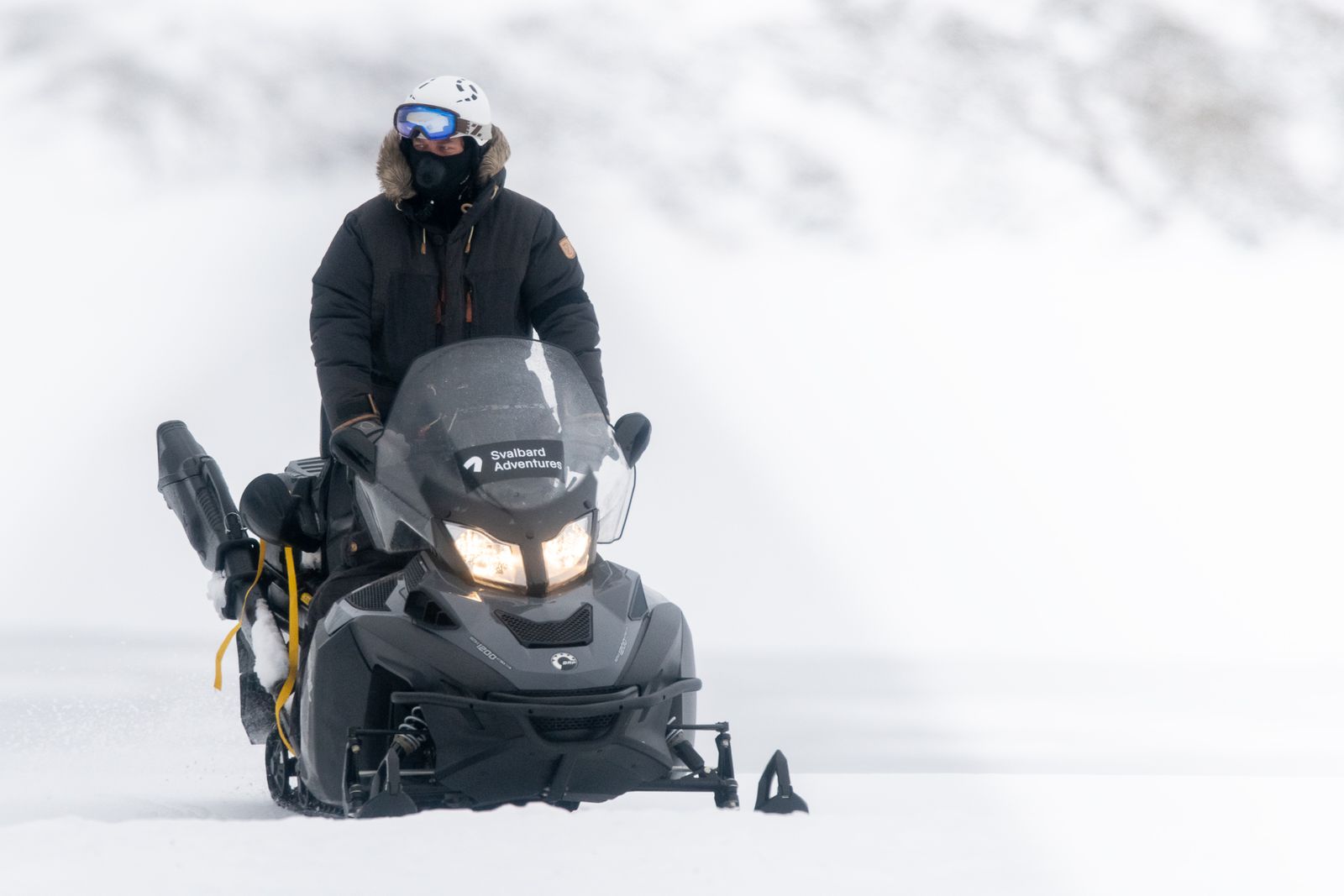
Ellesmere Island in Search of the White Arctic Wolf Expedition Report
March 3rd - March 15th, 2023
With all the travel difficulties over the last couple of pandemic years, the 2023 Ellesmere Island expedition report was one I wanted to start with positive travel news. Alas, Canadian North (the only airline that flies from Ottawa to Ellesmere Island) let us down so badly this year that I feel compelled to get the story and rant out of the way to move on to more positive news. I do not want to overplay the mess Canadian North made of this expedition. However, I want to emphasise that this is why I strongly recommend travel insurance for any trip you participate in, regardless of location. You never know what circumstance may curtail your travel.

Arctic Foxes in Winter in Iceland Expedition Report
February 8th - February 14th, 2023
In early February 2023, I led my annual winter expedition to the remote Hornstrandir Nature Reserve in north-western Iceland to photograph the Arctic Fox. This is an expedition I have been leading every year for many years now (excluding the COVID pandemic) and is one I always eagerly look forward to.
As I have written before, the Arctic fox is Nature’s most remarkable feat of engineering and is an incredibly photogenic subject in the snow-covered Iceland landscape. In the far north of Iceland, the Arctic fox is protected inside the Nature reserve, and it is possible to get extremely close to these wild animals. Over the years, I have come to know several of the foxes that frequent the cabin we stay in, and my time with them has become extremely precious.

Snow Leopard of Western Mongolia Expedition
January 12th - January 21st, 2023
In mid-January of 2023, I led my first expedition with clients to find and photograph the stunningly beautiful and elusive Snow Leopard in the snow-covered north-western region of Mongolia in Winter. This was an expedition that was initially scheduled to run in January of 2022 but was delayed as a result of the COVID pandemic. This was the very last expedition and workshop left for me to catch up on as a result of all the COVID delays.
The snow leopard is one of the most elusive and sought-after animals on the planet by wildlife photographers. It is incredibly difficult to find and photograph in the wild, with the vast majority of attempts failing, or at best, spotting a leopard through a spotting scope at a significant distance. The aim of this expedition was to get close enough to photograph the cat with a long telephoto lens. As it turned out, we were able to get within twenty metres of several Snow Leopard cubs on our very first encounter.
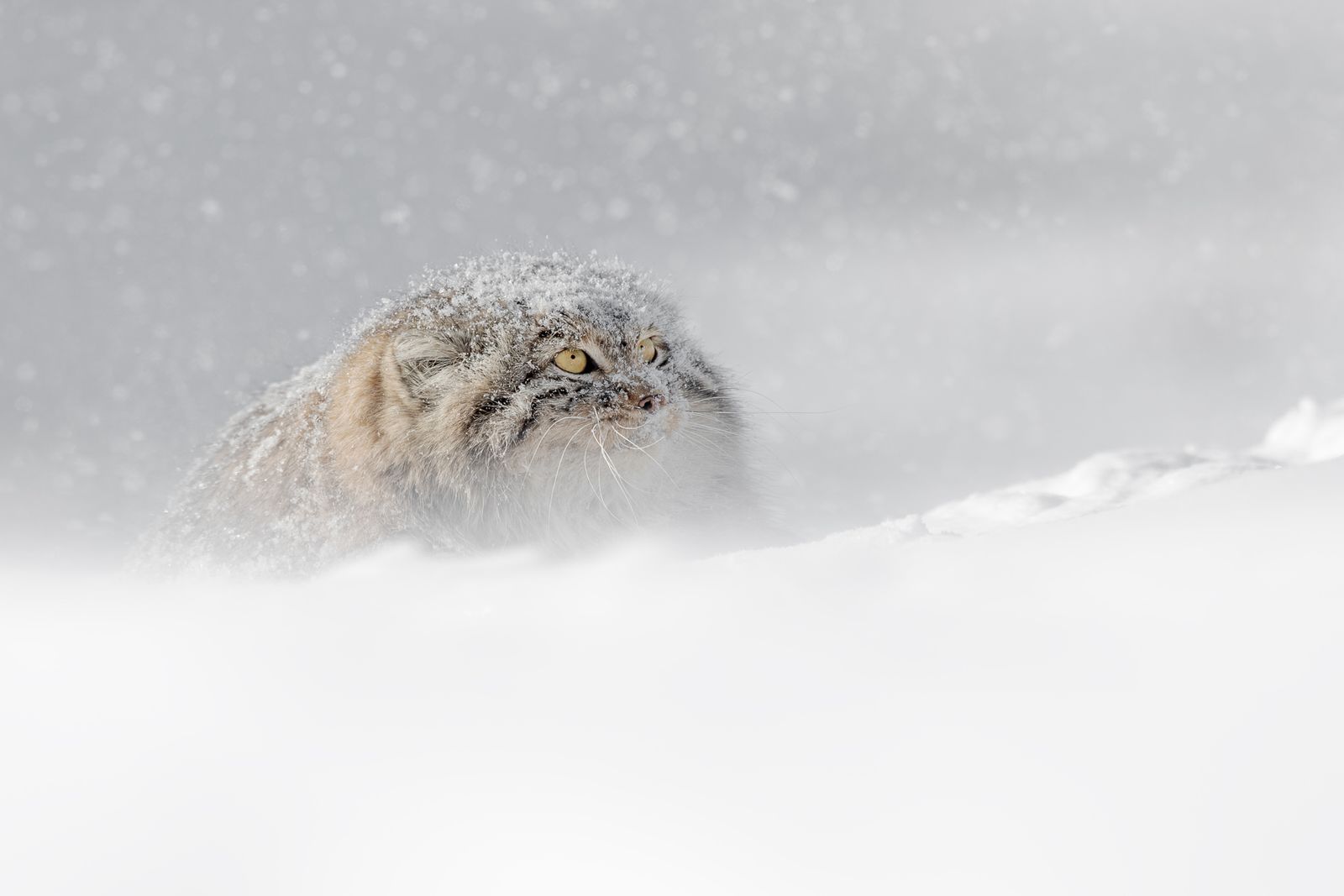
Pallas Cat of Eastern Mongolia Expedition
January 4th - January 10th, 2023
In early January of 2023, I led my first expedition with clients to find and photograph the stunningly beautiful and enigmatic Pallas Cat in the snow-covered steppe region of far-east Mongolia in Winter. This was an expedition that was initially scheduled to run in January of 2022 but was delayed as a result of the COVID pandemic. This expedition was also highly requested as a direct result of the scouting trip I did to this region in the Winter of 2019. I had also been itching to return to Mongolia since my visit there three years ago – it remains one of the most underrated destinations on earth for wildlife.

The Emperors Expedition of Gould Bay Antarctica
November 18th - November 26th, 2022
In late November 2022, I led a once-in-a-lifetime photographic expedition experience deep into Antarctica to photograph the world’s largest and most difficult-to-reach Penguin - The Emperor. I have written extensively before on the difficulties in reaching the Emperor penguin. It is one of the true ironies of wildlife photography. Knowing exactly where your subject is located but having an incredibly time-consuming, expensive, and difficult time getting there. Other than the elusive white wolf of Ellesmere Island, I know of no other wildlife so difficult to get to.
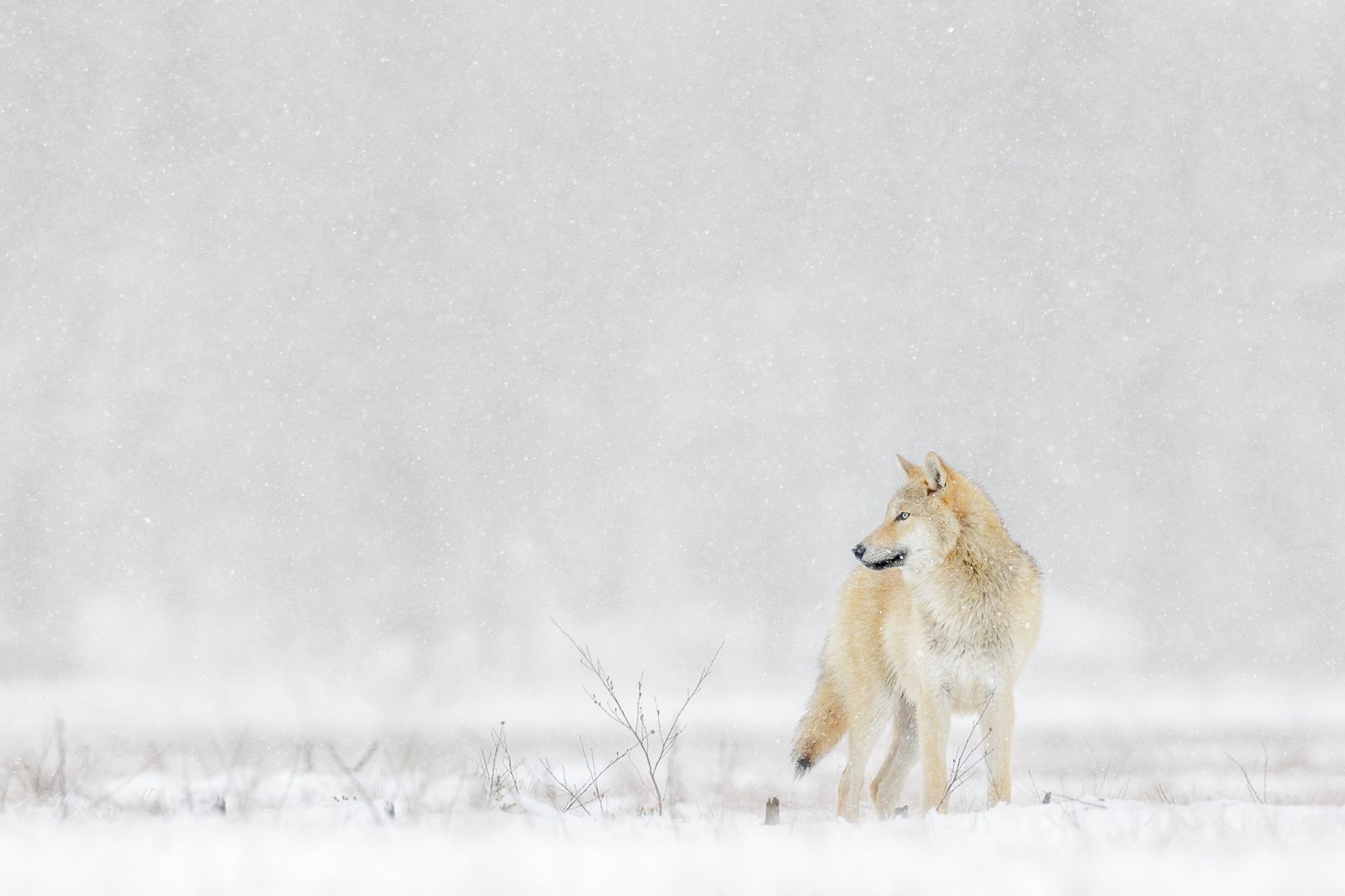
Wild Wolves of the Taiga Forest Workshop Report
October 10th - October 17th, 2022
In early October 2022, I ran my wildlife workshop in northern Finland for Wolves, Bears, and Wolverines - Wild Wolves of the Taiga Forest. This is a workshop I have been running for some years now and is something I always eagerly look forward to. Put simply, Finland has rapidly become one of my all-time favorite destinations for Wildlife photography. It offers a fantastic variety of wildlife in a stunning setting in late Autumn and Winter. I believe it is currently the best and most reliable place in the world to photograph wild wolves.
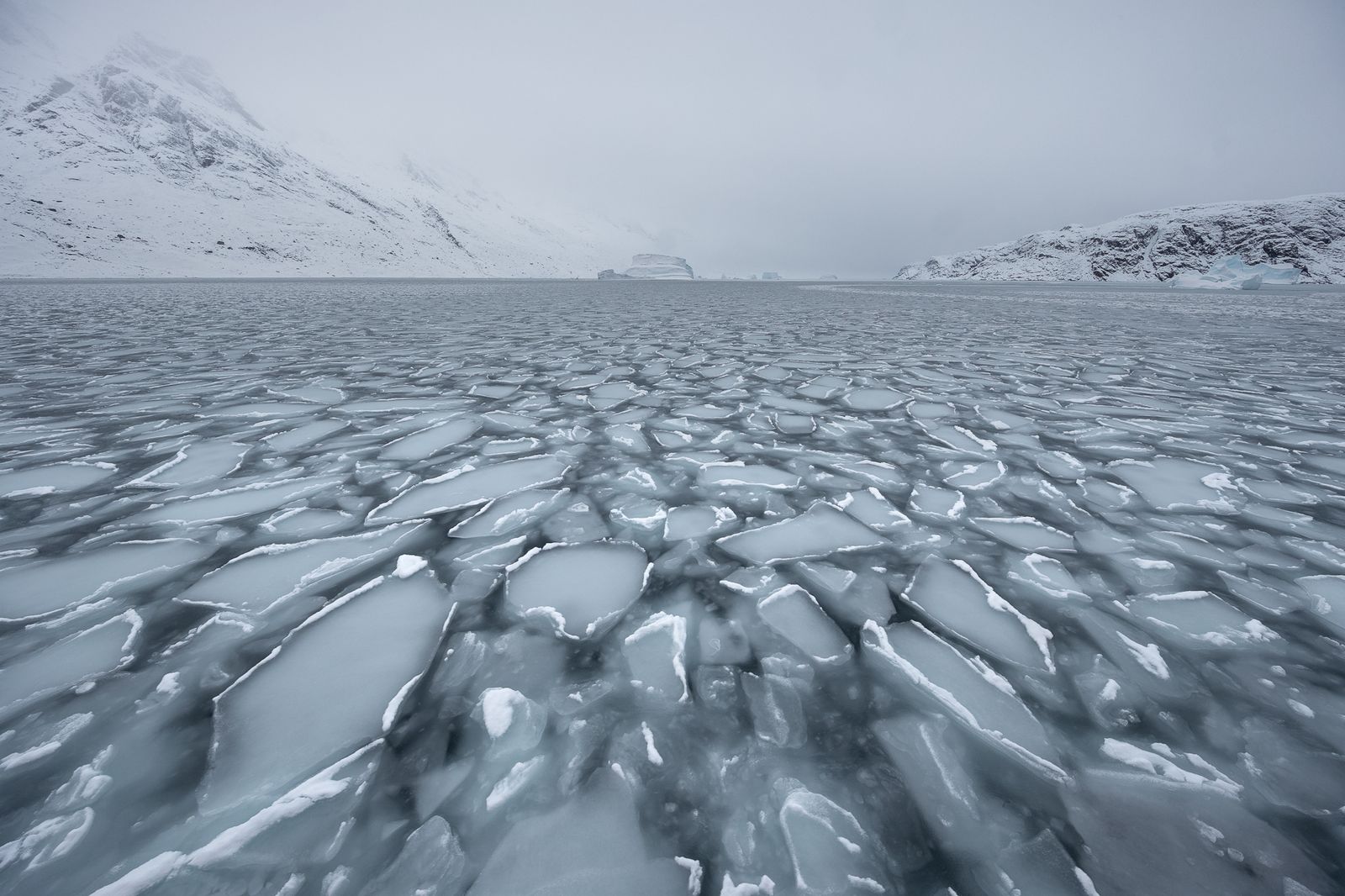
Greenland Scoresby Sund Winter is Coming Expedition Report
September 24th - October 5th, 2022
In late September of 2022, I ran a landscape expedition to Scoresby Sun on the East coast of Greenland. This expedition was originally scheduled to run in September 2020, but the COVID-19 pandemic saw us delayed until 2022. My sincere thanks to all those who were patient with the pandemic delay and kept the faith that we would finally be able to make our course to the world’s largest fjord system in search of stunning icebergs and landscapes. I do want to emphasize the point that this expedition was only possible due to the understanding and patience of all who participated – to them all I am eternally grateful. I am also grateful to my very good friends Martyn Lucas and Daniel Bergmann who assisted me tirelessly with expedition duties.
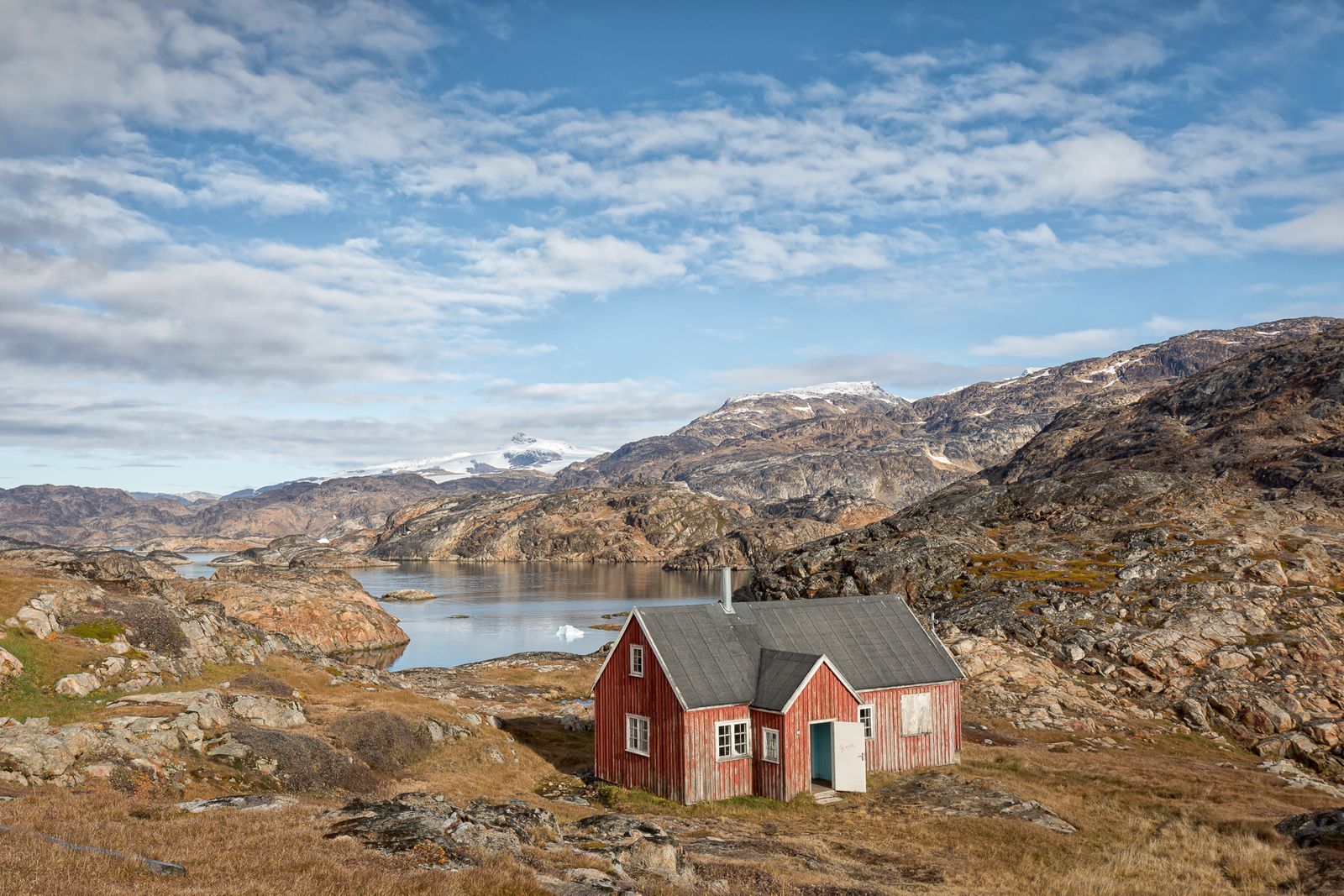
Greenland South East Coast Landscapes Workshop Report
September 14th - September 21st, 2022
In mid-September of 2022, I ran an all-new landscape photography workshop in the South-east of Greenland with my long-time friend and co-photographer Martyn Lucas. This workshop saw us fly from Reykjavik in Iceland to Kulusuk in the South-east of Greenland - a flight time of approximately one hour and forty-five minutes. From Kulusuk we took a private charter boat to the small remote town of Tasiilaq (a journey of approximately one hour); that was to serve as the base for our workshop for the duration of our time in Greenland. Our accommodations were a small hotel located near the top of the town. The hotel, although basic and functional, provides all the usual amenities one would expect to find including private rooms and bathrooms with hot water. It also serves three buffet meals a day making it an ideal base for our operations.
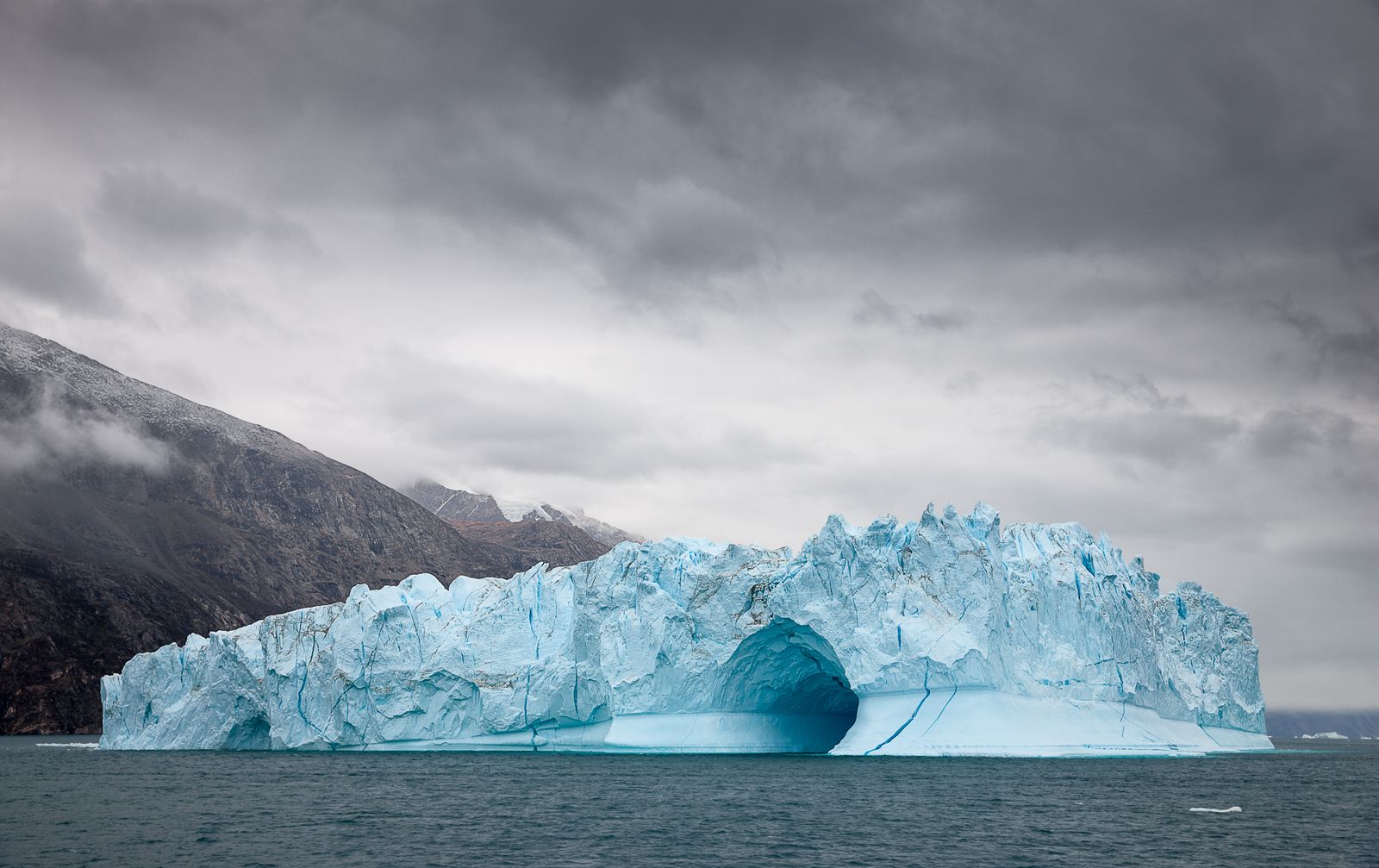
Greenland East Coast Scoresby Sund Expedition Report
August 28th - September 8th, 2022
In early September of 2022, I helped guide a photographic expedition to Scoresby Sund on the East Coast of Greenland aboard the Swedish ship, M.S Freya. Scoresby Sund is the largest fjord system in the world and in my experience, offers some of the best landscapes to be found anywhere on the planet. This was not an expedition I organized and was instead aboard, by invitation, as an assistant guide. This freed up some of my time and provided me some additional opportunities for photography - for which I was very grateful.
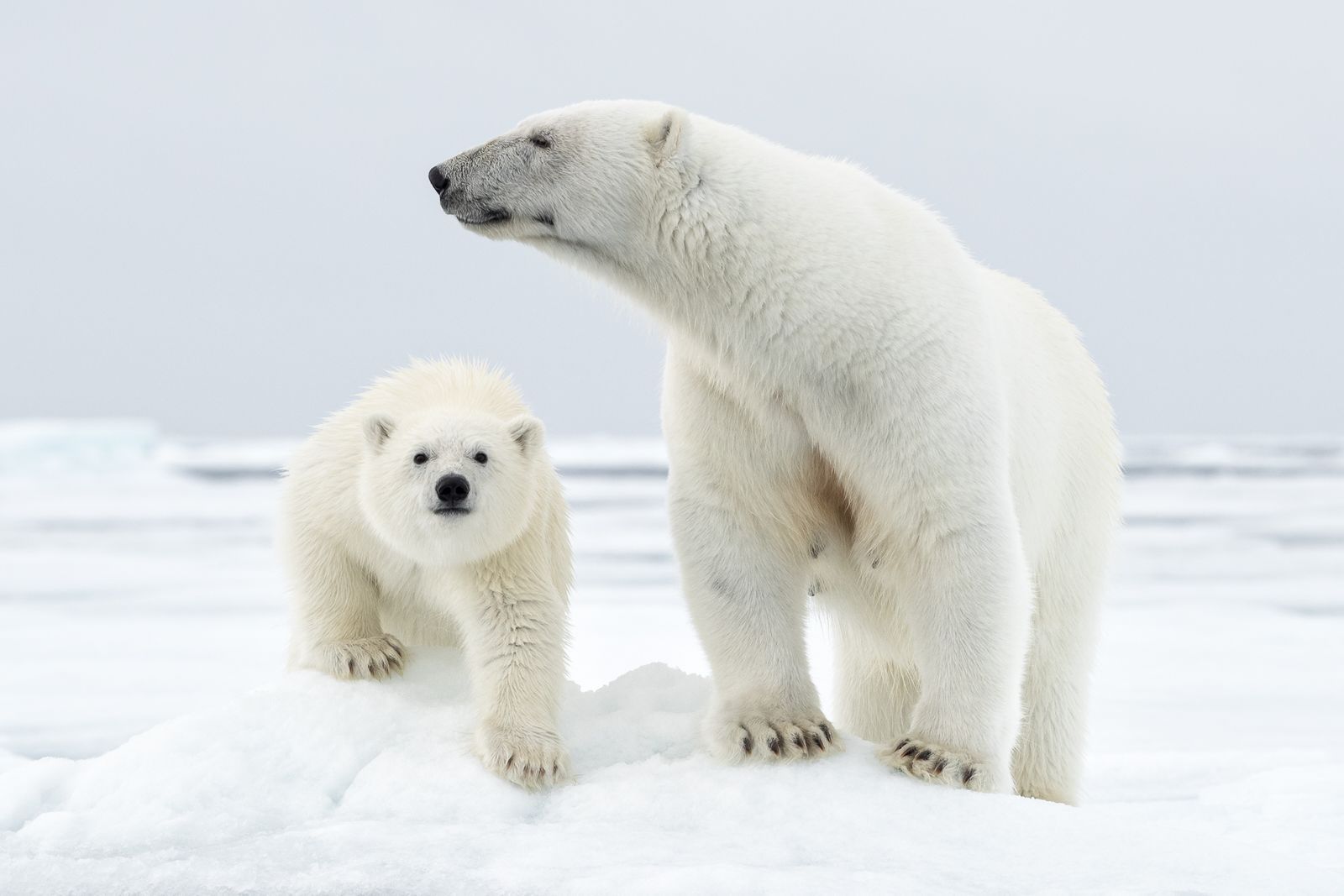
Svalbard Kingdom of the Ice Bear Expedition Report
July 6th - July 15th, 2022
In July of 2022, I ran my annual expedition to the high Arctic of Svalbard in search of Polar Bears and other Arctic wildlife. This expedition was originally scheduled to run in July of 2020, but the COVID pandemic saw us delayed until 2021 and then finally until 2022. As it turned out, this was not the only incident to cause delays for this expedition. Due to the snap SAS airline pilot strike two of the participant photographers were regrettably and unavoidably delayed in Oslo, Norway, and unable to make it to Longyearbyen, Svalbard in time for the expedition departure. This saw our group size drop to ten instead of the usual twelve. Just as an aside, it is because of situations such as this (that are out of everyone's control) that I strongly recommend all participants always take out high-quality travel insurance (in addition to evacuation and medical insurance). You just never know when your travel might be curtailed by circumstances outside of your control. There really is nothing more frustrating than being unable to reach a planned destination in time.

Zululand South Africa Workshop Report
May 23rd - June 2nd, 2022
In May of 2022, I ran an all-new workshop at an exclusive private game reserve in Zululand, South Africa (about three hours drive from Durban). The purpose of this workshop was to provide unique and unprecedented opportunities to photograph African wildlife from luxurious ground-level photographic hides as well as to experience more traditional African game drive safaris. There are of course many locations throughout Africa that offer the opportunity to do daily game drives with luxurious accommodations, but to my knowledge, there is currently only one location that offers overnight ground-level hides of this caliber.
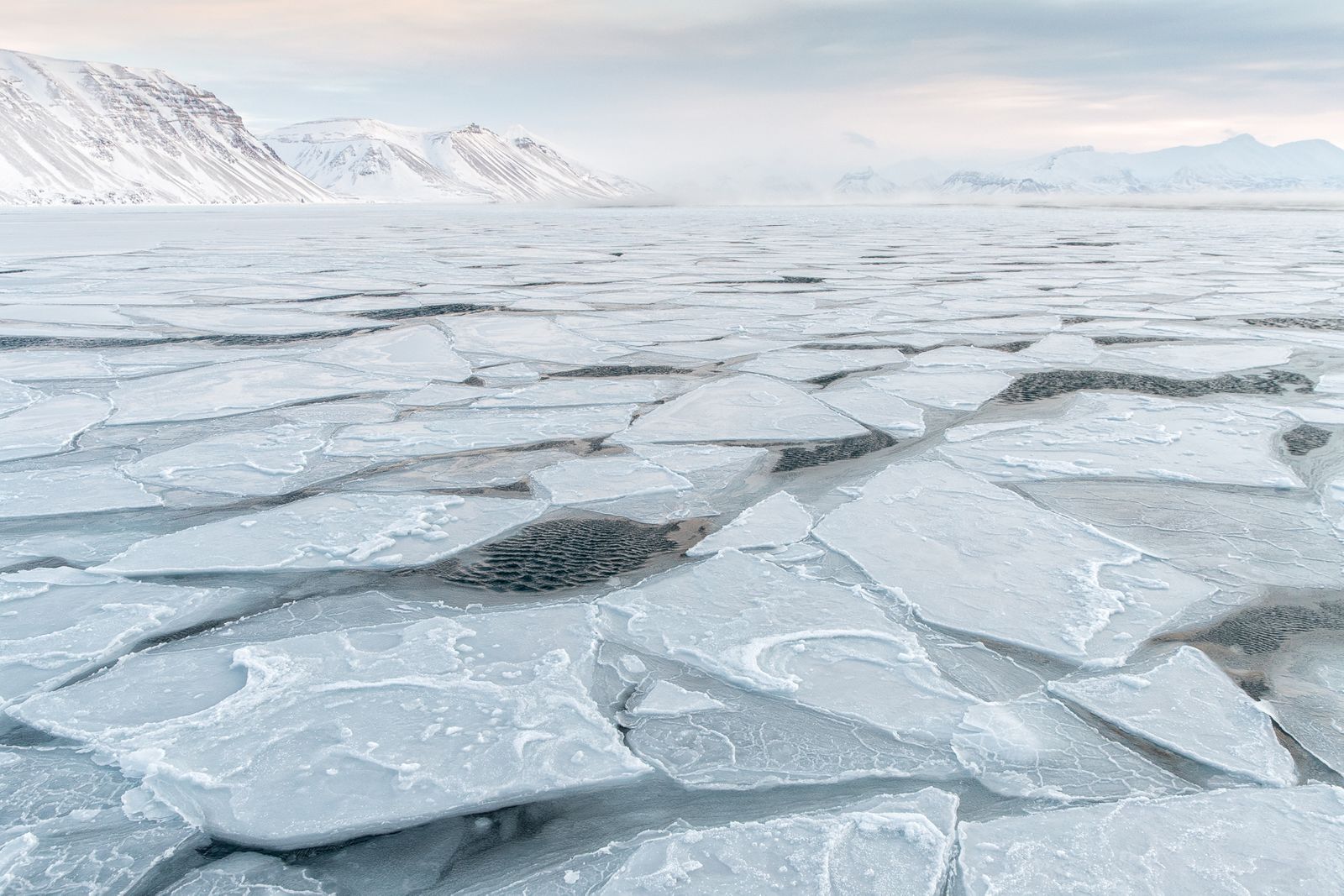
Svalbard Return of the Light Expedition Report
April 8th - April 16th 2022
In early April 2022, I ran my Svalbard Spring Light Expedition. This was my first expedition to Svalbard since 2019 – pre-pandemic; and it was absolutely brilliant to return to this incredible archipelago. As I have written before, Winter and early Spring have become my favorite time of year to visit Svalbard. The low angle of sun, snow and ice-covered landscape draped with stunning ethereal light make for excellent photographic opportunities and unlimited potential. We certainly experienced some really incredible light and landscape during this expedition. We also had some extraordinary wildlife encounters.
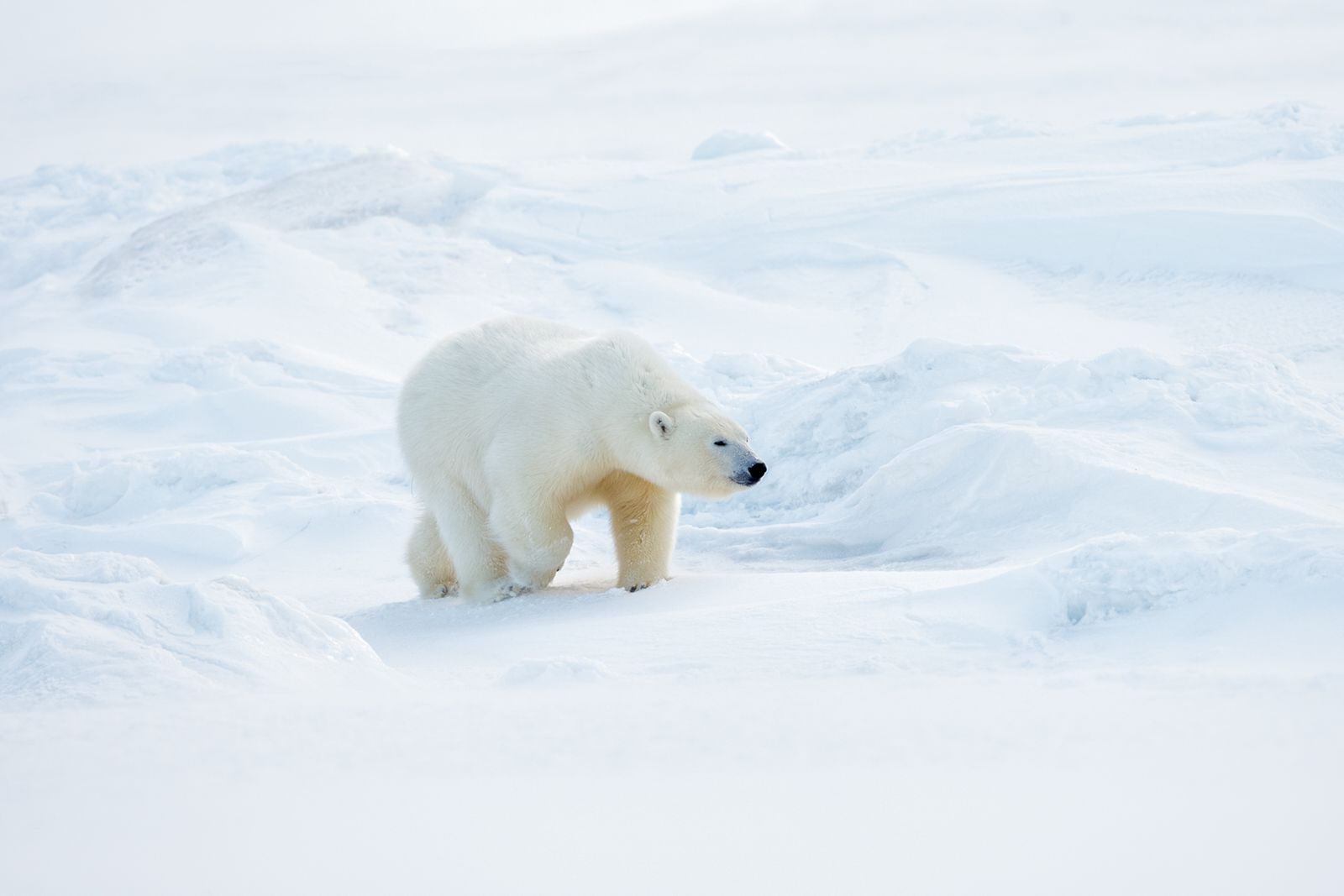
Ellesmere Island in Winter Expedition Report
March 15th - March 27th, 2022
In March of 2022, I co-led an all-new twelve-day test expedition to Ellesmere Island in Winter with fellow Nature Photographer David Gibbon. This expedition was in the planning for more than three years and was the net result of a long-time dream to try and photograph the near-mythical White Arctic Wolf in winter. The expedition was originally scheduled to run in 2020, but the COVID pandemic saw us delayed until 2022.
For those unfamiliar, Ellesmere Island is located in the far north of Nunavut in the northernmost region of Canada and is one of the most remote and isolated landmasses on earth. Very few people ever visit this far northerly island and even fewer do so in the depths of winter. Of those few that do visit the small town of Grise Fiord, even fewer will venture north outside the perimeter of the town on a winter expedition. Just to get to Grise Fiord requires not less than five flights from Ottawa, Canada - Ottawa to Iqaluit, Iqaluit to Pond Inlet, Pond Inlet to Arctic Bay, Arctic Bay to Resolute, and then finally a Twin Otter from Resolute to Grise Fiord. In Winter, flights are never certain and we were delayed a day in both Iqaluit and Resolute on our way to Grise Fiord due to poor weather and canceled flights. We always expected potential days (it is the Arctic in winter after all) and had built in some extra time for this eventuality. We actually put a dedicated charter on standby from Resolute to Grise Fiord in case of further delays but were thankfully able to use our original tickets into Grise Fiord.

Finlands Winter Wildlife Workshop Report
February 18th - February 25th 2022
In mid-February of 2022, I ran a winter wildlife workshop in the northern region of Finland. This is the second workshop I have led into Finland in winter that has been dedicated to wildlife. In my experience, Finland is one of the most underrated destinations for wildlife photography and offers everything from Wolves, Wolverine, Pine Martin, Eagles, Owls, and a plethora of wonderful small Arctic birds. Winter can throw up its challenges including freezing cold weather, but for the photographer willing to get out of their comfort zone, the rewards can be really fantastic. Winter paints a stunning white canvas in Finland in February. The Taiga forest is frozen and frequently draped in snow and the opportunities for minimalist emotive photography abound.
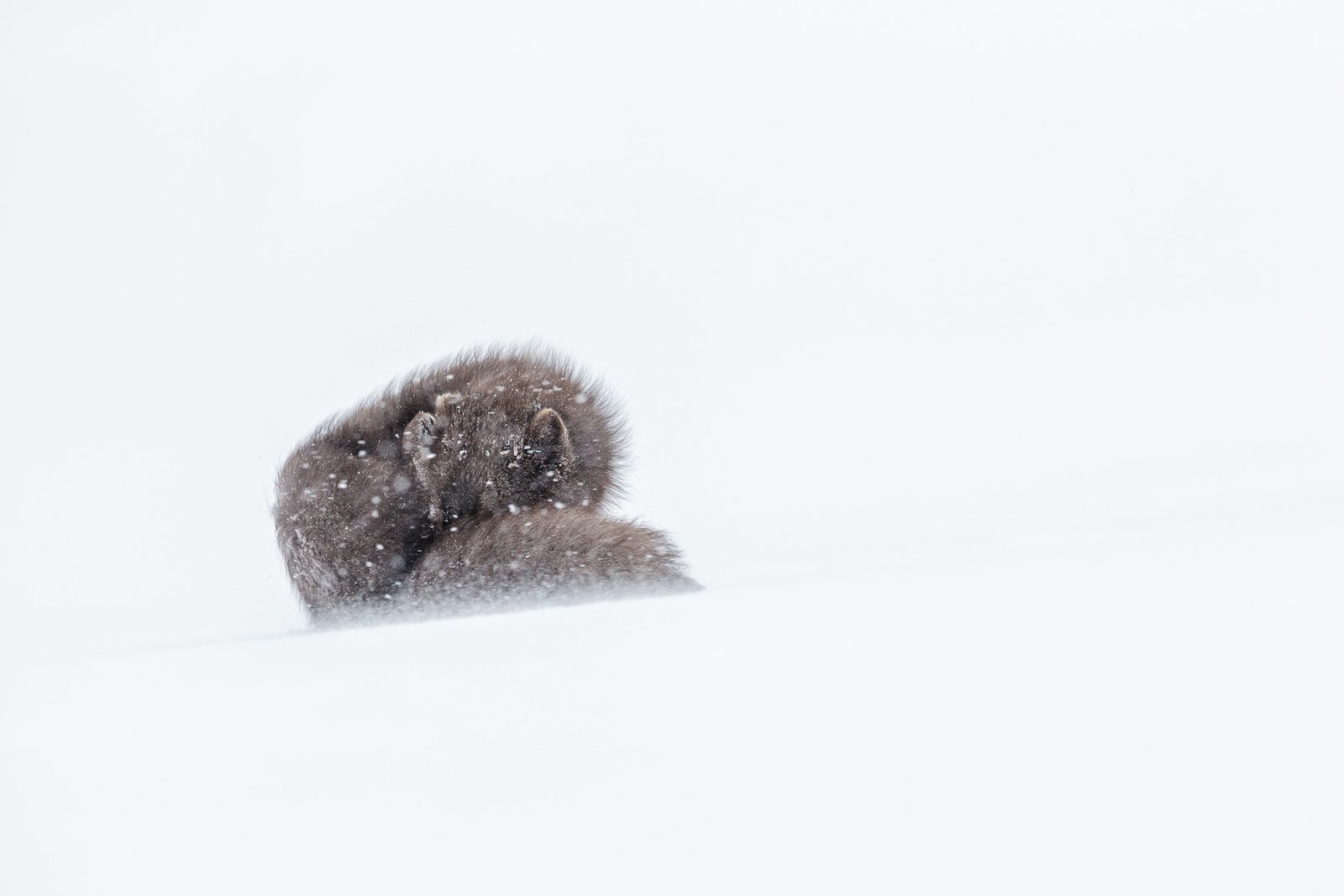
Arctic Fox Northern Iceland Winter Expedition Report
February 9th - February 14th, 2022
In early February of 2022, I ran and completed my winter expedition for Arctic fox in the far north of Iceland. This has been an annual wildlife workshop that I have been running for many sequential years now. Due to the COVID pandemic, however, I had not been able to return since early 2020 and missed 2021. It did feel absolutely wonderful to again return to this remote and rarely visited area of Iceland. The Hornstrandir Nature reserve is a very special place in winter that lives very deep in my heart.

Wolverines and Wolves of Northern Finland Workshop Report
October 14th - October 21st 2021
In mid-October of 2021, I wrapped up my Autumn workshop in the far north of Finland for Wolves, Bears, and Wolverines. This workshop was the first chance I had to travel out of Australia in more than eighteen months and the first chance to get back to leading and guiding workshops for Nature photographers since the pandemic began. It was a very welcome trip with a fantastic group of enthusiastic and passionate photographers. My last trip was my winter expedition to the east coast of Greenland back in March of 2020 (Read the Trip Report), and that expedition was unfortunately cut short by the pandemic. Since then, I have more or less been stuck in Australia, dealing with the logistical issues that come with delayed and postponed trips. Being in Finland again in the remote wilderness was an absolute breath of fresh air. Being able to share it with like-minded, passionate photographers was the icing on the cake.
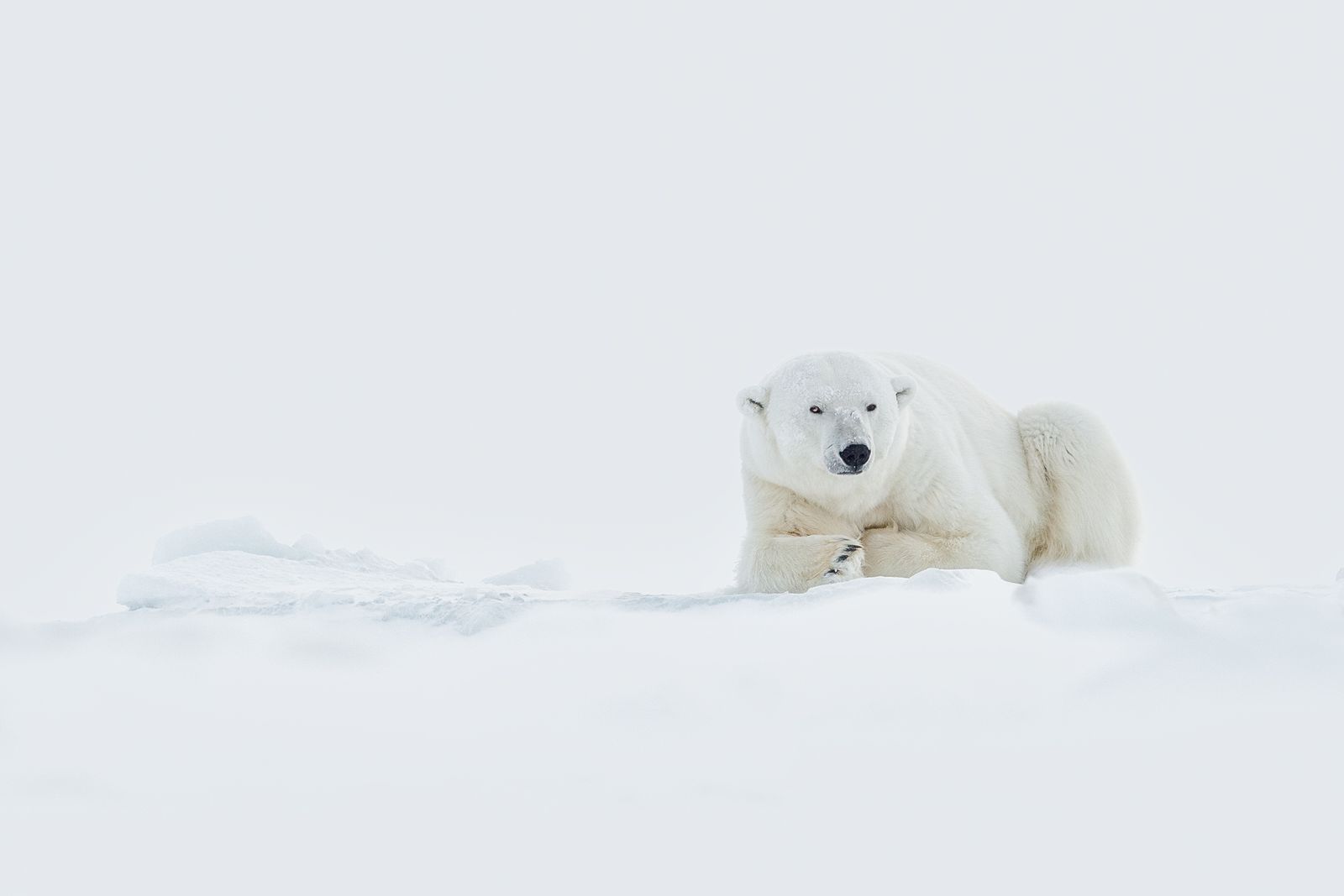
Musk Oxen and Polar Bears of East Greenland in Winter Expedition Report
March 12th - March 24th 2020
Forward: As a direct result of the COVID-19 Virus that spread rapidly across the world from Wuhan China in early 2020 both my Polar Bear and Musk Oxen expeditions were unfortunately cut short. Some of us did make it to Greenland before the country closed its borders to further inbound traffic and the time we had there during our expedition turned out to be an experience of both extreme highs and lows. What follows is the trip report for our experience during the expedition.
To date, and to my knowledge no one else has tried to mount a commercial operation to bring photographers to the East Coast of Greenland in Winter to try and photograph wild Polar Bears on the sea ice or Musk Oxen in Jameson land. I have done countless expeditions to the East-coast during Summer and Autumn, but this was the first time I have travelled to Greenland during the Winter months. There were many challenges with this scouting expedition - both logistical and political. Through my Iceland contacts I was able to put together the logistical pieces that made mounting the expedition possible, but the political challenges once on location proved more problematic than I had hoped and envisaged.
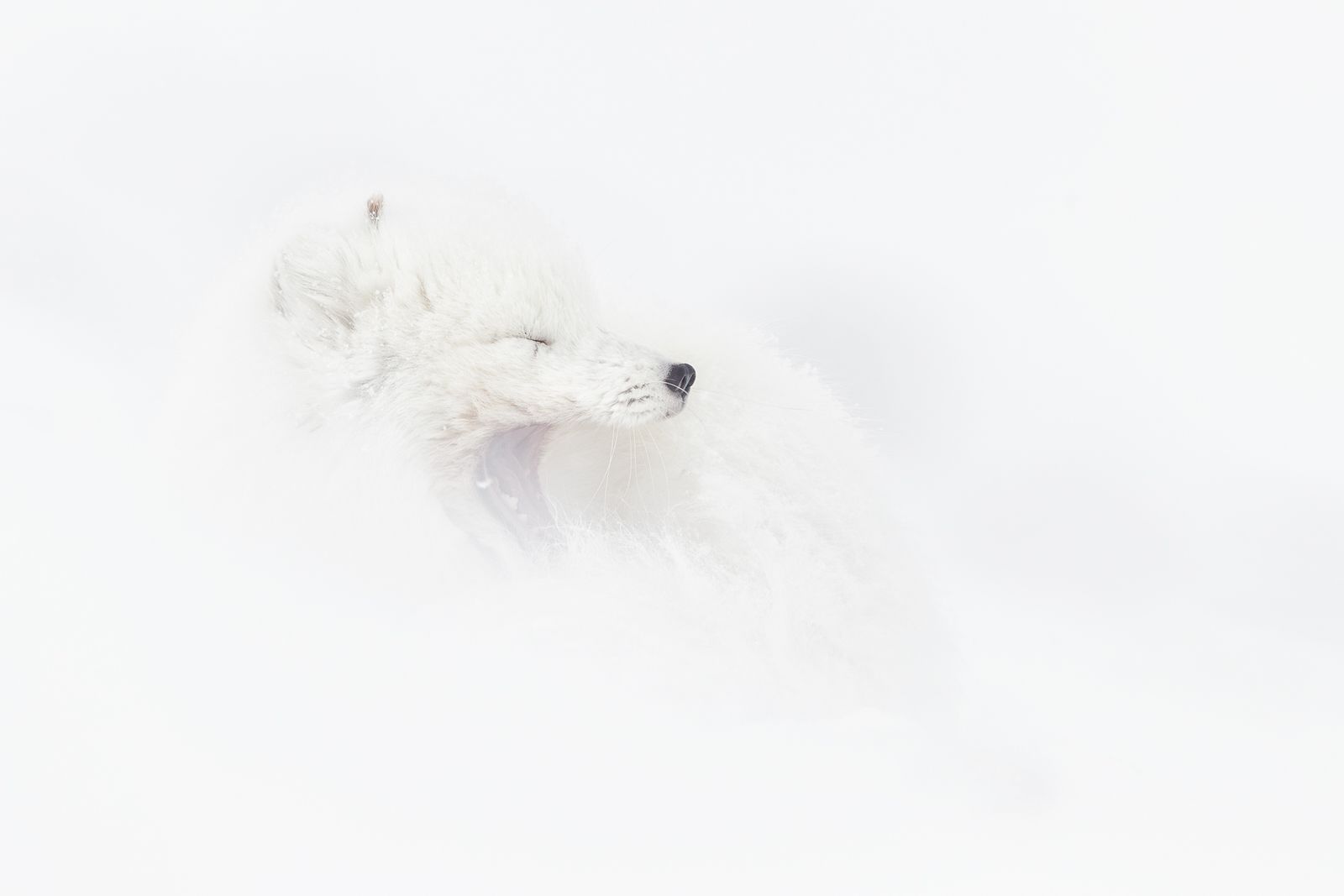
Arctic Fox Northern Iceland Winter Expedition Report
February 22nd - February 28th 2020
In February of 2020 I ran my annual workshop / expedition to Hornstrandir Nature reserve in the extreme north-west of Iceland for Arctic Fox. Winter has hit northern Iceland this year with its full force and for the first time in recent years there has been a huge amount of snow in the north with consistent wintery conditions. By contrast, recent years have seen warming temperatures and little snow so it was very nice to see the landscape blanketed in a beautiful white carpet of snow.
The conditions this year were in fact the best I can recall in recent years. Next years expedition is a couple of weeks earlier than this year which should promise similar conditions with deep, soft snow that makes for superb backgrounds for this tenacious little predator. Blizzard and blowing snow are my absolute favourite conditions to work in with Arctic wildlife and we experienced an abundance of this during our stay in the reserve
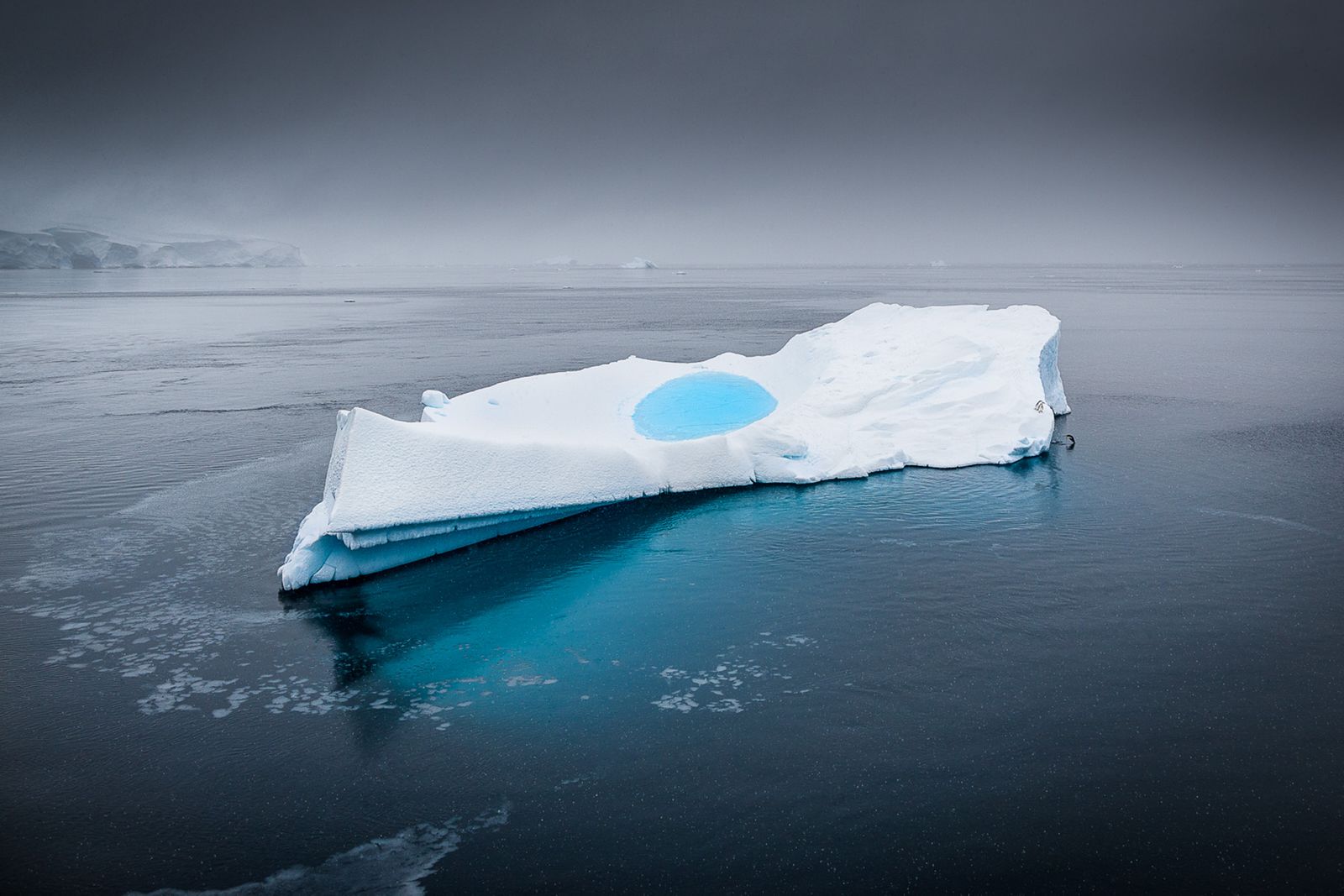
Antarctica the Ross Sea Expedition Report
January 10th - February 8th 2020
In January and early February of 2020 I guided a small group of photographers to the sub Antarctic Islands of New Zealand and Australia that included Enderby Island, MacQuarrie Island, Campbell Island and Snares Island on a twenty-eight day voyage that subsequently took us on a planned expedition deep into the southern reaches of the Ross Sea region of Antarctica. This unique itinerary also provided us with the opportunity to visit the historic hits of Scott and Shakelton. This expedition was a joint co-operation between my company Wild Nature Photo Travel and Heritage Expeditions from New Zealand.
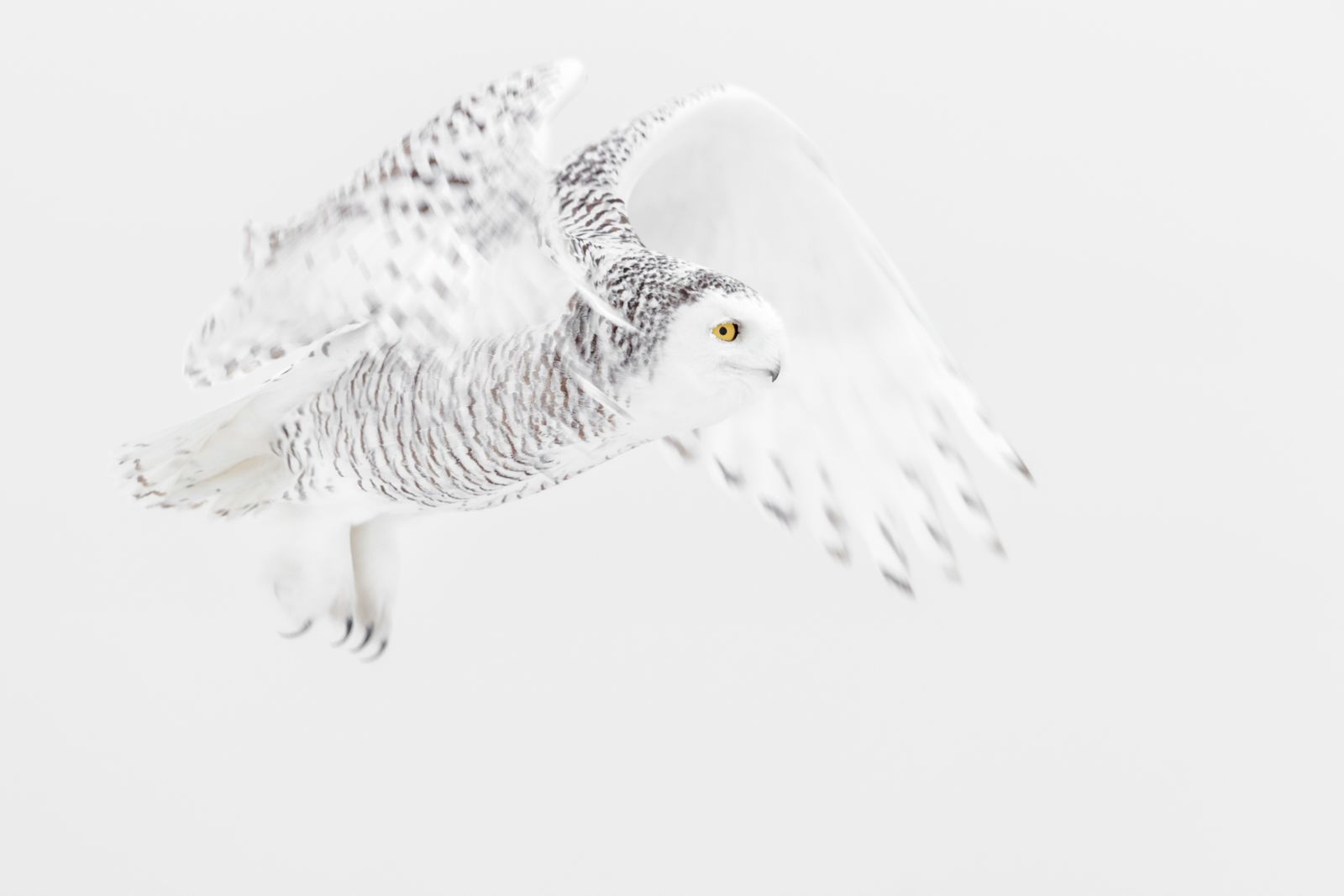
Snowy Owls of Northern Canada Workshop Report
December 30th - January 3rd 2020
In late December 2019 / early January 2020 I ran a photographic workshop for Snowy Owls in Ontario, Canada in winter. I had previously scouted this part of Canada and location back in January of 2019 (Read the Trip Report) and had found the owls to be of sufficient quantity to make it viable. Importantly, It was also a location where it was possible to get sufficiently close to the owls.
Two weeks prior to our workshop things were looking really promising for fantastic snow cover as there had been a good dump of snow to cover the local farmland in a white blanket. Unfortunately, temperatures warmed in the days prior to our arrival and by the time we were on site the snow had pretty much melted. As a result our first day was spent photographing the owls mostly in flight as we had no opportunity for static shots in snow.

Mongolia in Winter Pallas Cat Scouting Trip Report
November 17th - December 2nd 2019
In early December 2019 I returned home from my scouting trip to Eastern Mongolia in the depths of their frigid winter to try and photograph one of the worlds rarest, least known and most elusive wild cats – the Pallas cat. You can read my introduction to this project HERE. As it turned out, I discovered whilst on this shoot that the local Nature and Wildlife photographers in Mongolia and most of Asia regard the Pallas Cat as much harder to find and photograph than the enigmatic and iconic Snow Leopard. So much for my planning and research. Fate it seems is not without a sense of irony…
t is important to clarify, that this scouting trip was not a precursor to a future workshop. Put simply, the Pallas cat is just too elusive, too shy and too hard to find to be able to reliably run even a small group workshop for this amazing animal. On top of this, the lack of basic infrastructure such as running water, flushing toilets, hot showers and the requirement to tent camp in temperatures between -40C and -15C in the middle of a very remote location mean that it is an exceptionally tough environment in which to work. The only heat I had during my time in the field was provided by burning coal in a small fire stove in my tent. It was, without doubt, the toughest shoot I have personally undertaken.
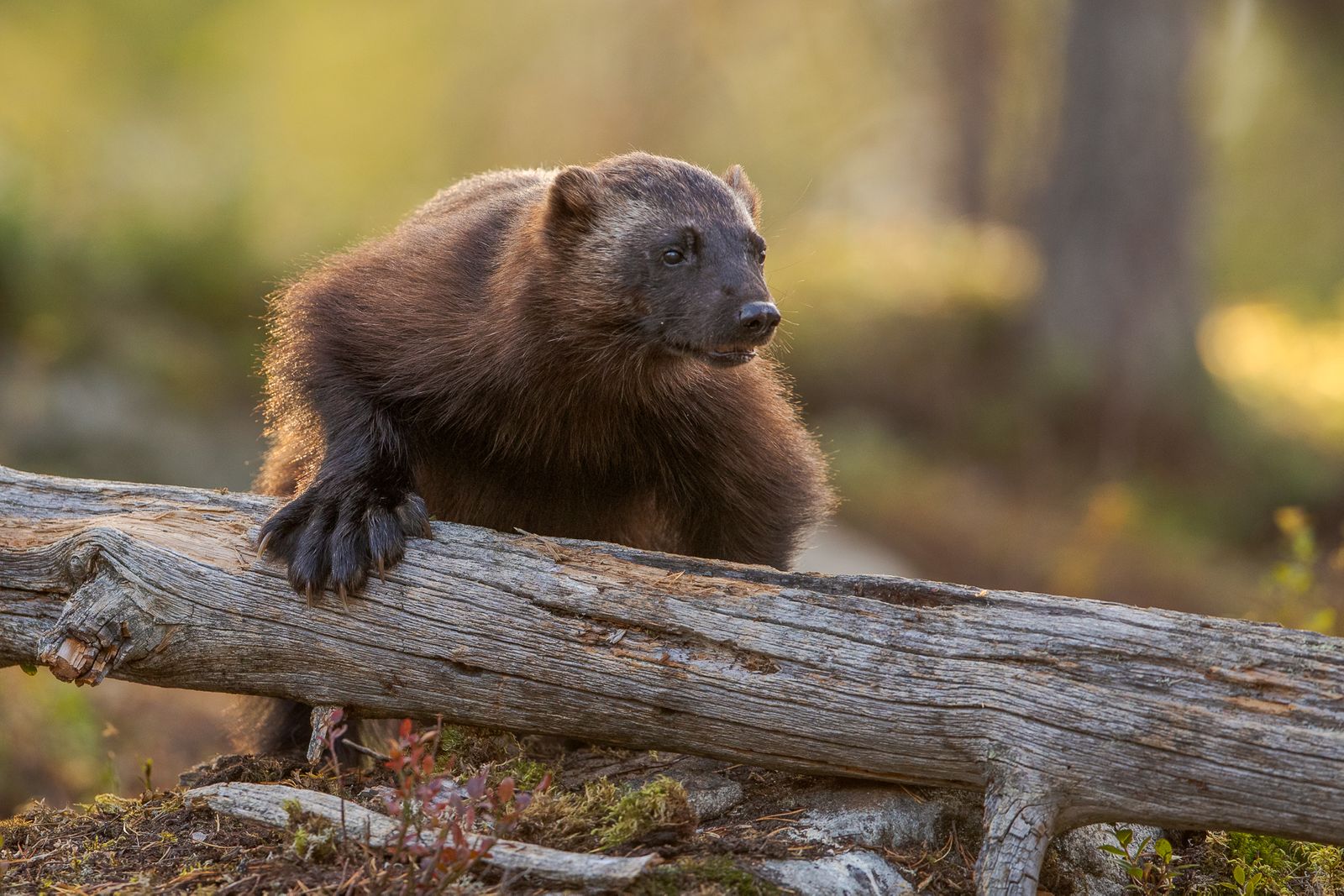
Wolverines and Wolves of Northern Finland Report
October 1st - October 7th 2019
In October of 2019 I lead a dedicated wildlife workshop to the northern region of Kajaani in Finland. This workshop was dedicated to the photography of Wolves, Wolverines and Bears. I arrived a week early to pre-scout many of the locations I wanted us to try to photograph in order to ascertain which hides (and in what locations) were having the most activity and at what time of the day. By pre scouting I ensured we had the best possible opportunities with the most action for our time in this beautiful part of Finland. This was well worth the effort and time as everyone who participated in this trip came away with a spectacular portfolio of photographs.
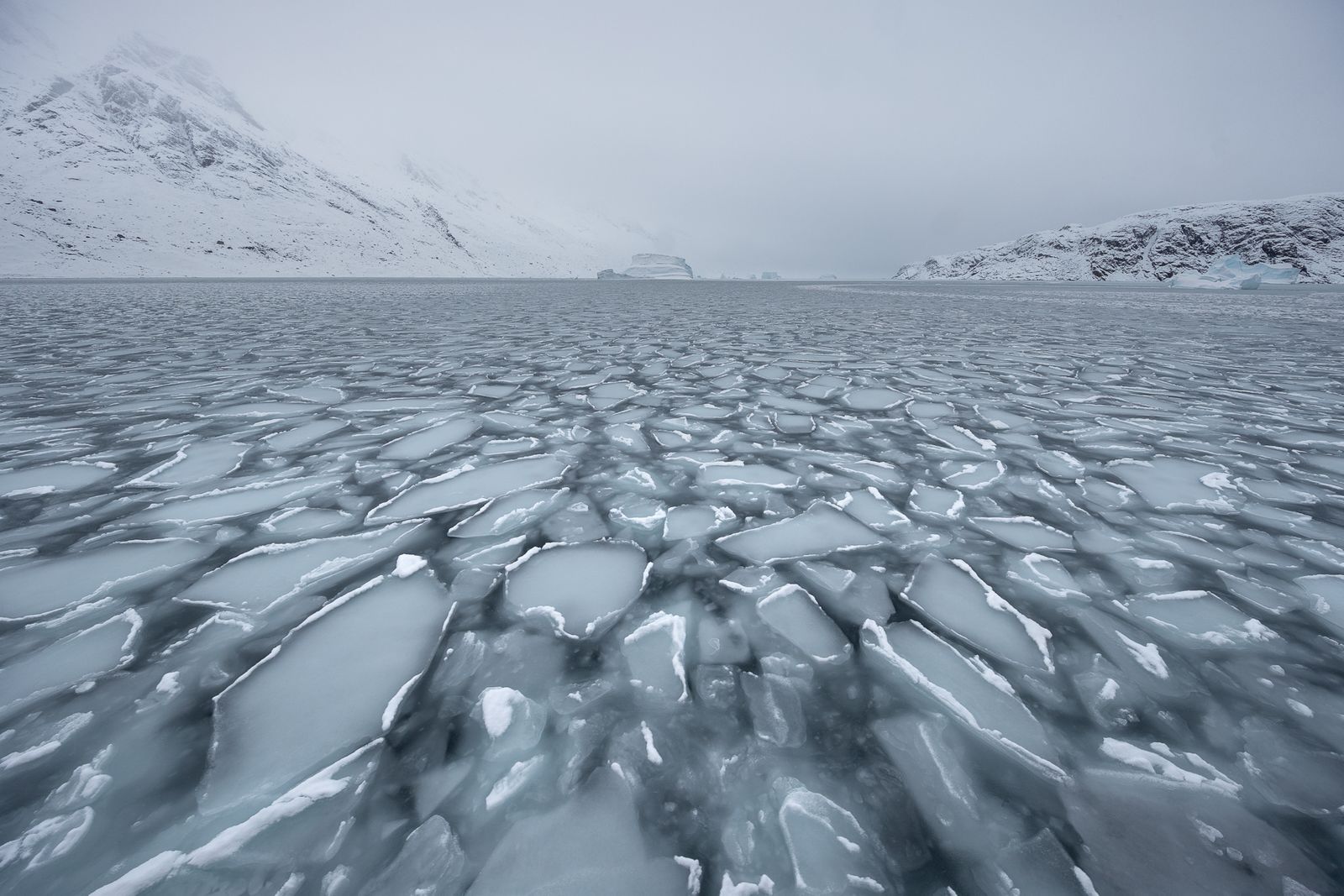
Wild Greenland East Coast Scoresby Sund Expeditions
September 4th - September 11th & September 11th - September 18th 2019
In September of 2019 I ran two back-to-back expeditions to Scoresby Sound and the East Coast of Greenland with long time friend and fellow pro-photographer (Or as he prefers – the ‘Bus Driver’) Daniel Bergmann. For these two expeditions we flew by private charter flight from Reykjavik in Iceland to Constable Point on the East Coast of Greenland where we boarded our sailing ship, the Donna Wood. Flying across the Denmark Strait (the body of water between Iceland and Greenland) saves at least two days of sailing in both directions and gave us more time for photography in the field.
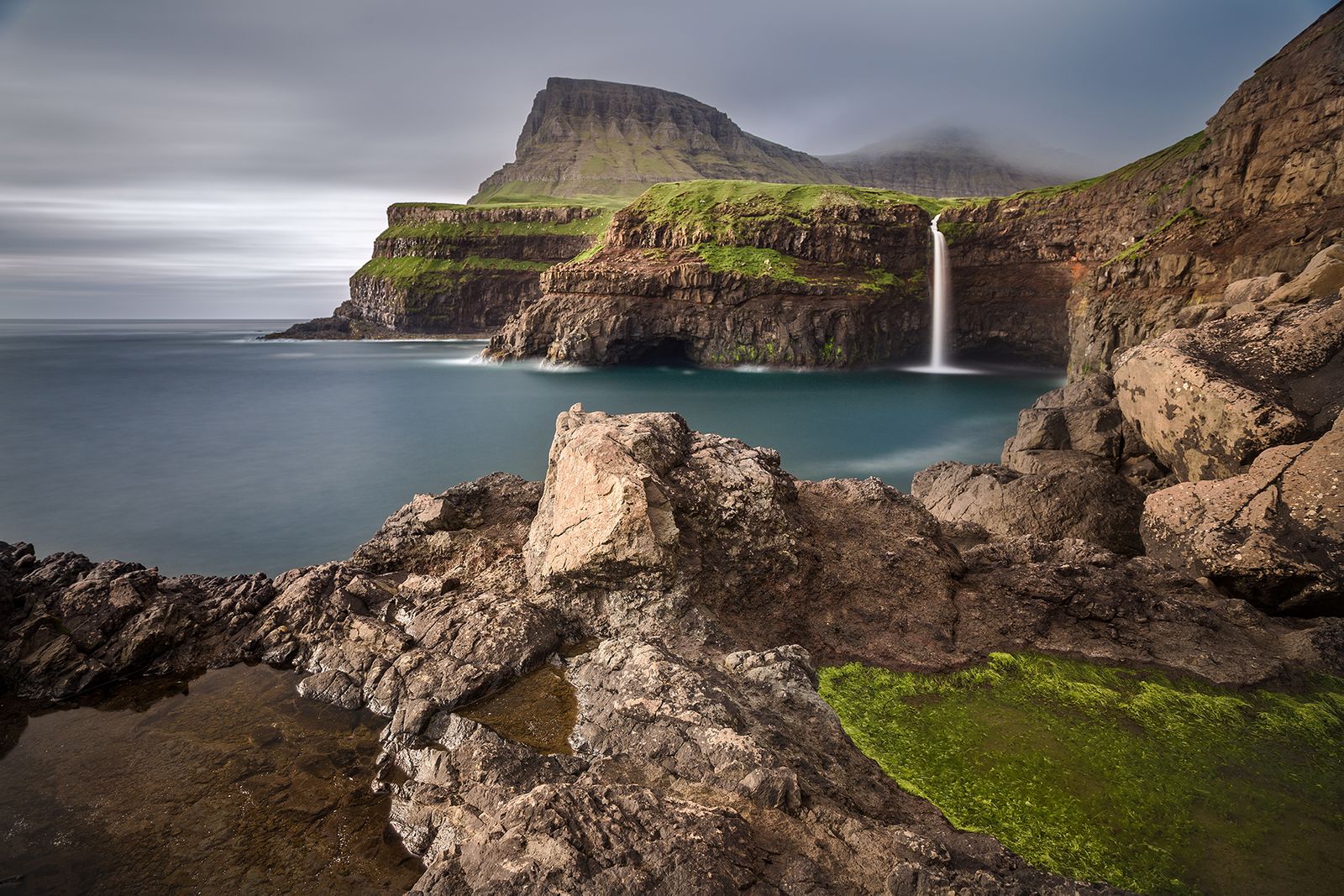
Mystical Faroe Islands Report
August 8th - August 16th 2019
In August of 2019 I led my first landscape workshop to the Faroe Islands; a series of remote islands south of Iceland (north of Scotland) that offer some of the most rugged and beautiful sea cliffs I have been fortunate to experience and photograph. The Faroe islands archipelago is actually an autonomous country of the kingdom of Denmark. The islands cover a total area of approximately 1,400 square kilometres with a population of just 52,000 people. The climate is sub polar oceanic and such the weather is renowned as wet, windy, cloudy and cool (not what we experienced). Temperatures average above freezing because of the islands location in the Gulf Stream.

Svalbard The High Arctic Expedition
July 13th - July 22nd 2019
This July 2019 I lead my annual expedition around the northern archipelago of Svalbard in search of Polar Bears, Walrus, Arctic Wildlife and of course breathtaking Arctic landscapes. I have been leading photographic expeditions to Svalbard and the Arctic for a decade now and I never tire of returning to this incredible part of the world. Glaciers, mountains, Arctic Tundra, Polar Bears and other Arctic species are just a part of the attraction. There is something quite surreal and unique about the Arctic. The landscape speaks to me on a very personal and intimate level and I am awed by the sheer majesty and power of the mighty Polar Bear and the outright tenacity and ability of the Arctic fox to survive and thrive in such a harsh environment. This incredibly fragile region of our planet is a photographers paradise and never ceases to disappoint. Every expedition to this precious environment is both unique and special and this trip was no exception.
July is a wonderful time to visit the high Arctic. The midnight sun blesses the region with twenty fours of summer daylight; doubling the amount of time one normally finds available for photography. The normally dark nocturnal hours are a wonderful time to photograph this time of year with soft light that bathes the landscape in a gentle golden glow. This year we encountered little in the way of fog and had fantastic visibility almost the entire expedition. It is always my preference to try and photograph at night when the light is at its softest and we spent much of our time on this trip working early in the morning.

Van Diemens Land Tasmania and Great Ocean Road Landscapes II
June 1st - June 12th 2019
In May and June of 2019 I lead two back-to-back landscape workshops to the Great Ocean road region of Victoria and both the East and West coasts of Tasmania with my co-leader and friend Phillip Bartlett. Both of these workshops were structured to provide outstanding and varied opportunities for landscape photography as well as the opportunity to see and experience the wild coastal region of the Great Ocean Road and World Heritage Wilderness areas of Tasmania. Both of these locations offer world class landscape opportunities, yet both remain relatively unknown on the world stage (at least for now). We planned to not only photograph the fantastically varied landscape of these two locations, but also enjoy the fantastic fresh food and produce both of these locations are well known for.
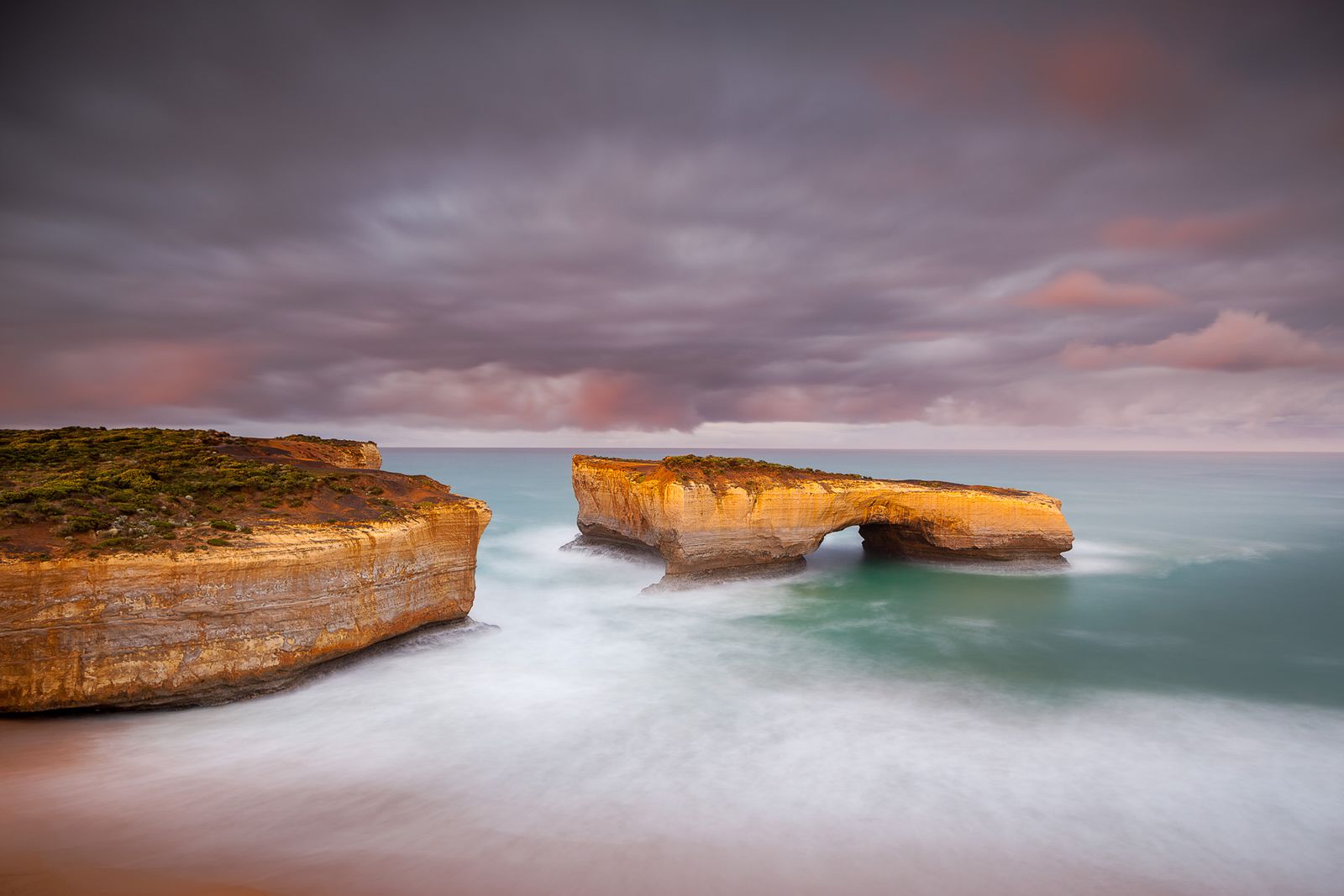
Van Diemens Land Tasmania and Great Ocean Road Landscapes
May 10th - May 21st 2019
In May and June of 2019 I lead two back-to-back landscape workshops to the Great Ocean road region of Victoria and both the East and West coasts of Tasmania with my co-leader and friend Phillip Bartlett. Both of these workshops were structured to provide outstanding and varied opportunities for landscape photography as well as the opportunity to see and experience the wild coastal region of the Great Ocean Road and World Heritage Wilderness areas of Tasmania. Both of these locations offer world class landscape opportunities, yet both remain relatively unknown on the world stage (at least for now). We planned to not only photograph the fantastically varied landscape of these two locations, but also enjoy the fantastic fresh food and produce both of these locations are well known for.
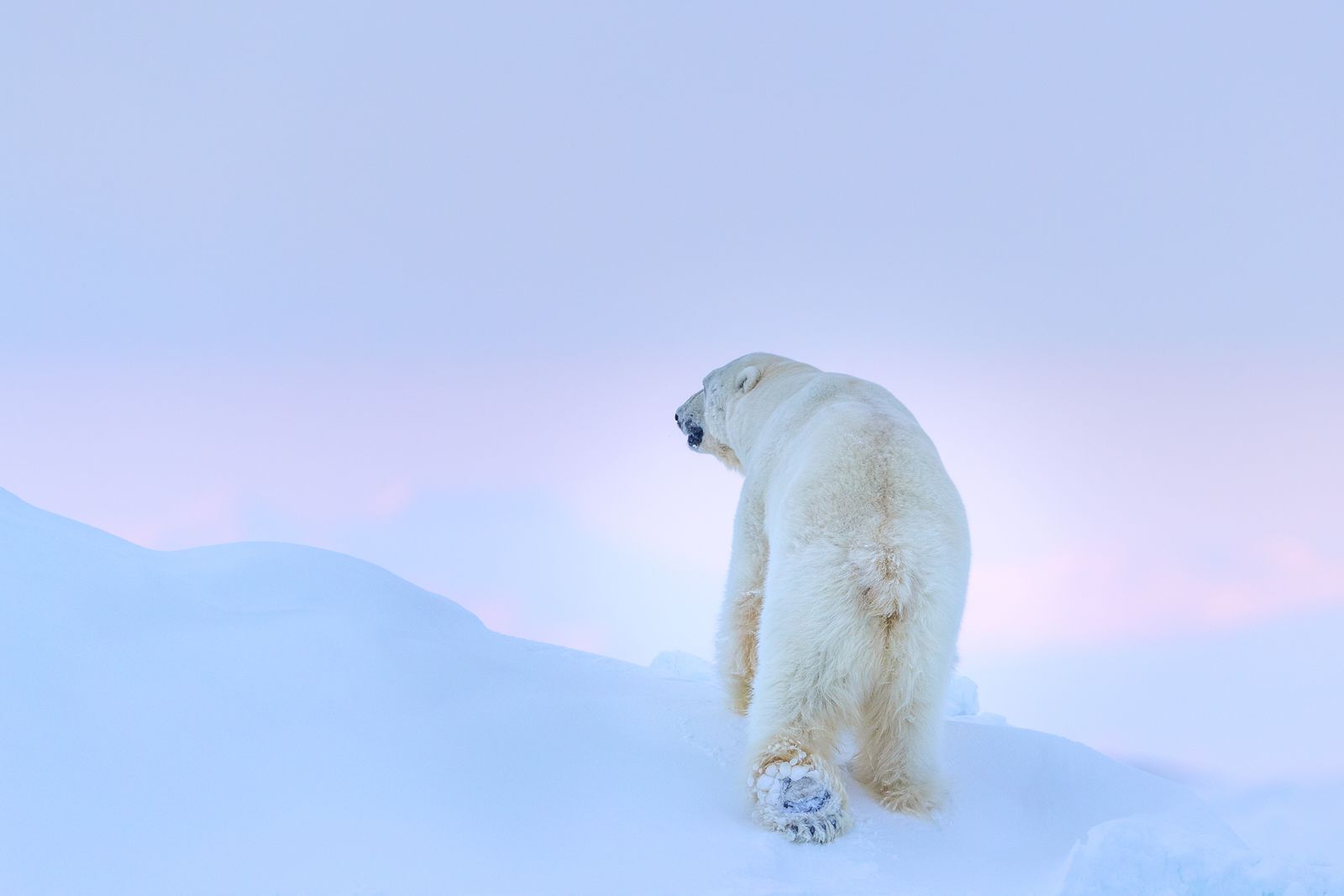
Svalbard the Frozen Arctic in Winter Expedition Report
March 26th - April 3rd 2019
In March and early April of 2019 I lead my annual winter expedition by ship in the Svalbard archipelago in search of wildlife and frozen landscapes. As I have written recently before, Winter has become my favourite time of year to visit Svalbard. The low angle of sun, snow and ice covered landscape draped with stunning ethereal light make for wonderful photographic opportunities and unlimited potential. Of course, winter also brings with it an increased chance in inclement weather which can present a different set of challenges to summer expeditions when the weather is typically more stable. For those that are willing to brave the elements of a winter trip the rewards can be truly outstanding.
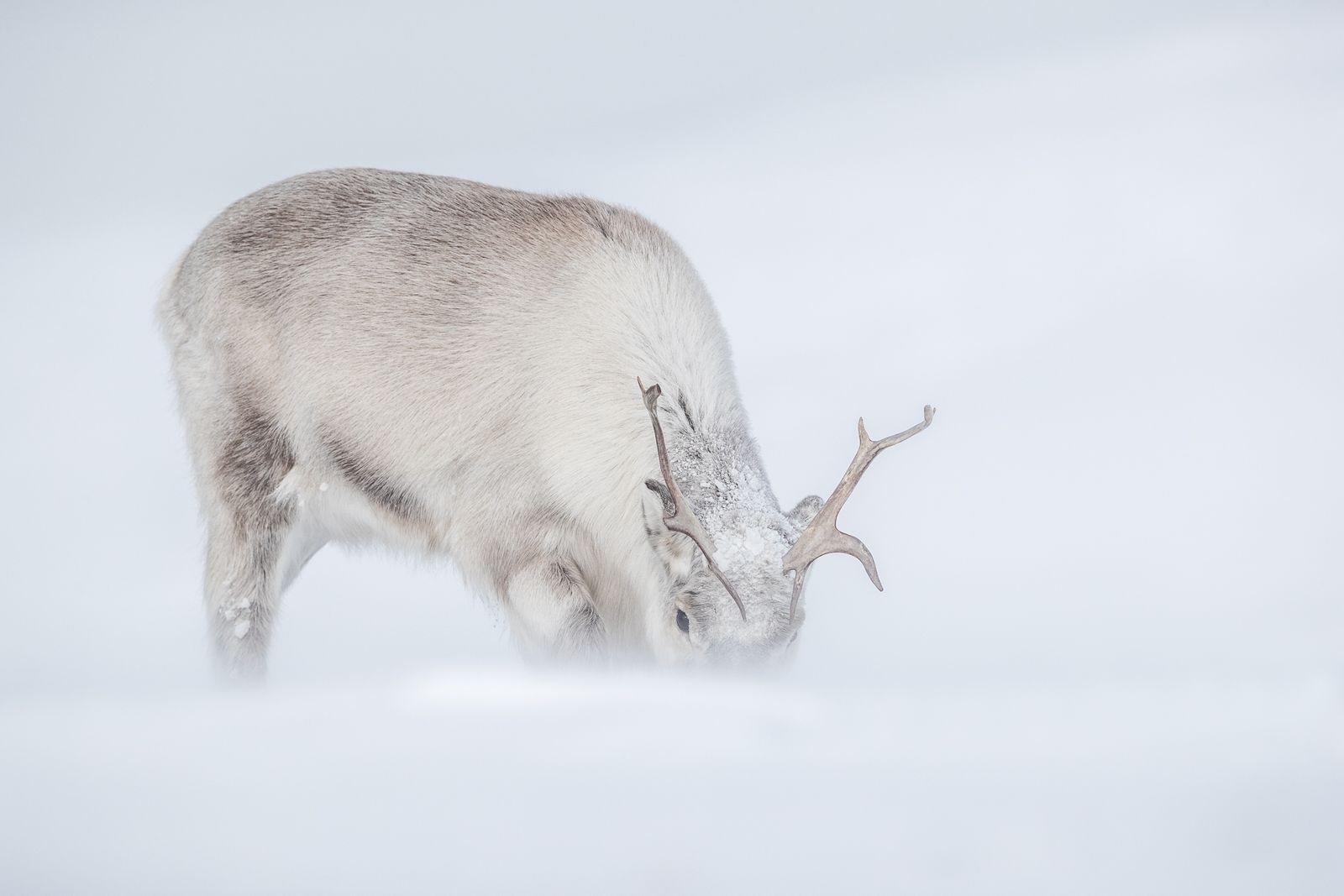
Svalbard by Snow Mobile in Winter Expedition Report
March 11th - March 15th 2019 & March 18th - March 23rd 2019
In March of 2019 I lead two back-to-back small group expeditions via snowmobile in Svalbard in search of winter landscapes, Arctic Fox, Reindeer and the mighty Polar Bear. I have been exploring Svalbard by snowmobile in winter for quite a few years now and have to come to absolutely love both the intimacy and solitude of being out in the freezing winter and at one with Nature and the incredible wildlife that survives in this hostile environment. The Arctic in winter is truly another world and for those that are willing to make the effort, and brave the elements the rewards are simply life-changing.
The weather during our expeditions was generally superb with cold clear days that were on the whole predominantly wind free. Only on few occasions did we experience true white out conditions whilst crossing some of the glaciers of Svalbard. Conditions can vary wildly and quickly in the Arctic in Winter. It is almost a given that one will loose a day or two to bad weather during any winter expedition. I am pleased to say though that at no time did we loose any time to weather during either of the two expeditions. In fact, we were able on several occasions to take advantage of weather to really enhance the mood and drama of our photographs. Blowing snow is a wonderful addition to any winter wildlife photograph and we took advantage of it whenever the prevailing conditions allowed. The white on white canvas of the Arctic in winter in near white-out conditions is highly fertile material for simple, powerful and emotive photography.
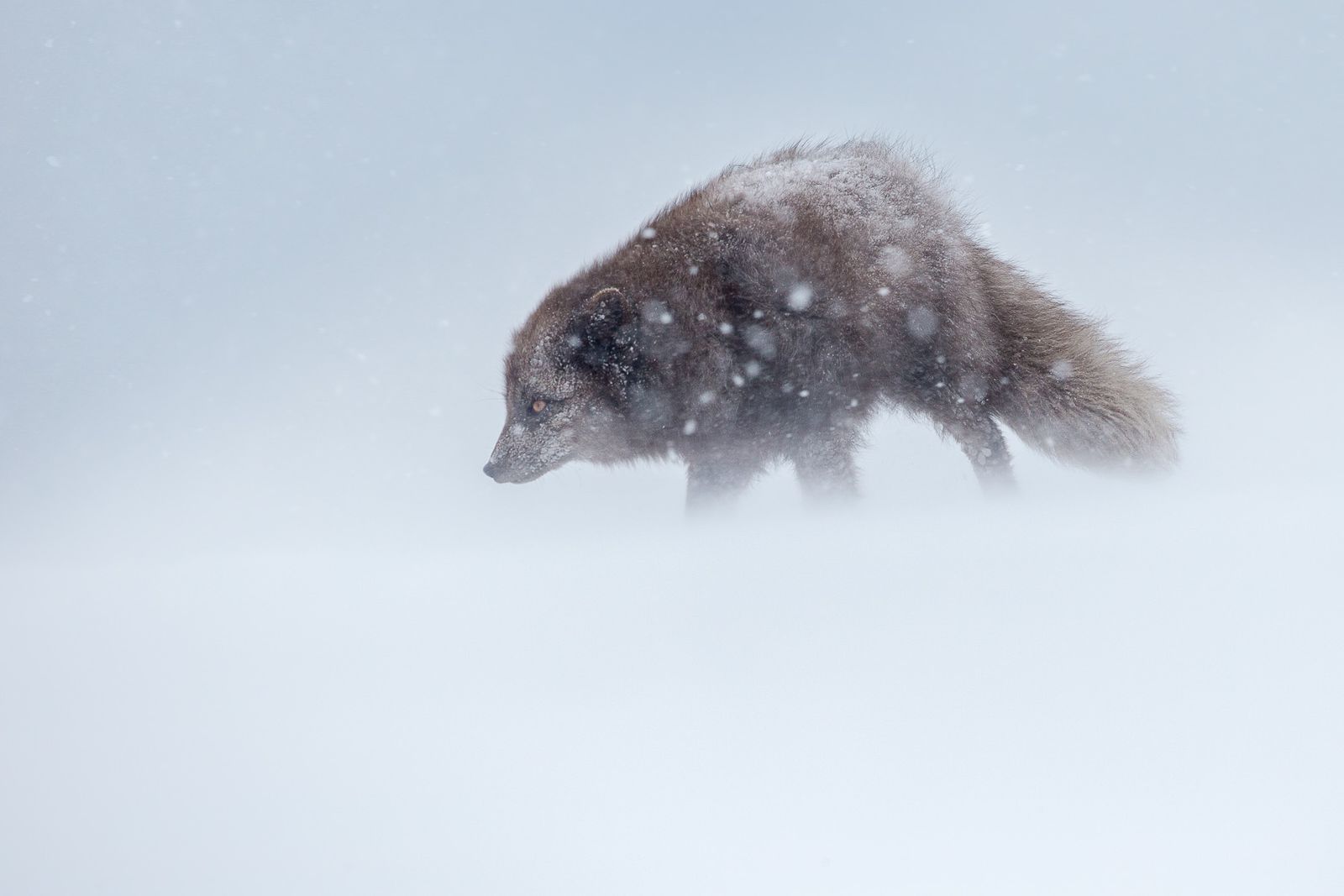
Arctic Fox Northern Iceland Expedition Report
February 22nd - February 28th 2019
In February of 2019 I lead my annual expedition to the remote Hornstrandir Nature reserve in the far north west of Iceland to photograph Arctic Fox in winter. I have been travelling and photographing Arctic Fox in this part of Iceland for many years now and it never ceases to be any less exciting or wonderful. Being in a beautiful and spectacular remote location in the depths of winter, surrounded by wild Arctic Fox is quite literally a wildlife photographers nirvana.
This year we were extremely fortunate to encounter a total of six individual foxes including five blue morphs and one white morph (although the white morph was at a distance). Even more exciting was that we experienced and photographed some truly superb interactions and behaviour between the foxes as they went about their daily lives. This year, perhaps more than any other, we had the opportunity to catch the foxes fighting and squabbling amongst themselves.
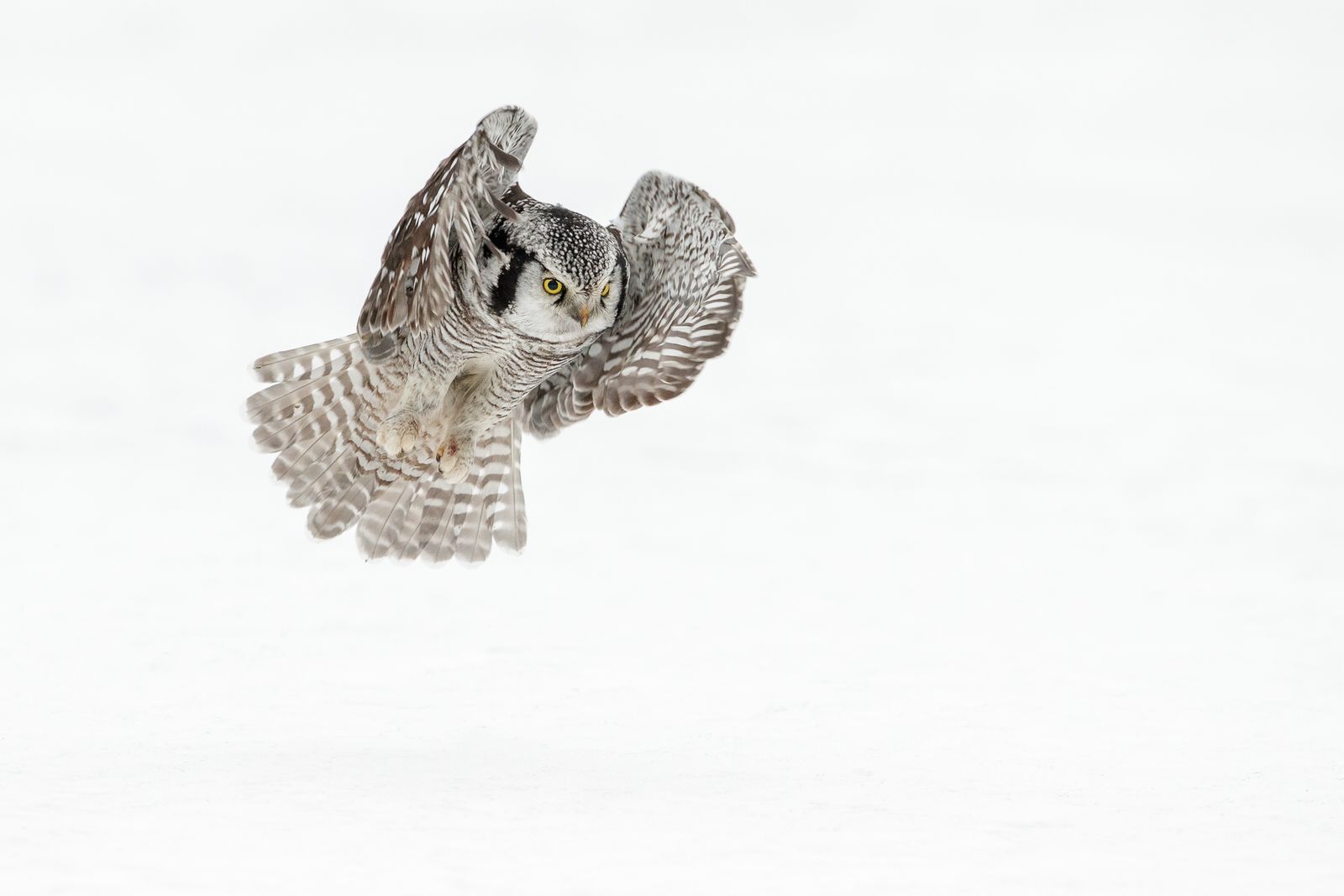
Frozen Finland in Winter Workshop Report
February 1st - February 10th 2019
In early February of 2019 I lead a new winter wildlife and landscape safari to the North of Finland in search of both its amazing wildlife and spectacular snow and ice covered landscapes. Finland is well known for both its amazing winter trees and fantastic wildlife that includes Wolves, Wolverine, Eagles, Owls, Reindeer and a great many Arctic and sub-sub-arctic bird species. It should also be said that winter in Finland whilst cold, is absolutely incredible and well worth the frozen fingers and toes.
Our intention on this safari was to try and photograph winter wildlife as well as take advantage of the snow and ice covered landscape . Northern Finland is blanketed in snow more than six months of the year which means the forests are draped in a wonderful layer of frozen snow and ice. It is truly other worldly and makes for beautiful and surreal photographs.

Snowy Owls of Canada Winter Scouting Trip Report
January 20th - January 26th 2019
In January of 2019 I travelled to northern Canada to scout a new trip to photograph Snowy Owls in winter. This was actually my first time to Canada (although I am returning later this year in late December) and I thoroughly enjoyed the winter experience. I managed to time my experience in Canada jut about perfectly as it coincided with a severe cold snap of weather that provided some wonderful opportunities (albeit in very cold conditions).
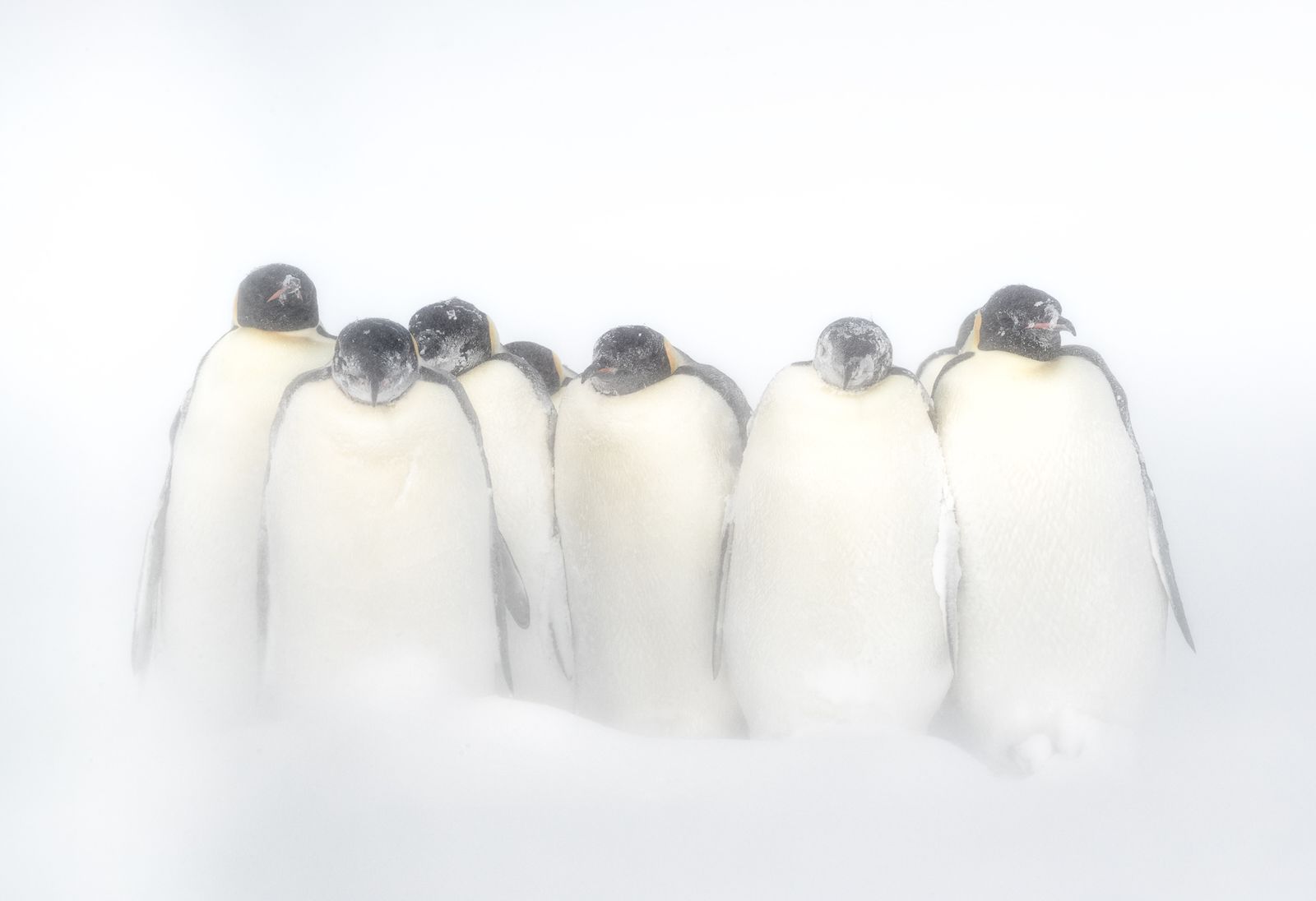
Emperor Penguin Expedition Report
November 18th - November 26th 2018
In November of 2018 I lead an expedition for a small group of photographers to the frozen sea ice of Gould Bay in Antarctica to camp with and photograph Emperor Penguins. The colony at Gould Bay is actually the most southerly Emperor Penguin colony in Antarctica and is also one of, if not the most, difficult colonies to reach. This was my third expedition to this remote region of Antarctica and it proved extremely productive. This was also the first time I have been able to properly explore and photograph one of Antarctica’s dry valleys - a location not far from Union Glacier known as the Elephants Head.
There are plenty of species the world over that are much harder to find than Emperor Penguins. To my knowledge however, none is as difficult or as expensive to reach as the Emperor Penguin; and thats the conundrum of Emperor Penguin photography. We know exactly where they are located, we just cant get to them without great difficulty and significant expense. Living on the sea ice in remote and difficult to reach areas of Antarctica the Emperor Penguin is therefore as difficult to reach as the enigmatic snow leopard is to locate in the wilds of its mountainous territories. It is an odd problem for wildlife photographers to recognise and accept that we know exactly where our subject is located but that we just cant get to it.

Namibia Desert Fire Safari Report
October 6th - October 18th 2018
In October of 2018 this year I lead my semi-annual landscape and wildlife workshop to Namibia in Africa. This was my fourth workshop to the desert of Namibia and the first time I had ventured north into the wildlife rich region of Etosha.
It was also the first time I have scheduled this workshop for October (instead of April / May when there is often more cloud). October was a deliberate choice for this safari as it is the end of the dry season in Etosha. Water is at its most scarce and the wildlife is thus forced to congregate around the last few remaining watering holes whilst they wait for the rains and the start of the wet season. It can be very hot this time year but I personally found it no worse than April / May and as it turned out we had the added bonus of clouds during our morning sessions at Deadvlei.
We began our workshop in the capital city of Windhoek with a short one hour flight down to the coastal town of Luderitz where we spent the next three days photographing the Ghost town of Kolmonskop and the abandoned diamond mine at Elizabeth Bay. For 2018 I made the decision to fly the group from Windhoek down to Luderitz to save two days driving in the heat of the desert. This gave us more time for photography during our trip and saved many hours on the hot and dusty roads. The short one hour flight also gave us some absolutely spectacular aerial views of the landscape.
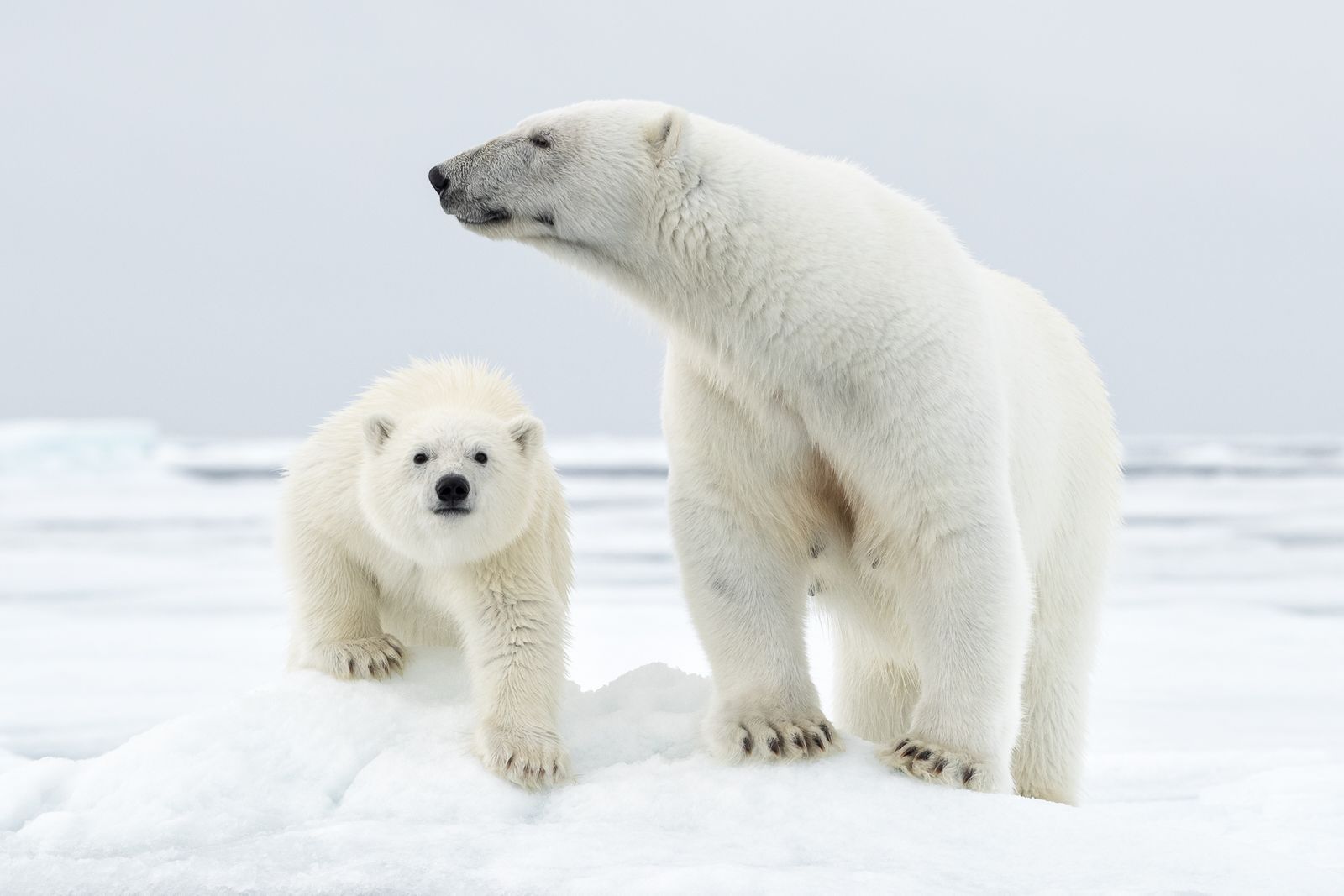
Polar Bears of Svalbard Expedition Report
July 25th - August 4th, 2018
This July and August 2018 I lead my annual expedition north of Svalbard in search of Polar Bears, Walrus, Arctic Fox and of course spectacular Arctic landscapes – Polar Bears of Svalbard. With our small group of just twelve photographers and our ice hardened expedition class ship we were perfectly prepared for ten days of Arctic photography under the midnight sun (it turned out to be an absolute gem of an expedition). July and August are just a fantastic time of the year to visit Svalbard. With twenty four hours of daylight (the sun never sets this time of year) the opportunities for photography are literally non-stop and we took advantage on many occasions to photograph late into the evening and early hours of the morning. Working late into the night (when the sun is still low in the sky) not only extends the amount of time available for photography but it also offers the opportunity to work in a variety of lighting conditions. Typically late evening and early morning provide the softest light in Svalbard this time of year. With the option of working through the night we also have the luxury of being able to choose the best time of day or night to photograph in a given location.
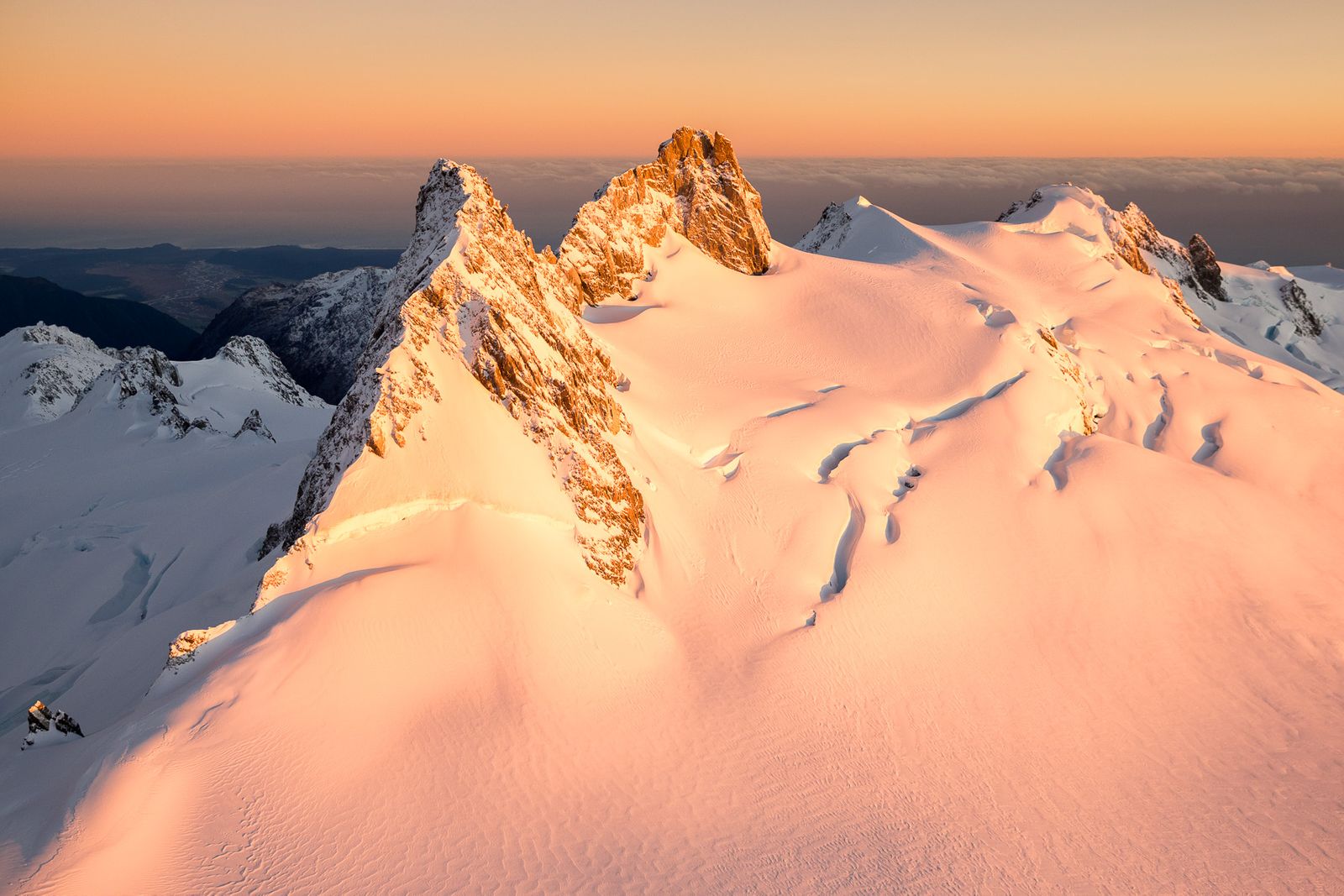
New Zealand South Island Masterclass Workshop Report
April 30th - May 11th, 2018
This years Masterclass workshop report is going to be a departure from previous years reports (its also my last New Zealand South Island Masterclass for the next few years). Rather than write my own report I am instead going to publish the report from Sebastien who documented our Masterclass on a day-by-day basis. My sincere thanks to all who participated on this workshop with extra special thanks to Sebastien for allowing me to post a summary of his report here. Be sure to check out his full report (including videos) and more of his photography from our workshop on his website HERE.
New Zealand South Island Masterclass Workshop
I’ve experienced a once in-a-life time photo expedition to New Zealand. This has been a dream come true and thus, I decided to document every location and photo session to share with everyone what this beautiful country has to offer. Every day, I made three to four minute-videos for each day.
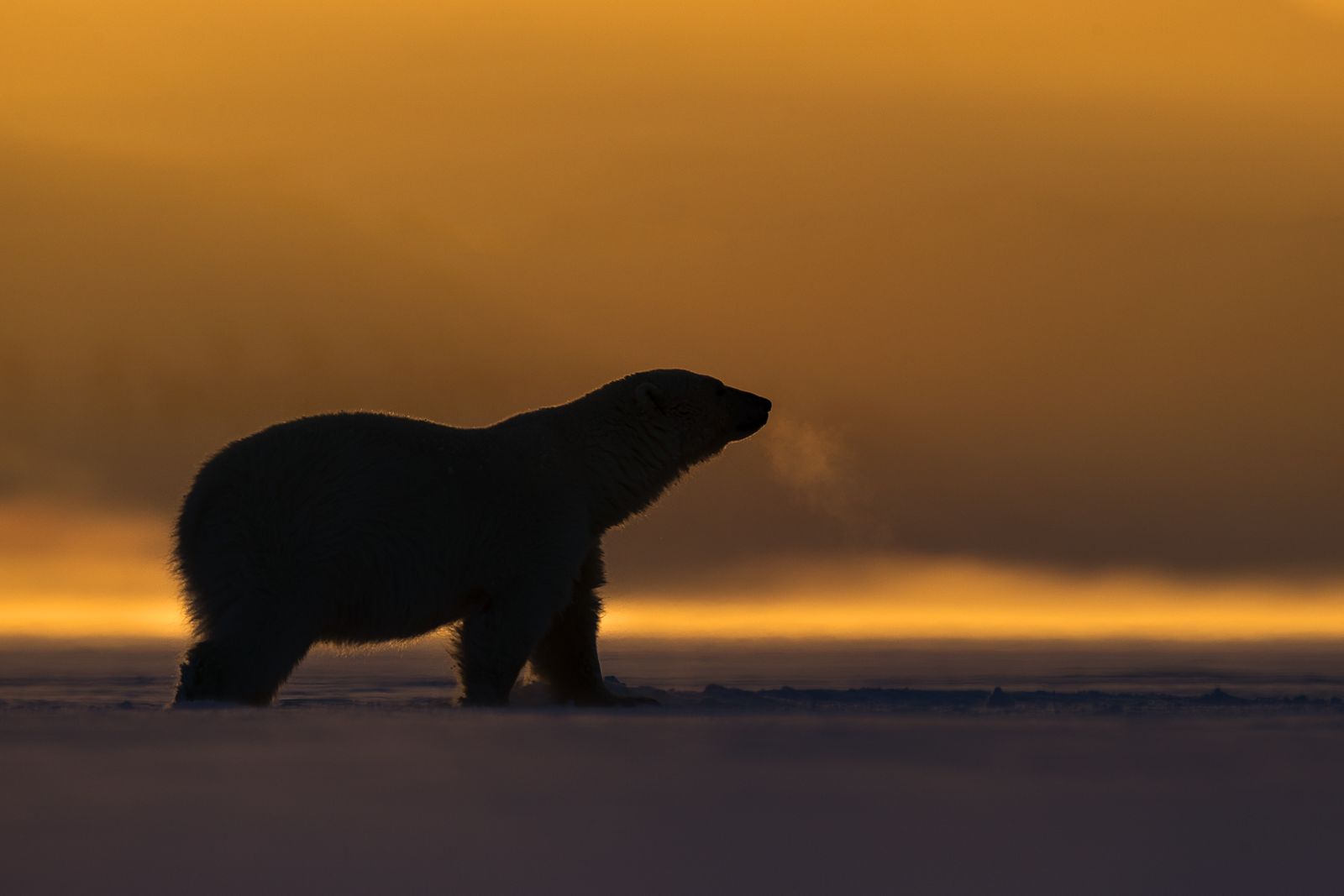
Arctic Winter Polar Bears Expedition Report
March 26 - April 3, 2018
In late March this year (2018) I lead my second ship based expedition to Svalbard in Winter to photograph the wildlife and arctic landscapes of this remote archipelago in a winter setting. The primary reason for choosing late March was at this time of the year (and at this latitude of nearly 80º North) the sun is very low in the sky all day and thus there is hours of golden light available for photography. Dawn and twilight light at this time of year typically last three or more hours and even at midday the sun is still very low in the sky. This situation provides hours and hours of superb light for photography. There is also something about the quality of light in winter at this latitude that translates very well into photographs. The light is soft and ethereal and often has wonderful pink and blue pastel shades not found at other times of the year. For the landscape photographer this combination of light, snow and ice is simply unmatched in my experience.
This expedition was for just twelve photographers and utilised the same ice-hardened expedition class ship I have been using for Polar Bear photography over recent years. Amongst the twelve photographers was my surprise special guest for the expedition – French wildlife photographer Vincent Munier. It was an absolute pleasure to host Vincent for this expedition and on a personal note, it was a thrill for me to photograph the wildlife and landscape of Svalbard together (in particular the evening we spent photographing the full moon rising over the snow caped mountains). Our wildlife count for the trip included five Polar Bears, three Arctic fox, seven Walrus, seven Ivory Gulls plus a plethora of Reindeer and other sea birds.
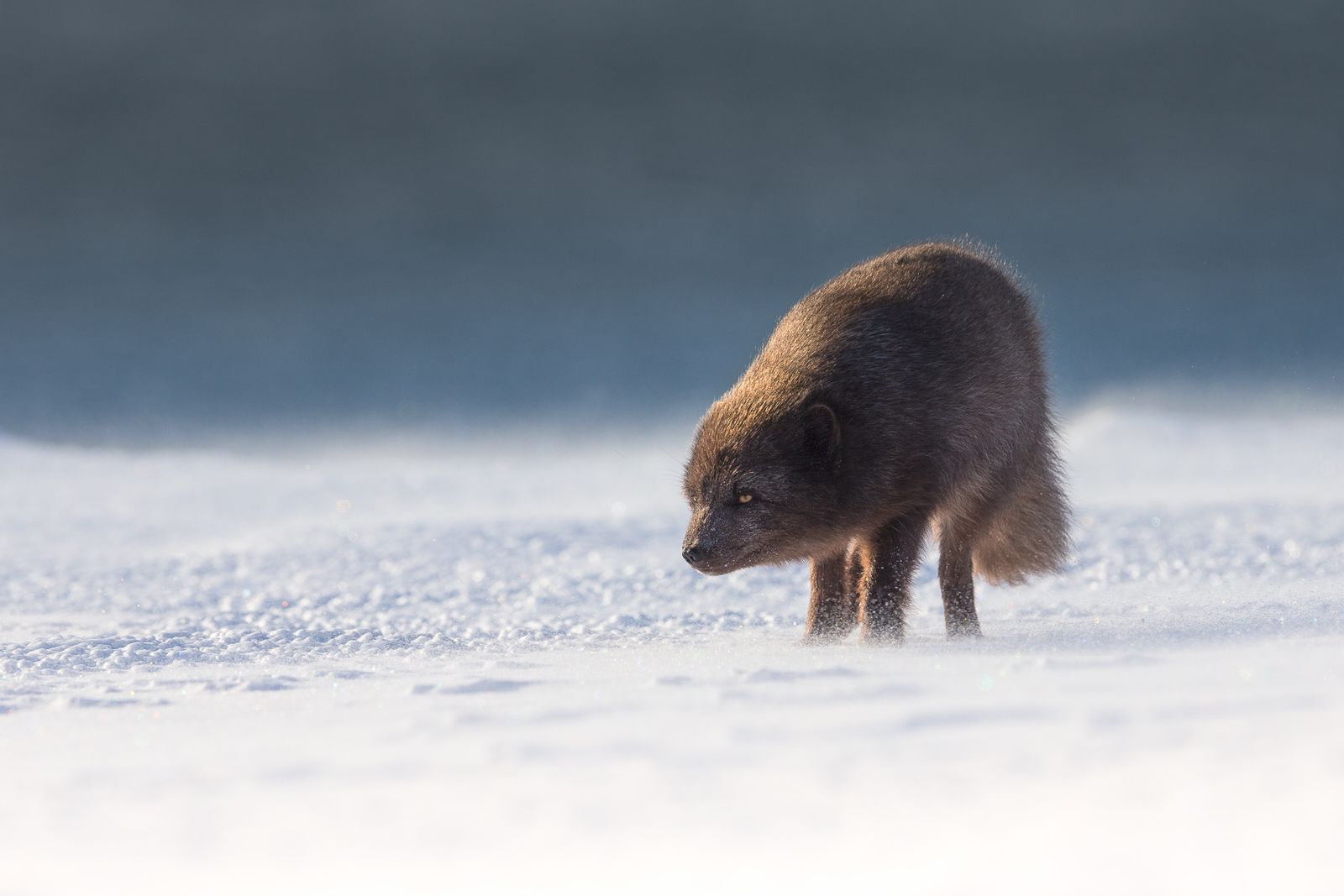
Iceland Winter Foxes Expedition Report
February 22 - March 1, 2018
In February 2018 I lead my special small group expedition to the extreme north west of Iceland for a group of just five photographers to photograph what is perhaps Nature’s greatest survivor: Vulpes lagopus – The Arctic Fox. This is only the second time I have taken a small group with me into the nature reserve as this is an area very near and dear to my heart.
I have been travelling to the Hornstrandir Nature Reserve (Hornstrandir is Iceland’s northernmost peninsula, covering 580 km² at the northern end of the Westfjords, to the north of the Jökulfirðir and to the northwest of Drangajökull) in Iceland during the winter months for five years now specifically to photograph Arctic Fox in winter. I released both a limited edition and open edition book on the Arctic Fox (Melrakki) which was the culmination of three years of winter photography. Prints from this book are now on display at the Arctic Fox centre in Sudavik and the book can be purchased directly through Melrakki Publishing.
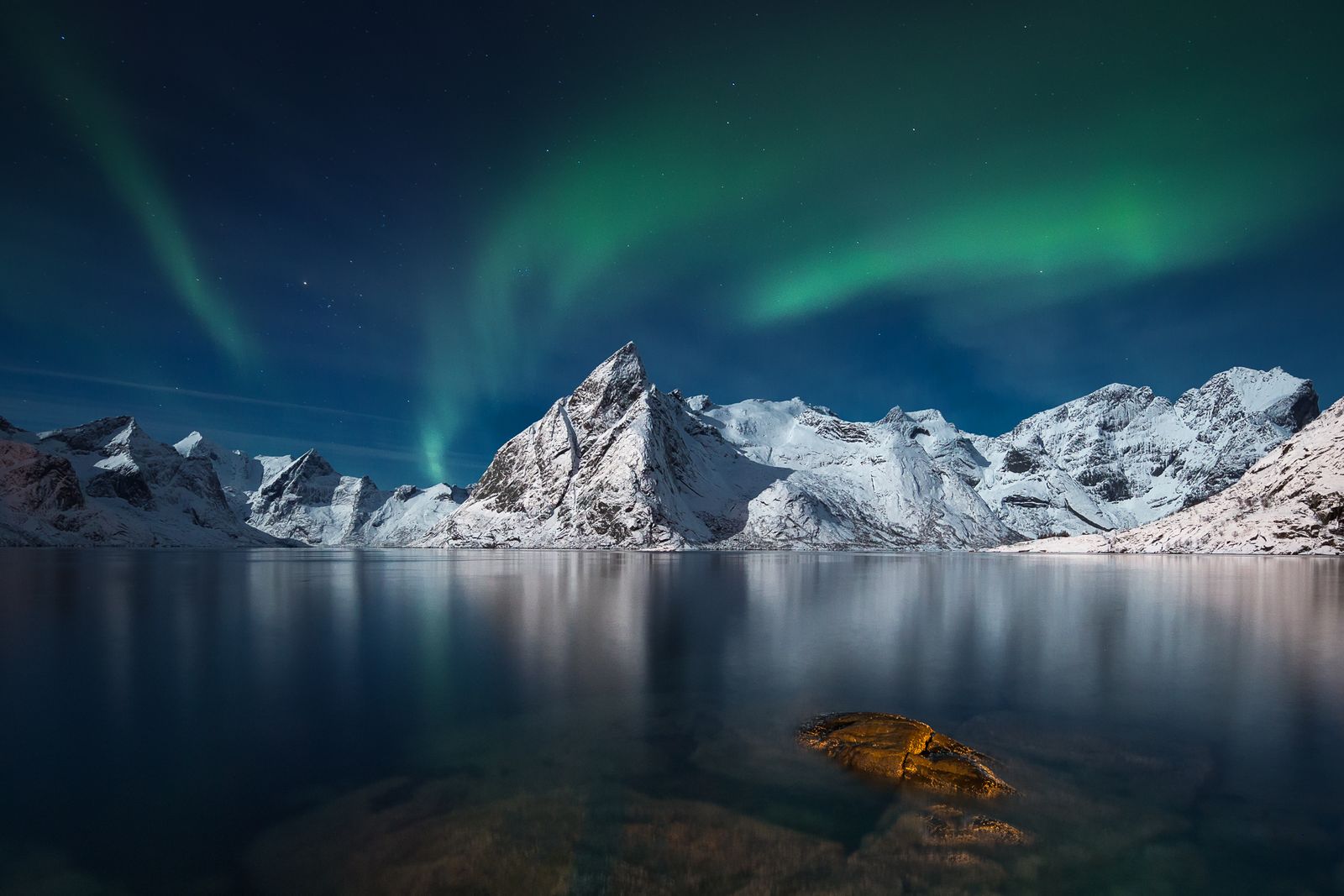
Lofoten Winter Aurora Workshop Report
February 10 - February 18, 2018
In March 2018 I led my second winter landscape workshop to the Lofoten Islands in Norway with long time good friend and fellow landscape photographer Martyn Lucas (I was last in Lofoten back in Winter 2016). As I have written previously, the landscape of these islands are really quite something to behold. Precipitous and ominous peaks that rise straight out of the ocean loom over small fishing villages that comprise of bright red houses lining the shorelines. With a dusting of fresh snow and arctic winter light the entire scene is akin to a fairy tail location and subsequently the photographic opportunities can be truly superb. It is just this magical landscape that attracts so many photographers to this spectacular part of Norway. This workshop was a for a small group of just six experienced landscape and nature photographers. We based ourselves primarily in the small town of Reine and made daily excursions to various locations around the Island for photography.
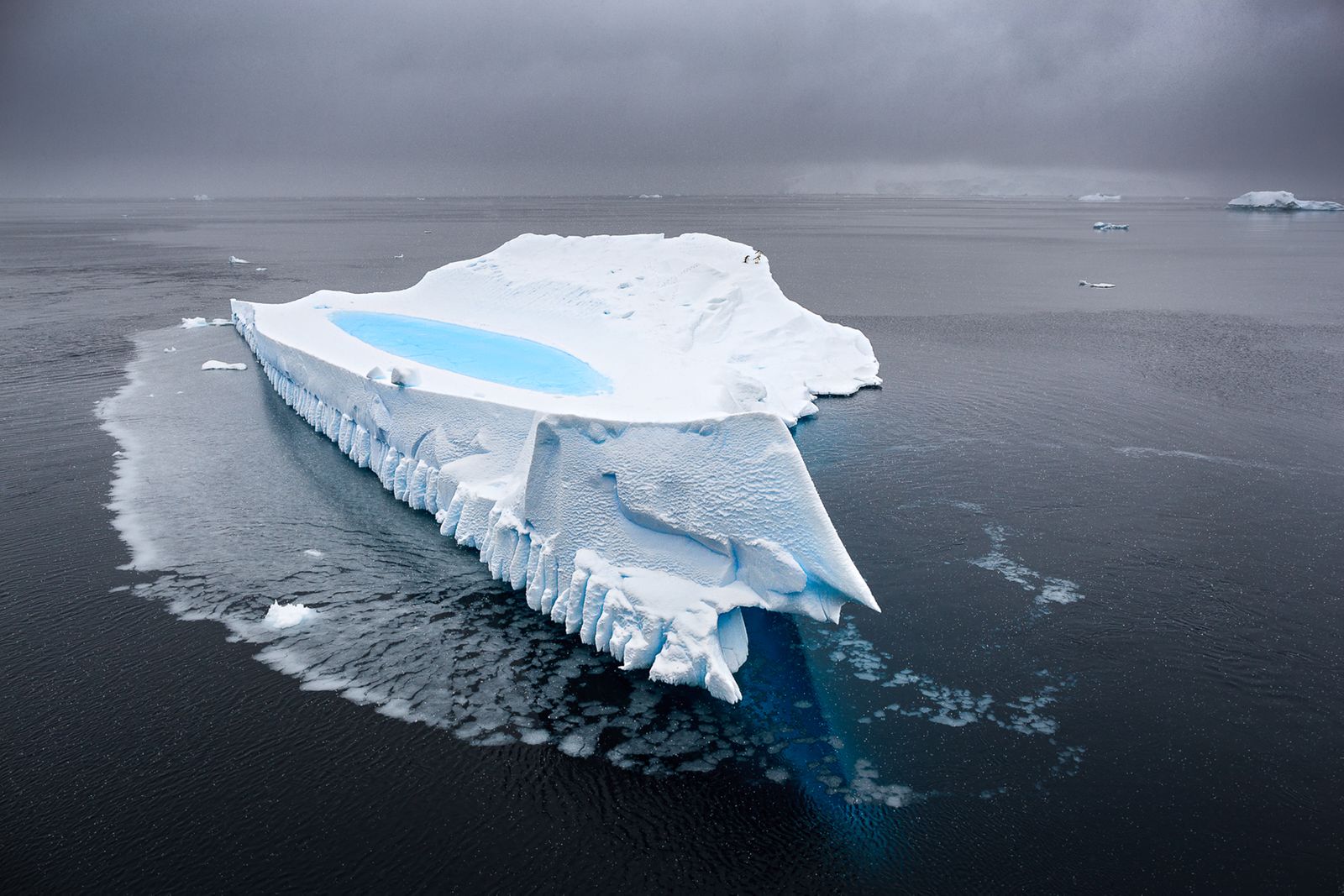
Antarctica White Nature Expedition Report
November 1st - November 14th, 2017
In November of 2017 I lead a dedicated photographic expedition to the Antarctic Peninsula – Antarctica, White Nature – in search of wildlife and dramatic landscapes. The expedition was deliberately timed as the first of the season as typically this is when the weather is still quite unstable in Antarctica and there is the greatest chance of dramatic weather and light. Expeditions later in the season (December, January and February) typically have more settled weather and far less snow coverage on the ground. For wildlife photography this can be problematic as it can be difficult to find clean snow backgrounds for the penguins (Read my guide on how to choose a photographic expedition to Antarctica).
As it turned out fresh evidence of global warming was written all across the face of the Antarctic peninsula with unseasonably warm and stable weather that resulted in more blue sky days than I would have preferred for photography. In fact, there was a huge high pressure system sitting over the peninsula for the entire duration of the expedition (and the one that followed). To date, I have never seen so little snow, or such unseasonably warm and stable weather this early in November. Many of the glaciers I have become familiar with in recent years (such as those at Neko for example) are showing severe signs of melt and distress. Snow coverage was also lower than I have ever experienced in November. National Geographic recently published an outstanding article (July 2017) on the melt in Antarctica that should be mandatory reading for anyone even remotely interested in global warming (skeptics included). Titled: Antarctica; the bottom of the world as you have never seen it I recommend you try and pick up a copy. Putting the facts of the melt aside the underwater photographs by Laurent Ballesta that accompany the article are simply superb.
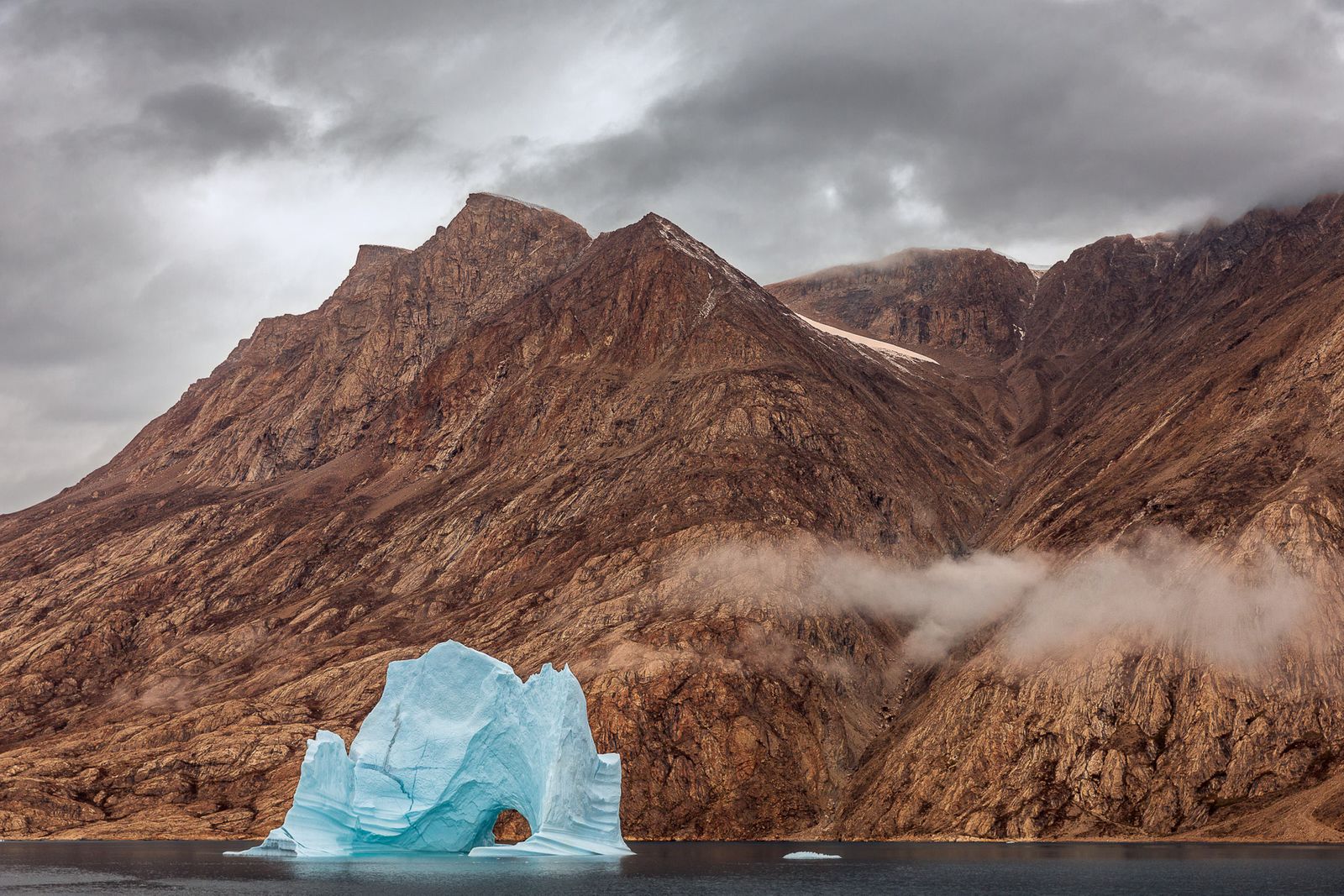
Greenland The Expeditions Report
September 12th - September 22nd and September 22nd - October 3rd, 2017
There are few places on our planet as spectacular as the remote and wild east coast of Greenland. Its precipitous and towering glacier scarred mountains that line the many divergent fjords have created an otherworldly landscape that is just about photographic nirvana. The entire primordial setting is festooned with a plethora of gigantic icebergs that drift slowly on currents through the system and that provide an endless and ever-changing series of subject matter for the photographer.
It was this incredible, dramatic and dynamic landscape that first attracted and drew me to travel and photograph in Greenland (now many years ago). I had been itching to return since my last 2015 visit and so in September and October of this year (2017) I ran two back-to-back expeditions with my friend Daniel Bergmann to the remote east-coast and the incredible Scoresby Sund fjord system - The worlds largest fjord system. The expeditions were carefully timed as the last of the season in order to ensure Autumn colour in the dwarf birch, dramatic light (with real sunset and sunrise) and the first snows of winter. As it happened, we encountered all of this and much more. The first snows of winter was a key ingredient and with the mountain peaks garnished with a dusting of fresh snow during both our expeditions the stage was set for some superlative image making.

Polar Bears Of Svalbard Expedition Report
July 25th - August 4th, 2017
This August 2017 I lead my annual summer expedition to the sea ice north of Svalbard in search of Polar Bears, Walrus, Arctic Fox, Arctic Birds and spectacular Arctic landscapes. Whilst Polar Bears and other wildlife are the main attraction on an expedition such as this it needs to be said that the landscape opportunities in Svalbard are nothing short of breathtaking. Soaring bird cliffs, plunging glaciers and dramatic mountainous scenery means there is quite literally something for every photographer.
Summer in the high arctic is a very special time for photographers. With twenty-four hours of daylight the photographic possibilities are quite literally as abundant as the day is long. In fact, what would normally pass for night time is actually one of the best times for photography in the Arctic summer as the light is often soft and ethereal with subtle golden overtones.

Iceland Ultimate Puffins Workshop Report
May 27th - June 6th, 2017
In May of 2017 Daniel Bergmann and l lead a new workshop to the north of Iceland specifically to photograph the Atlantic Puffin and other Arctic bird species. Iceland is one of the best places in the world to photograph Puffins and other Arctic birds in their natural environment and late May is the ideal time to ensure plenty of action in the colonies.
Our plan was to focus the majority of our attention on Puffins; although we also planned to visit several different locations around Iceland to photograph different species. We had outstanding access to the Puffins living in burrows on the edge of sea cliffs during this workshop and we had timed our trip to ensure we were in the best locations at the best times to photograph these wonderful birds. There is a lot activity in the bird colonies in late May and early June and we were not disappointed with the sightings and displays.

New Zealand South Island Masterclass Workshop Report
May 1st - May 12th, 2017
It has been more than two months now since my South Island New Zealand masterclass workshop and I have been a little remiss in writing up my trip report. Extensive travels and life have conspired against me and it has taken far longer than I would have liked to complete the report (I still have only processed a couple of images from the workshop and I am heading overseas again in just two weeks – Up to Svalbard for my Polar Bear summer expedition).
Rather than give a day-by-day account of the trip this time (as I have done in the past) I felt it better to instead talk a bit about a typical day and what it is that we do other than take photographs during this sort of masterclass workshop. Whilst the physical act of photography is at the core of this workshop it is important impart that there is a lot more going on that just the act of setting up a tripod and pressing the shutter in great locations and beautiful light. In fact, I believe that some of the best learning that comes from these workshops actually happens away from the camera during meal time discussions.
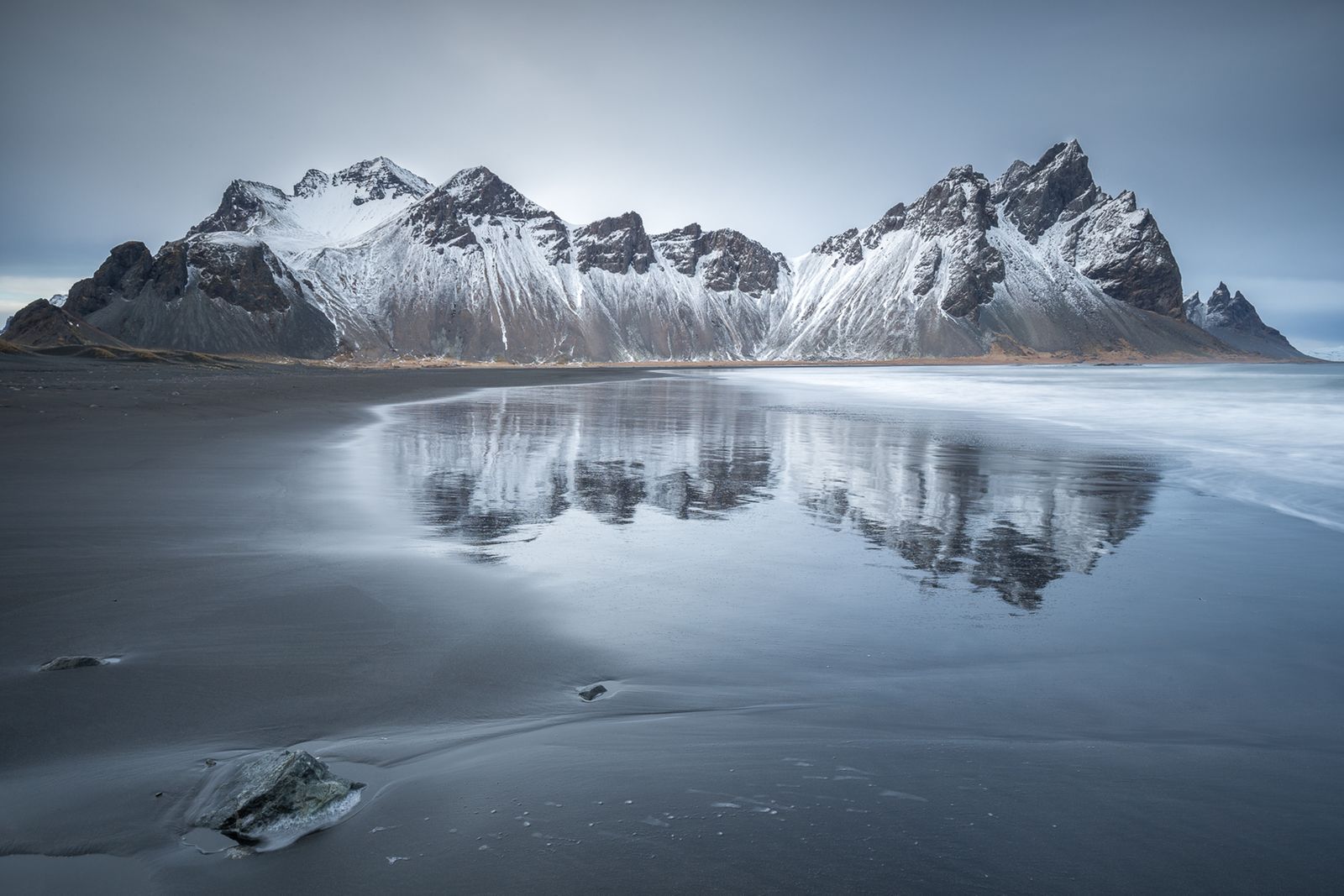
Iceland Winter - The Frozen North Workshop Report
February 23rd - March 5th, 2017
I have now finished the Iceland winter trip report. If you can please add this text and link for me.
In late February 2017 I lead my annual Iceland Winter workshop with Daniel Bergmann. We have been running this workshop for the last five years now and have continually been refining our itinerary. For our 2017 workshop we based ourselves predominately in the north-east of Iceland which gave us access to some of the areas less frequented by the plethora of tourists that are flooding the south of Iceland these days (I will have more to say on this in a future post).
We kept our daily itinerary moderately flexible in order to allow us to take advantage of the best conditions, weather and light. As it turned out, this approach has continued to provide us with fabulous opportunities. In particular this years workshop included a unique opportunity to access and photograph the spectacular waterfall Selfoss in a winter setting. I have been wanting to visit and photograph both Detifoss and Selfoss in winter for many years but conditions have hampered access in recent times. This year we were able to drive all the way to the car park and walk the kilometre and a half through compact snow to the very edge of Selfoss. The waterfall was in superb condition with some spectacular icicles hanging from its rocky edges and fresh snow along its banks. Iceland is well known for its waterfall photography and in my experience winter frequently offers the most interesting and dramatic opportunities to photograph them.
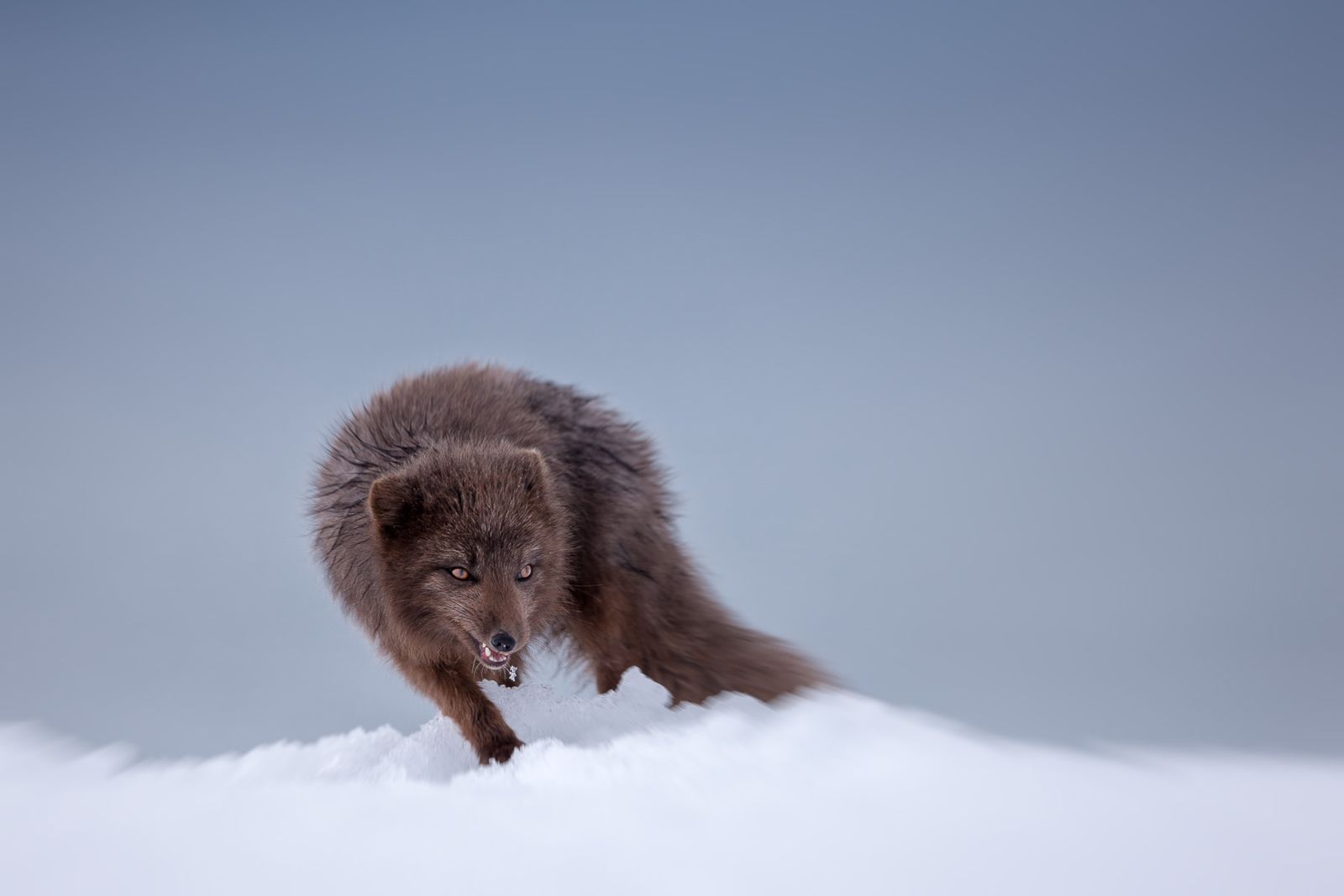
Iceland Winter Foxes Expedition Report
March 8th - March 15th, 2017
In early March 2017 I lead a new expedition to the extreme north west of Iceland for a small group of five photographers to photograph what is perhaps Nature’s greatest survivor: Vulpes lagopus – The Arctic Fox.
I have been travelling to the Hornstrandir Nature Reserve (Hornstrandir is Iceland’s northernmost peninsula, covering 580 km² at the northern end of the Westfjords, to the north of the Jökulfirðir and to the northwest of Drangajökull) in Iceland during the winter months for four years now specifically to photograph Arctic Fox in winter. Late last year I released a new limited edition book on the Arctic Fox (Melrakki) which was the culmination of three years of winter photography.
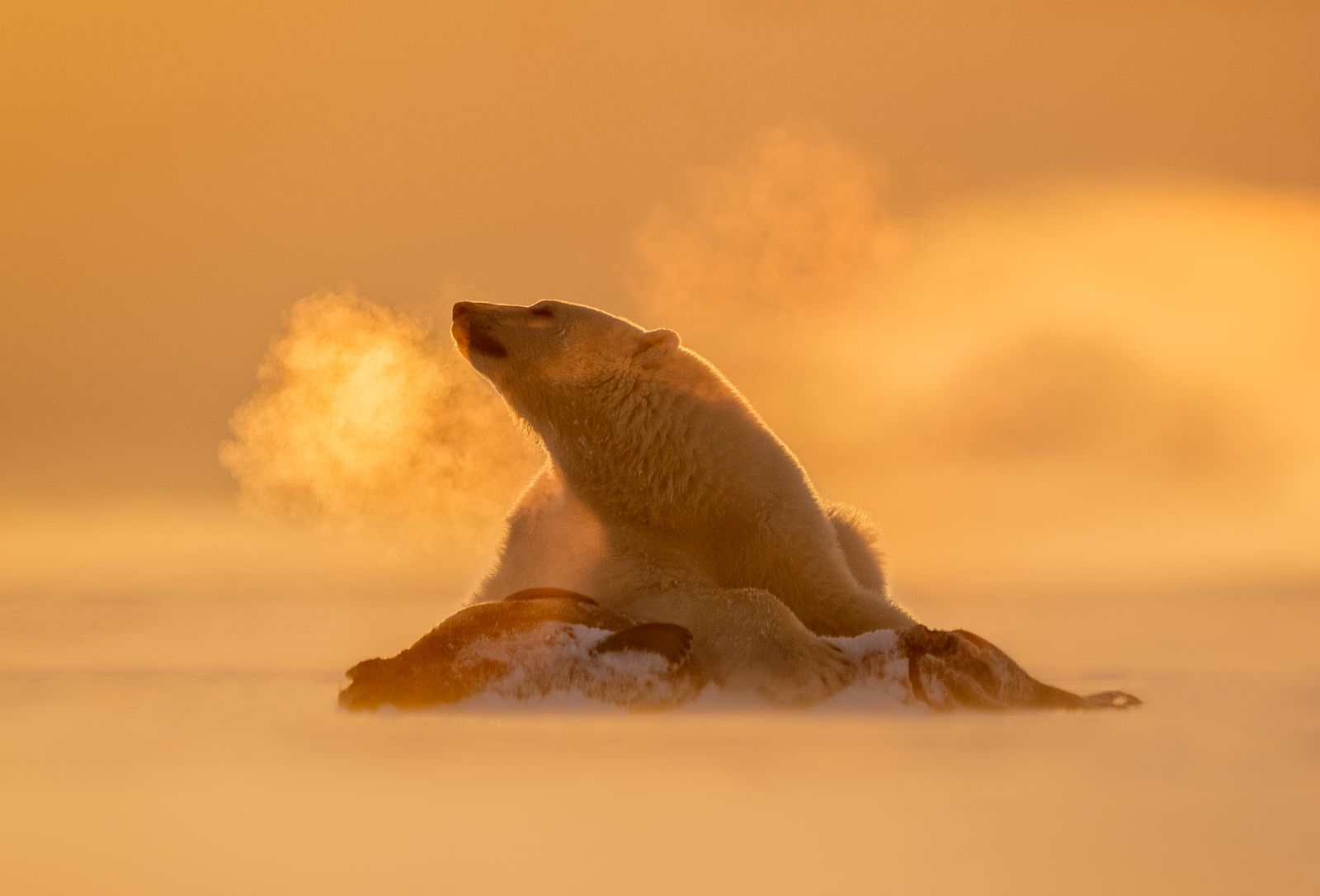
Svalbard In Winter Expedition Report
March 26th - April 3rd, 2017
In late March 2017 I lead a new ship based expedition to Svalbard in Winter to photograph the wildlife and arctic landscapes of this remote archipelago in a winter setting. The primary reason for choosing late March was at this time of the year (and at this latitude of nearly 80º North) the sun is very low in the sky all day and thus there is hours of golden light available for photography. Dawn and Twilight light at this time of year typically last three or more hours and even at midday the sun is still very low in the sky. This situation provides hours and hours of superb light for photography. There is also something about the quality of light in winter at this latitude that translates very well into photographs. The light is soft and ethereal and often has wonderful pink and blue pastel shades not found at other times of the year. This combination of light, snow and ice is simply unmatched in my experience.
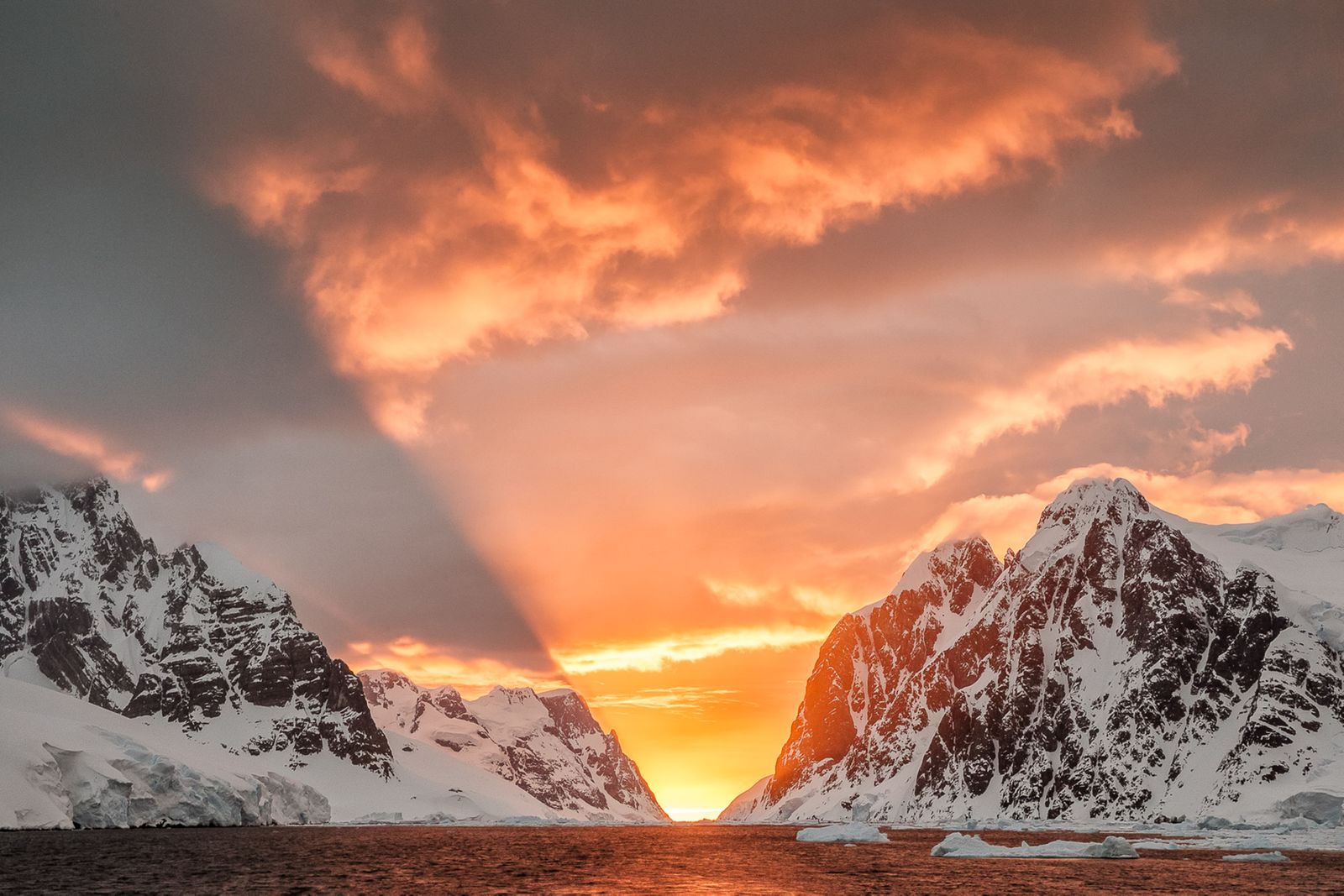
Photographers First Light Workshop Report
November 19th - December 6th, 2016
In November 2016, I led my Photographers First Light expedition to South Georgia and Antarctica, an unforgettable journey to the far edge of the Southern Ocean at the height of the austral summer. In co-operation with Canon Collective and Canon Australia. Sailing through ice-strewn seas and dramatic polar weather, the expedition immersed photographers in the raw spectacle of the sub-Antarctic and Antarctic Peninsula, from vast king penguin colonies and battling elephant seals in South Georgia to sculpted icebergs, calving glaciers, and ethereal polar light further south. The expedition delivered rare photographic opportunities and a profound sense of connection to some of the wildest, most remote landscapes left on Earth.
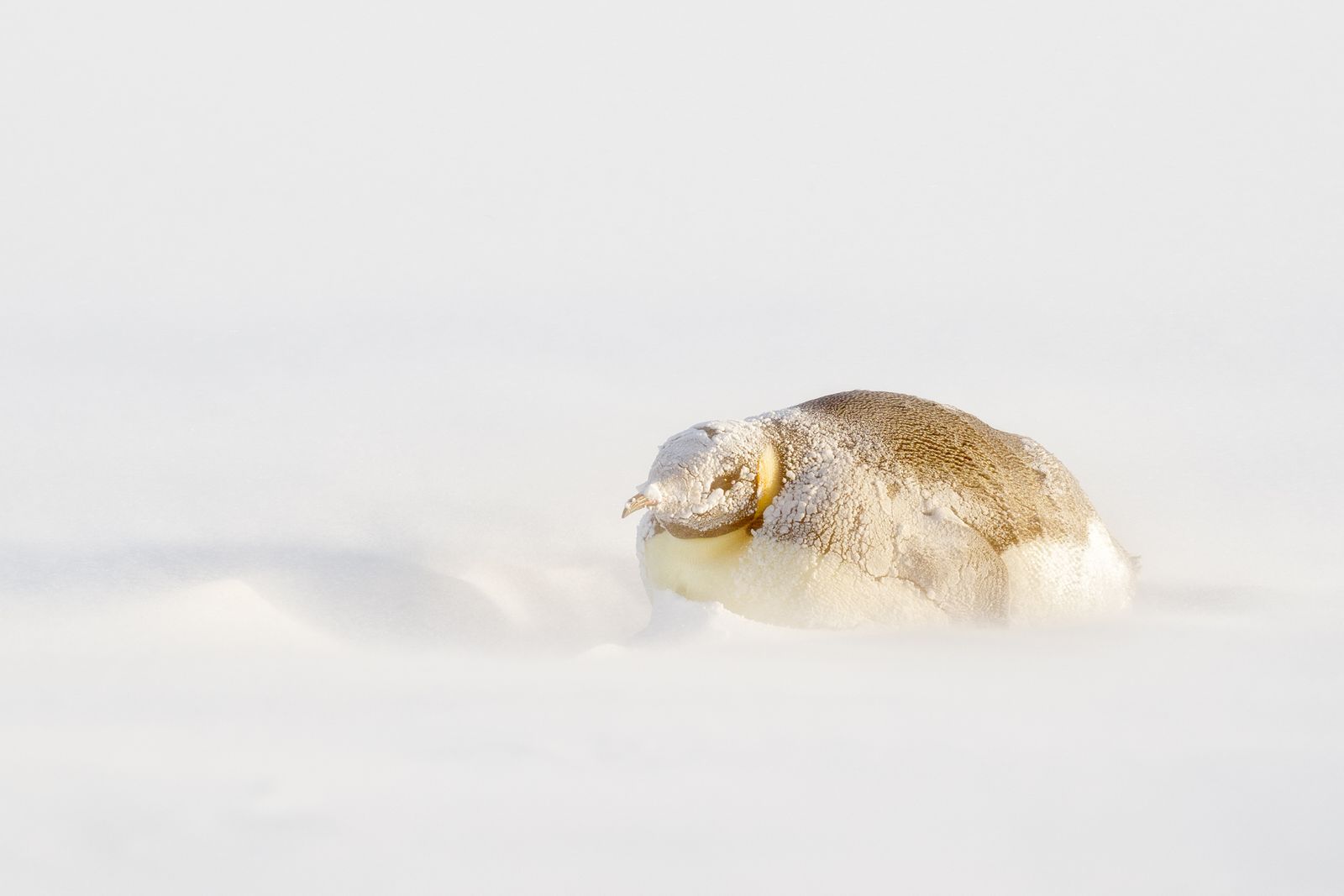
Emperor Penguin Workshop Report
November 10th - November 18th, 2016
In November of 2016 I lead a new expedition to a remote area of Antarctica to camp on the sea ice and photograph Emperor Penguins. The genesis of this expedition began a little over four years ago when I decided I wanted to set about photographing one of the large Emperor Penguin colonies living on the sea ice in a remote area of Antarctica. It took four years of planning, including a scouting trip last year before our expedition group would finally arrive on the frozen sea ice and get the opportunity to photograph the world’s largest and most difficult to reach penguin, the mighty Emperor. I have mostly included only behind the scenes photographs in this trip report to try and give a good sense of what the expedition was like. To see the full portfolio of images from this expedition please visit my website at www.jholko.com
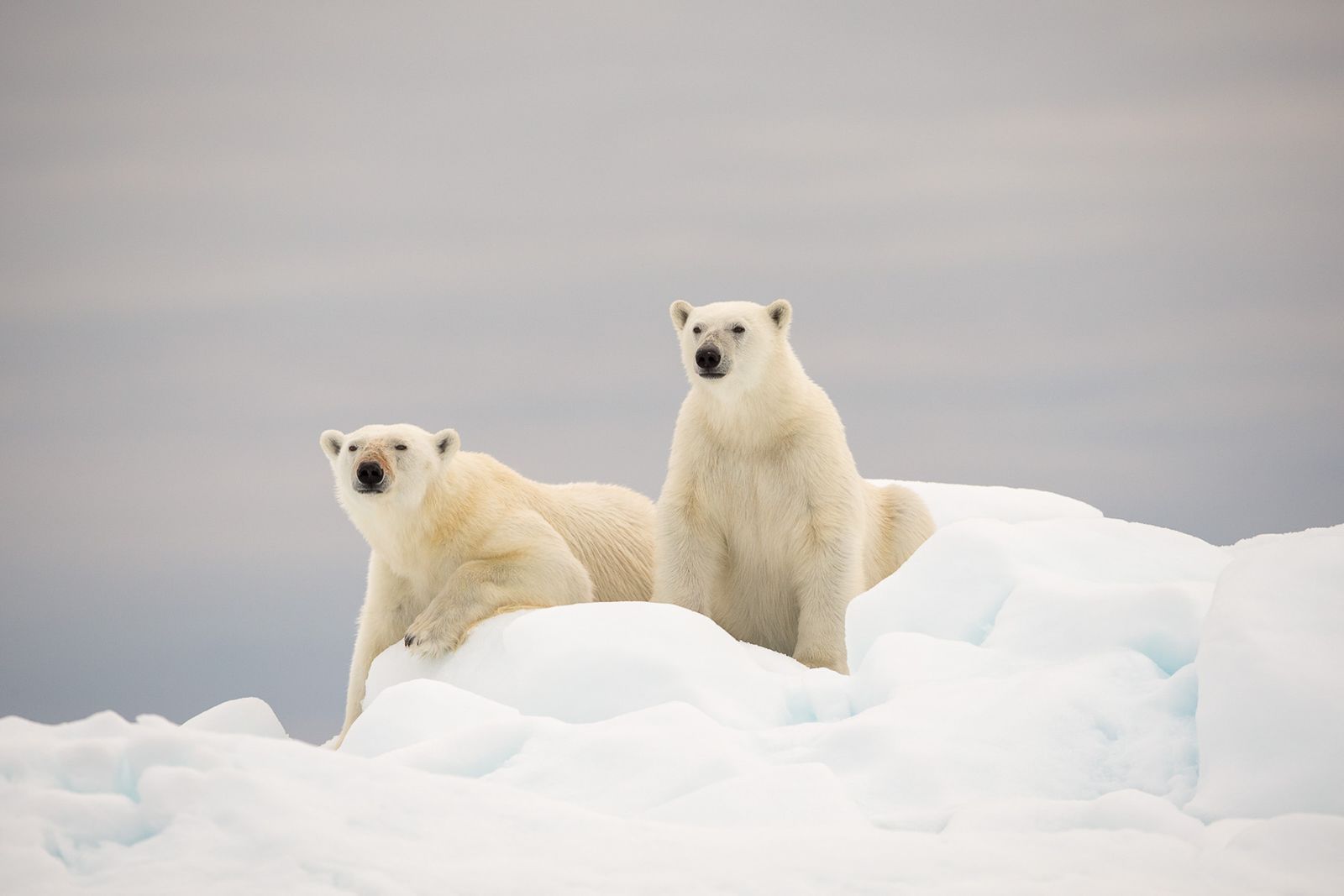
Polar Bears Of Svalbard Expedition Report
July 25th - August 4th 2016
In late July 2016 I lead my annual Polar Bears of Svalbard photographic expedition to the edge of the permanent pack ice north of Svalbard to photograph Polar Bears living and hunting in their natural environment. During the expedition we also photographed incredible arctic landscapes as well as other wildlife of the Arctic region including Walrus, Arctic Fox, Whales, Seals and a plethora of sea birds including the rare Ivory Gull (the rare Ross’s Gull remains an elusive species for me in Svalbard). This expedition was for a small group of just twelve passionate photographers and utilised a small ice hardened ship that enabled us to sail north directly into the pack ice in search of the king of the Arctic.
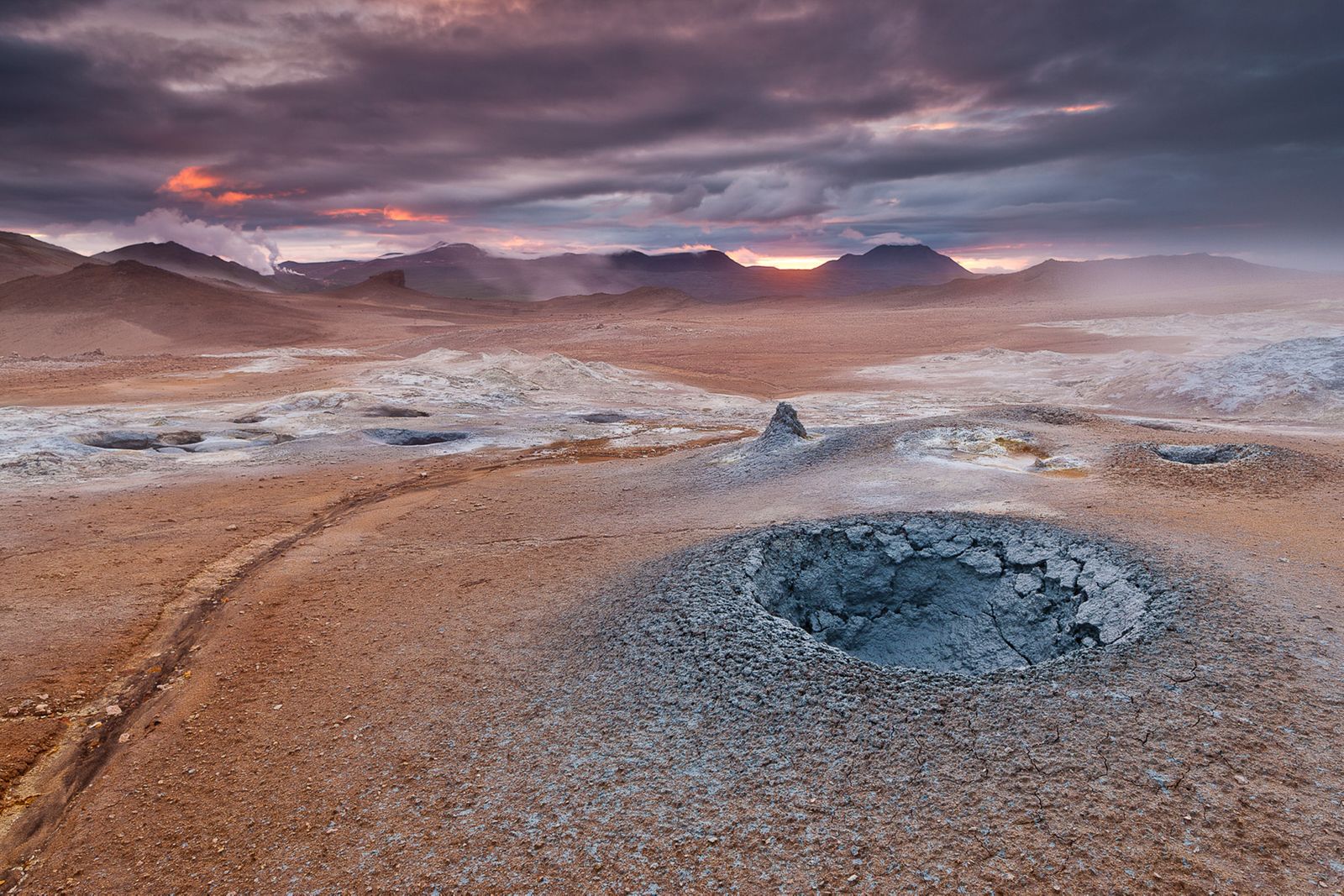
The Highlands And North - Iceland Workshop Report
August 14th - August 23rd 2016
In August and September of 2016 Daniel Bergmann and I lead two back-to-back workshops into the spectacular Highlands of Iceland. The first of these two workshops focused on the Highlands and northern areas of Iceland and the second on the Highlands and Southern region. We chose late August and September for our workshops due to the large increase in tourism in recent times in Iceland during the summer period. In truth, tourism is actually out of control now in Iceland and you absolutely must get off the beaten track if you want to get solitude in the wilderness. Part of our planning was to spend a large portion of our time in the more remote areas of the highlands in order to make sure we were well away from the masses. This proved most fruitful with spectacular landscape free from throngs of tourists.
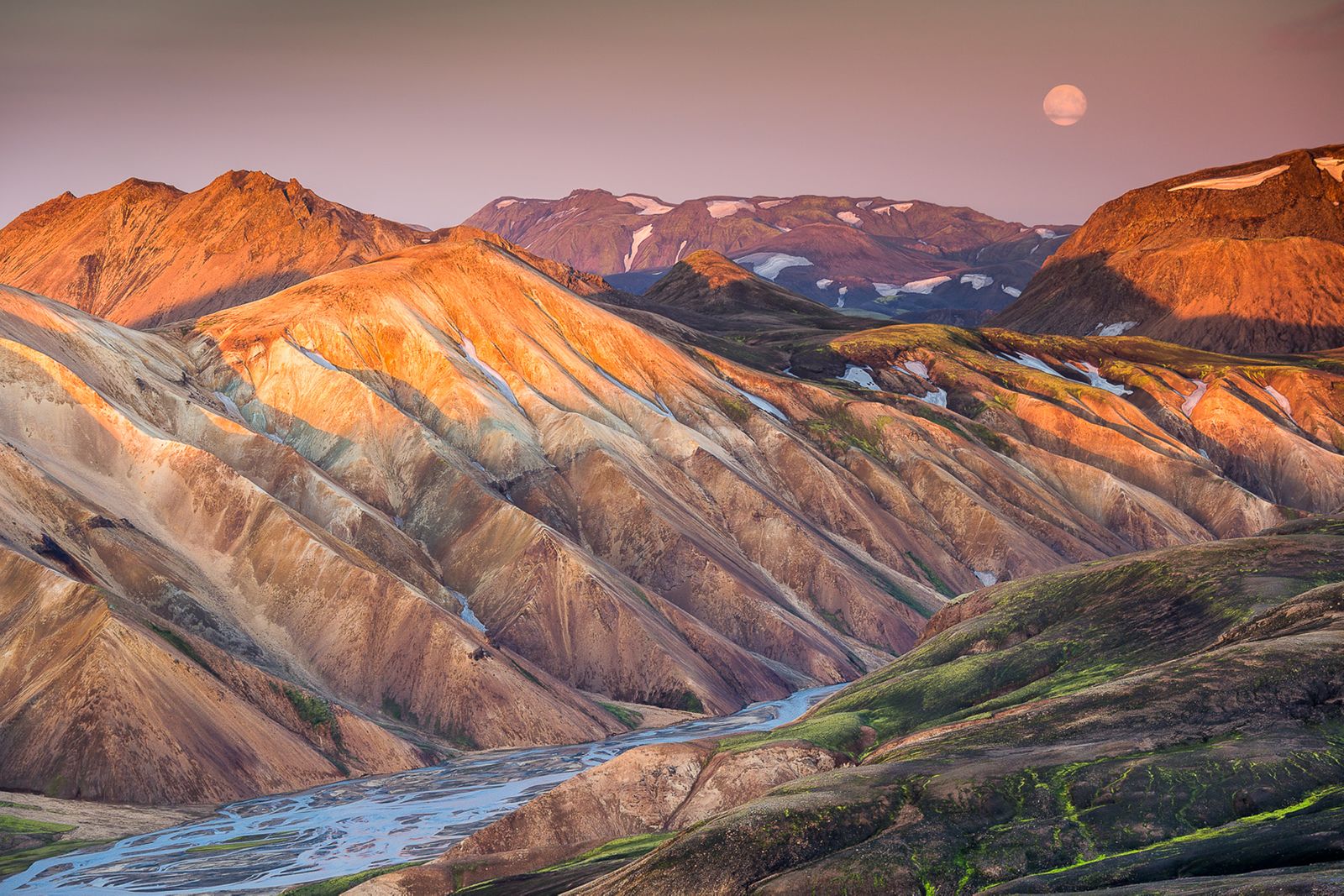
The Southern Highlands - Iceland Workshop Report
August 28th - September 6th 2016
In August and September of 2016 Daniel Bergmann and I lead two back-to-back workshops into the spectacular Highlands of Iceland. The first of these two workshops focused on the Highlands and northern areas of Iceland and the second on the Highlands and Southern region. We chose late August and September for our workshops due to the large increase in tourism in recent times in Iceland during the summer period. In truth, tourism is actually out of control now in Iceland and you absolutely must get off the beaten track if you want to get solitude in the wilderness. Part of our planning was to spend a large portion of our time in the more remote areas of the highlands in order to make sure we were well away from the masses. This proved most fruitful with spectacular landscape free from throngs of tourists.

New Zealand South Island Masterclass Workshop Report
May 2nd - May 13th 2016
In May of this year I lead my annual masterclass workshop to the South Island of New Zealand with co-nature photographer and friend Phillip Bartlett. Our 2016 masterclass workshop itinerary was based on our years of prior experience operating in the South Island and had been designed to provide us the best possible opportunities for photography utilising a number of different locations as bases in the South Island. We focused our efforts on certain key areas to really maximise our chances to get everyone the best photographs. We then lead an extension to the northern tip of the South Island to further expand our opportunities.
The South Island of New Zealand is home to some of the most spectacular scenery and landscapes in the world. Perhaps nowhere else in the world can one see and photograph precipitous mountains plunging into temperate rainforest and wild ocean beaches in so short a space. New Zealand is home to an unbelievably diverse range of subject matter, all packed together in a very small land area. Glaciers, majestic mountain ranges, moss-covered rain-forests, hidden valleys, and ocean-beaten coastlines are among the incredible array of natural wonders found there. It is an island of ever-changing weather and spectacular light conditions. To quote myself, it is a country made for photography.
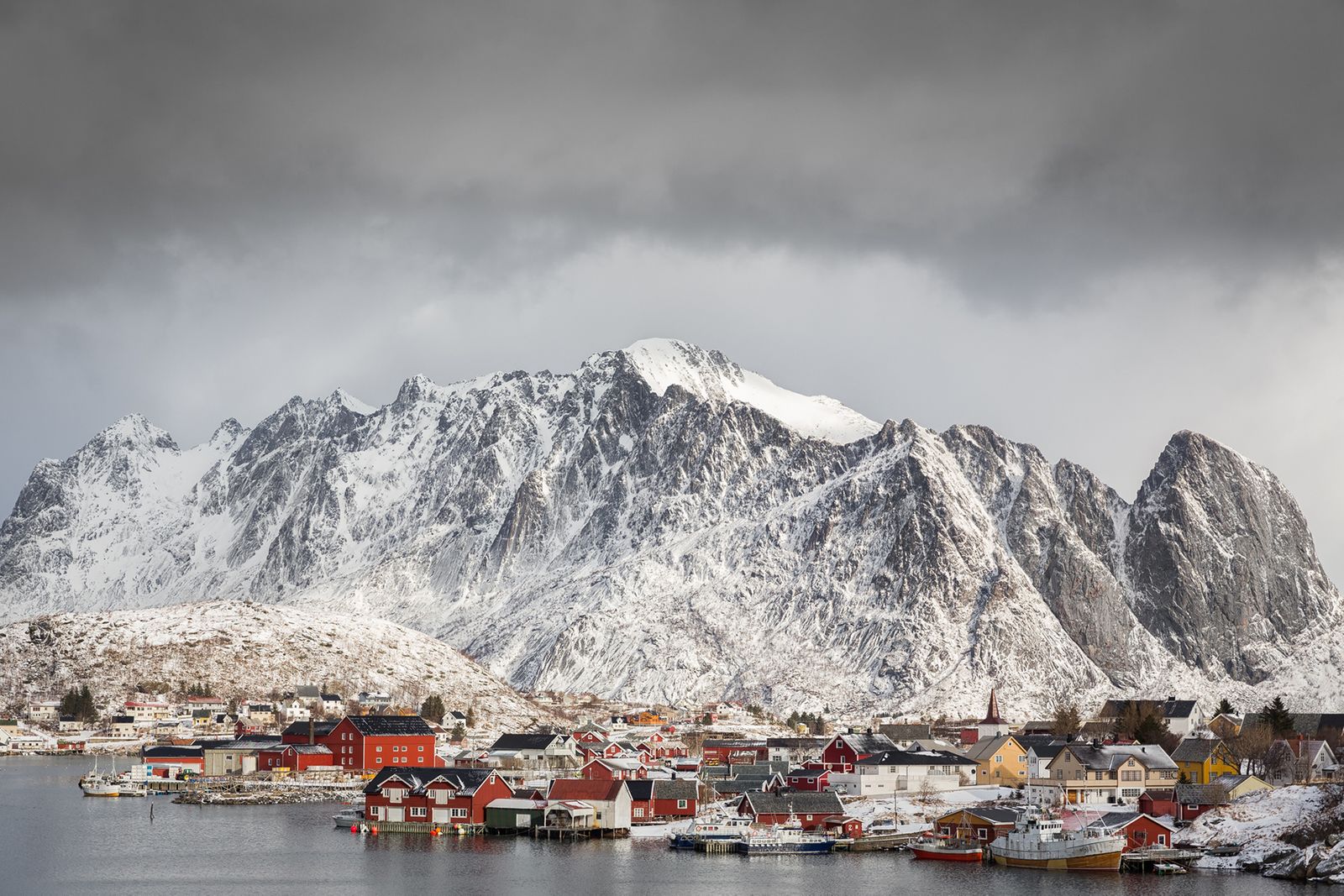
Lofoten Islands Winter Workshop Report
March 17th - March 25th, 2016
In March this year I led a new winter landscape workshop to the Lofoten Islands in Norway with long time good friend and fellow landscape photographer Martyn Lucas. If you are unfamiliar with Lofoten let me assure you that The landscape of these islands is really quite something to behold. Precipitous and ominous peaks that rise straight out of the ocean loom over small fishing villages that comprise of bright red houses lining the shorelines. With a dusting of fresh snow and arctic winter light the entire scene is akin to a fairy tail location and subsequently the photographic opportunities can be truly superb.
This workshop was a for a small group of just six experienced landscape and nature photographers. We based ourselves primarily in the small town of Reine and made daily excursions to various locations around the Island for photography. Lofoten has become quite the hot spot for photography in the last few years (some are calling Lofoten the new Iceland) and although we did encounter a few other photographers during one of of our early morning sessions near town (where the above photograph was taken), we primarily had the place to to ourselves. It has been my experience in ‘hot spot’ locations such as Iceland and Lofoten that it is not too difficult to get away from other groups if you travel with someone who knows the terrain and have an experienced guide with you. Both Iceland and Lofoten have a number of iconic locations that everyone visits and photographs. However, both also have a vast number of excellent off the beaten track locations that are rarely visited and even less rarely photographed. On the whole, we preferred to spend the majority of our time in these less visited areas as the opportunity for unique photographs is greatly improved and you don’t have to fight for tripod space.
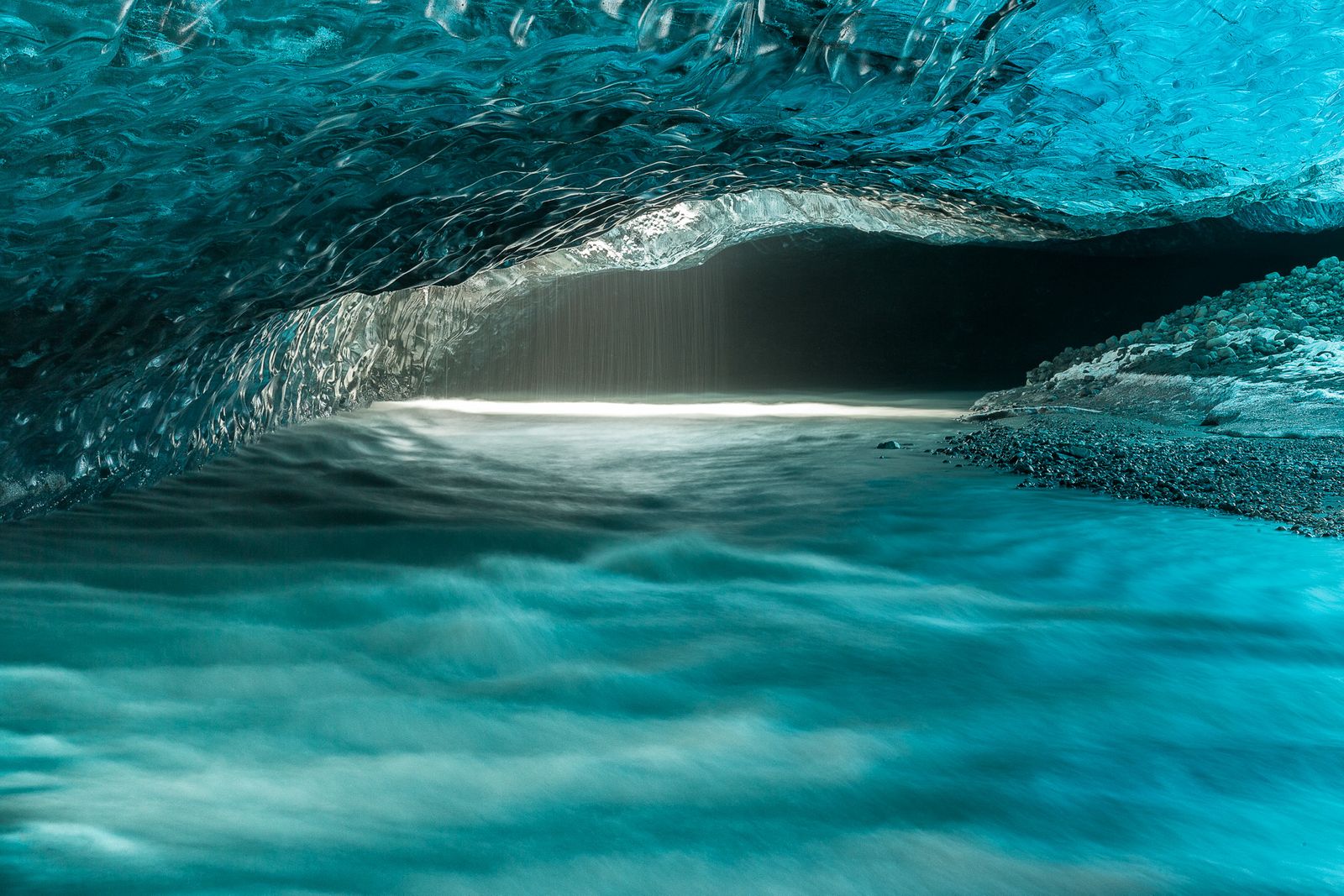
Iceland Winter - The Frozen North Workshop Report
March 4th - March 13th 2016
In late February and March this year I lead my annual winter workshop to Iceland with good friend Daniel Bergmann. For our 2016 workshop we decided to head north for the second part of our trip and spend more time in areas less often visited during the winter months. Heading north in winter is always a bit of a gamble in Iceland in winter. Roads are often closed due to winter snow storms and it is possible to get stuck up north if there are a few days of very bad weather. Thankfully, we were never trapped by the weather, although it did throw up a series of challenges throughout our workshop.
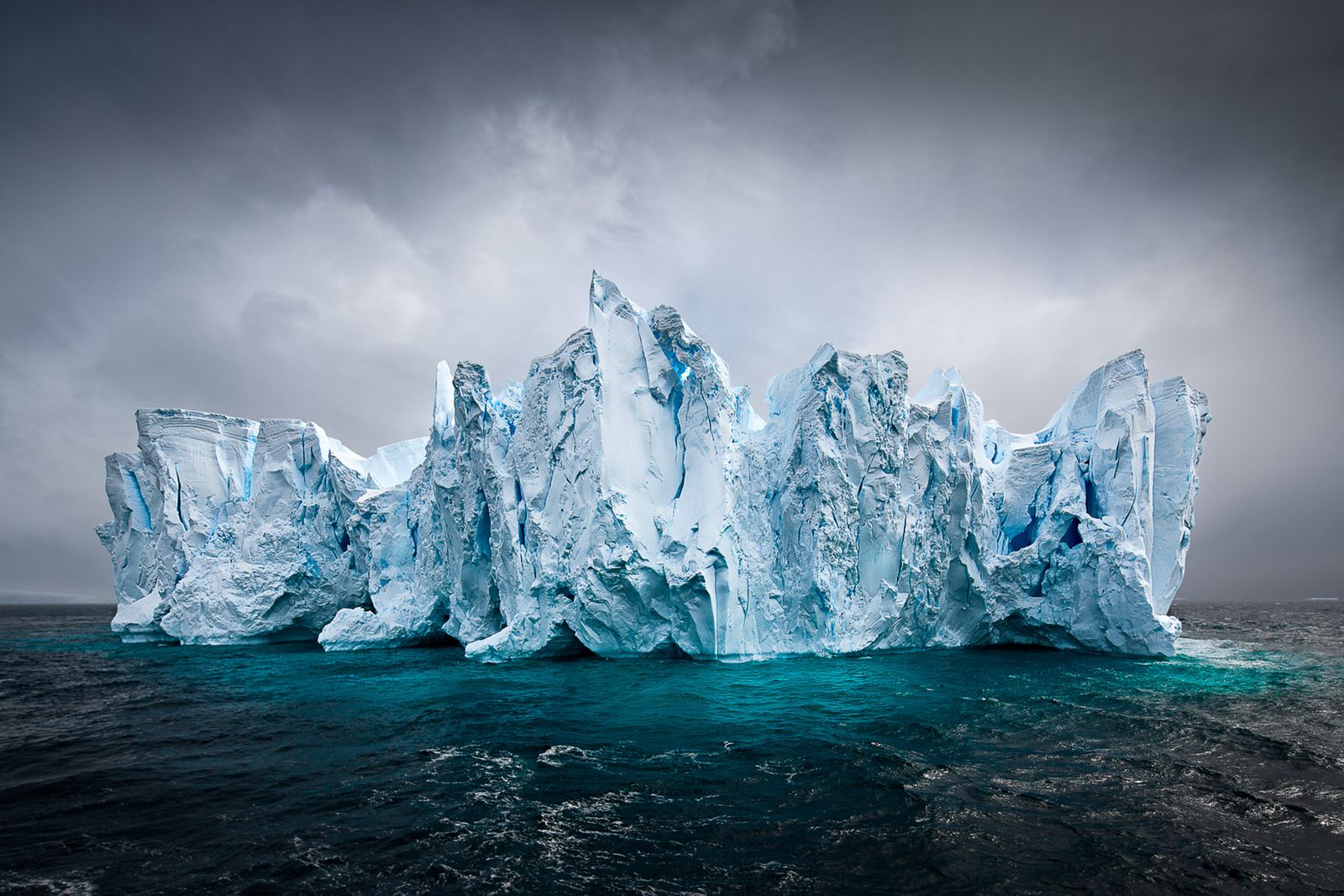
Weddell Sea Antarctica Expedition Report
February 9th - February 20th 2016
"In February 2016 I lead a dedicated photographic expedition into the Weddell Sea in Antarctica. Our aim was to get as far south as possible into the Weddell Sea in search of giant tabular icebergs and vast Adelie Penguin colonies. We hoped we may even visit Snow Island if conditions permitted and find the small colony of Emperor Penguins that lives on the island (As it happened the ice conditions prevented us from getting to Snow Hill). This was the first expedition I have lead that has ventured this far south into the Weddell Sea and it turned out to be a truly excellent experience. Antarctic Sound is well known for its giant tabular icebergs and it did not disappoint with some of the largest and most spectacular tabular icebergs I have ever had the pleasure to photograph. We were particularly fortunate early one morning (around 3am) to have superb light on the icebergs near the mouth of the sound. These magical moments are the real bread and butter of these expeditions. Standing on the deck of the ship photographing gigantic tabular icebergs in wonderful pre-dawn light is an experience that just stays with you forever."
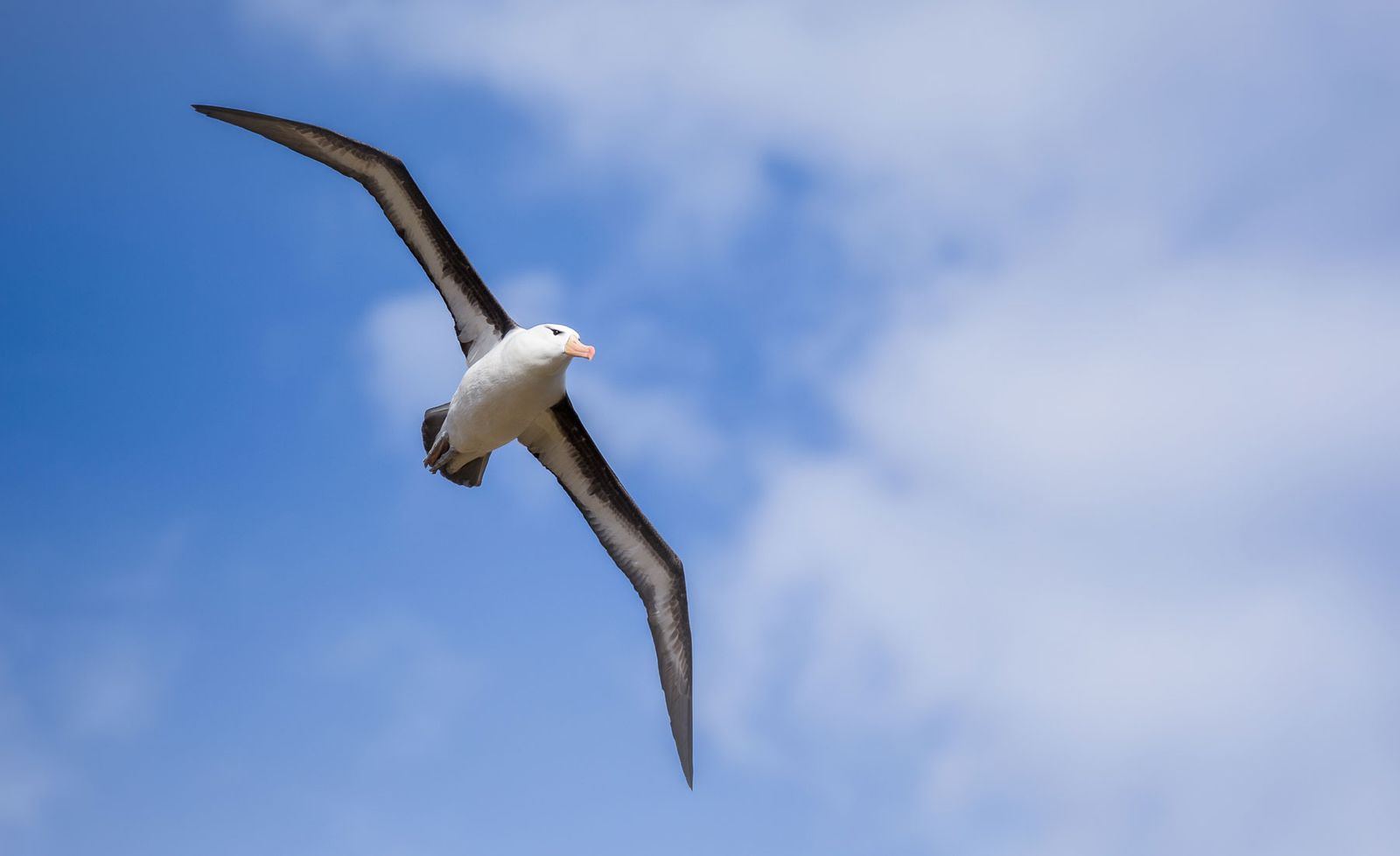
The Falkland Islands Extension Report
November 21st - November 28th, 2015
In late November 2015 I lead a seven day extension expedition for a small group of photographers to the Falkland Islands after we completed the 2015 South Georgia Expedition. The Falkland Islands are well known amongst birders and bird photographers as one of the best places in the world for observing many different species in such a small area (many of them at close proximity). Our intention, was to visit two of the world’s best hotspots for photography – Saunders Island (the Neck) and Sea Lion Island. We also payed a visit to one of the local areas (Gypsy Cove) in Stanley on our last evening in the Falklands.
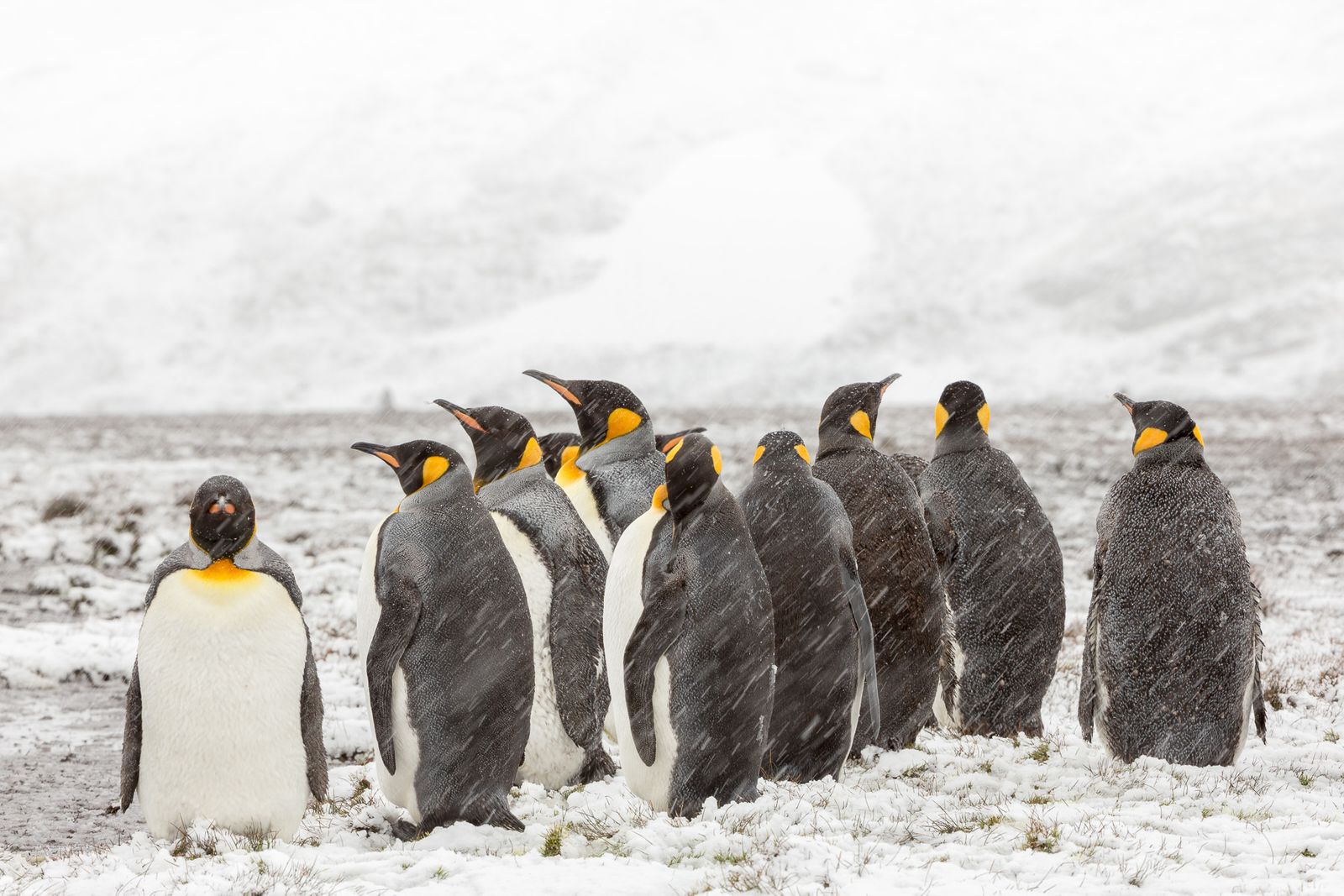
Wild South Georgia Island Expedition Report
November 7 - November 21, 2015
In November 2015 I co-lead an extended 15 day expedition to South Georgia Island with my good friends and partners Ole Jorgen and Roy Mangersnes. As is customary for me I like to write up a trip report on our experiences; both, so that there is a record of the trip for the photographers aboard, but also so I can share the experience with a wider audience.
I have lead expeditions to South Georgia Island in past years, but this was the first time I had spent an extended period of time at the Island. Our plan for a 15 day expedition took a fair amount of logistical planning and permitting, but the end result was a fantastic amount of time for photography in what is in all likelihood the best location in the world for wildlife photography. As it so happens South Georgia is also home to some incredible landscapes with soaring Himalaya style peaks that provide the perfect back-drop.
At the conclusion of the South Georgia Island expedition I lead a week long extension in the Falkland Islands for a small group of photographers. During this expedition we flew to both Saunders and Sea Lion Islands where we spent a number of days exploring the area and photographing the bird life. I will have a seperate report on this trip in the coming days.
Photography guide and co-leader for the South Georgia trip Roy Mangersnes has actually beaten me to the trip report writing on this occasion so I am going to share his report from our expedition as it provides a really nice day by day insight into the expedition. I have added in my own thoughts and comments where appropriate.

Kingdom Of The Ice Bear Expedition Report
August 20 - August 30, 2015
In July and August 2015 I lead two photographic expeditions to the edge of the permanent pack ice north of Svalbard to photograph Polar Bears living and hunting in their natural environment. During the expeditions we also photographed incredible arctic landscapes as well as other wildlife of the Arctic region including Walrus, Arctic Fox, Whales, Seals and a plethora of sea birds including the rare and angelic Ivory Gull and the even rarer Sabine Gull (the first time I have seen and photographed this gull). Both of these expeditions were for small groups of just twelve passionate photographers and utilised a small ice hardened ship that enabled us to sail north directly into the pack ice in search of the king of the Arctic. During both expeditions we were fortunate to see and photograph Polar Bears on the pack ice including a number of Bears on recent seal kills. Seeing a Polar Bear on a seal kill is a very rare event and as luck would have it were able to photograph the kills and all aboard were able to capture some really fantastic photographs.
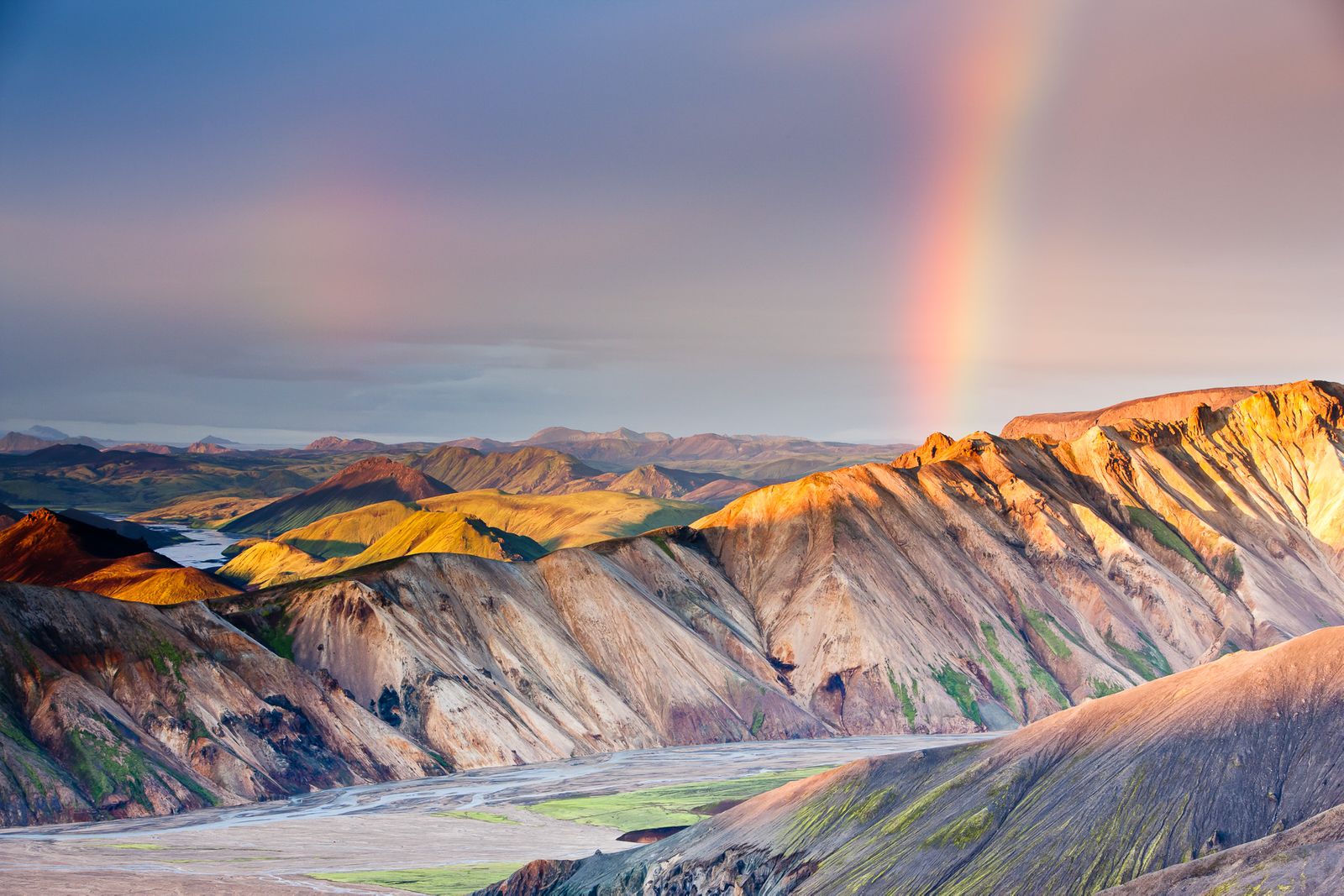
Iceland - The Highlands Workshop Report
August 8 - August 18, 2015
In August this year I lead a new workshop into the highlands of Iceland with good friend Daniel Bergmann. Our Highland workshop for 2015 took a different approach to previous workshops in that we made the decision to specialise in just a few areas of Iceland that we regard as some of the most spectacular – in this case we decided to spend the majority of our time in the Highlands and several other key locations. This approach enabled us to spend more time in our chosen areas and gave us better opportunities for good light. I am a strong advocate for spending as much time as possible in an area for photography and not moving from location to location too quickly. This approach both maximises the chances of really great light, but more importantly, it enables the photographer to slow down and get in tune with their surroundings and begin (hopefully) to see really strong compositions. It is actually exceedingly difficult to ‘hit the ground running’ in a new area and make great images right off the bat. More often than not the good images come after a period of time has elapsed and the photographer has had a chance to really tune into their surroundings. As always, our daily itinerary was dictated by the weather and light to enable us to maximise any opportunities and to avoid any bad weather. As planning (and a little luck) would have it we were able to run with our originally planned itinerary without any severe bad weather.
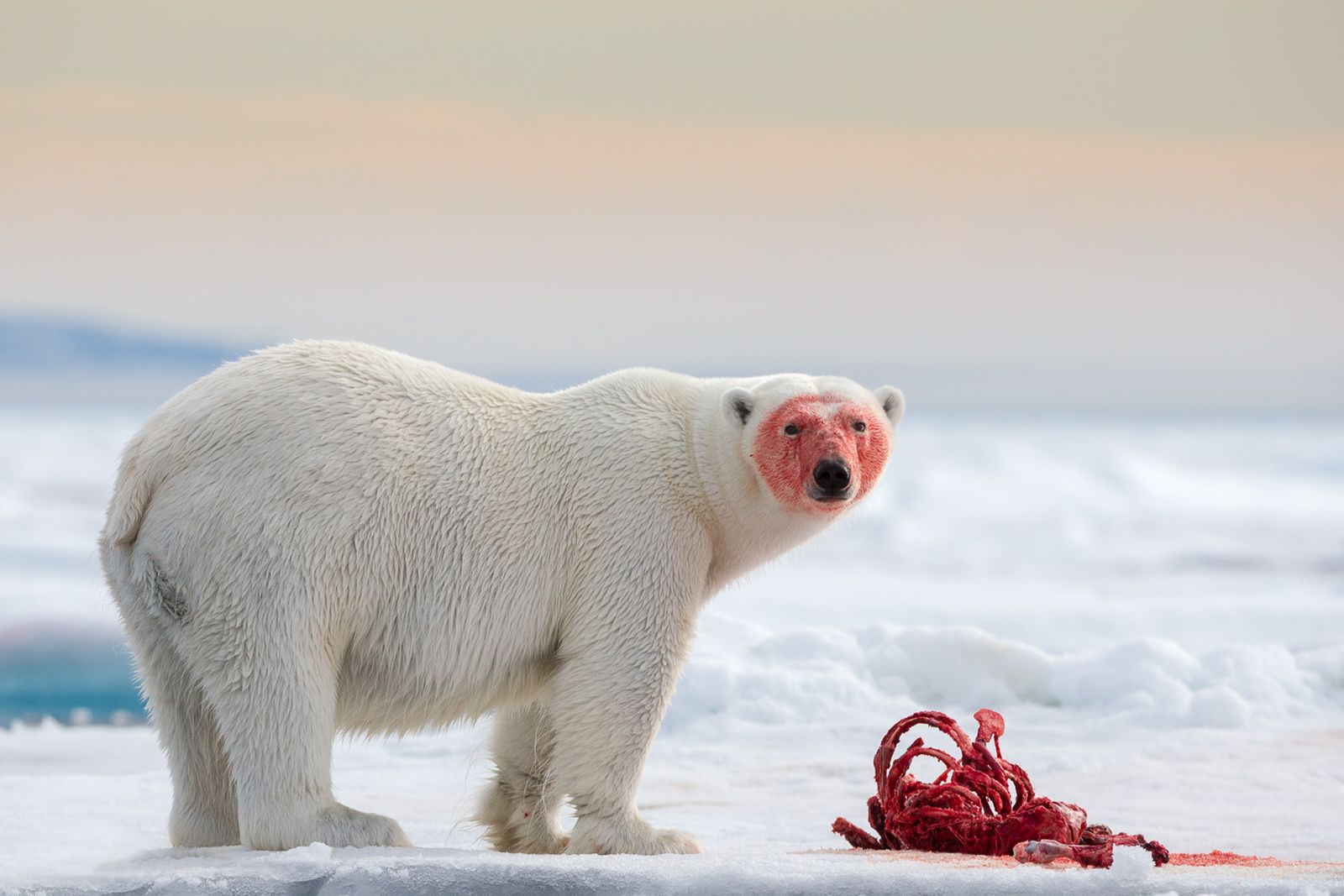
Wild Polar Bears Expedition Report
July 25 - August 4, 2015
In July and August 2015 I lead two photographic expeditions to the edge of the permanent pack ice north of Svalbard to photograph Polar Bears living and hunting in their natural environment. During the expeditions we also photographed incredible arctic landscapes as well as other wildlife of the Arctic region including Walrus, Arctic Fox, Whales, Seals and a plethora of sea birds including the rare and angelic Ivory Gull and the even rarer Sabine Gull (the first time I have seen and photographed this gull). Both of these expeditions were for small groups of just twelve passionate photographers and utilised a small ice hardened ship that enabled us to sail north directly into the pack ice in search of the king of the Arctic. During both expeditions we were fortunate to see and photograph Polar Bears on the pack ice including a number of Bears on recent seal kills. Seeing a Polar Bear on a seal kill is a very rare event and as luck would have it were able to photograph the kills and all aboard were able to capture some really fantastic photographs.
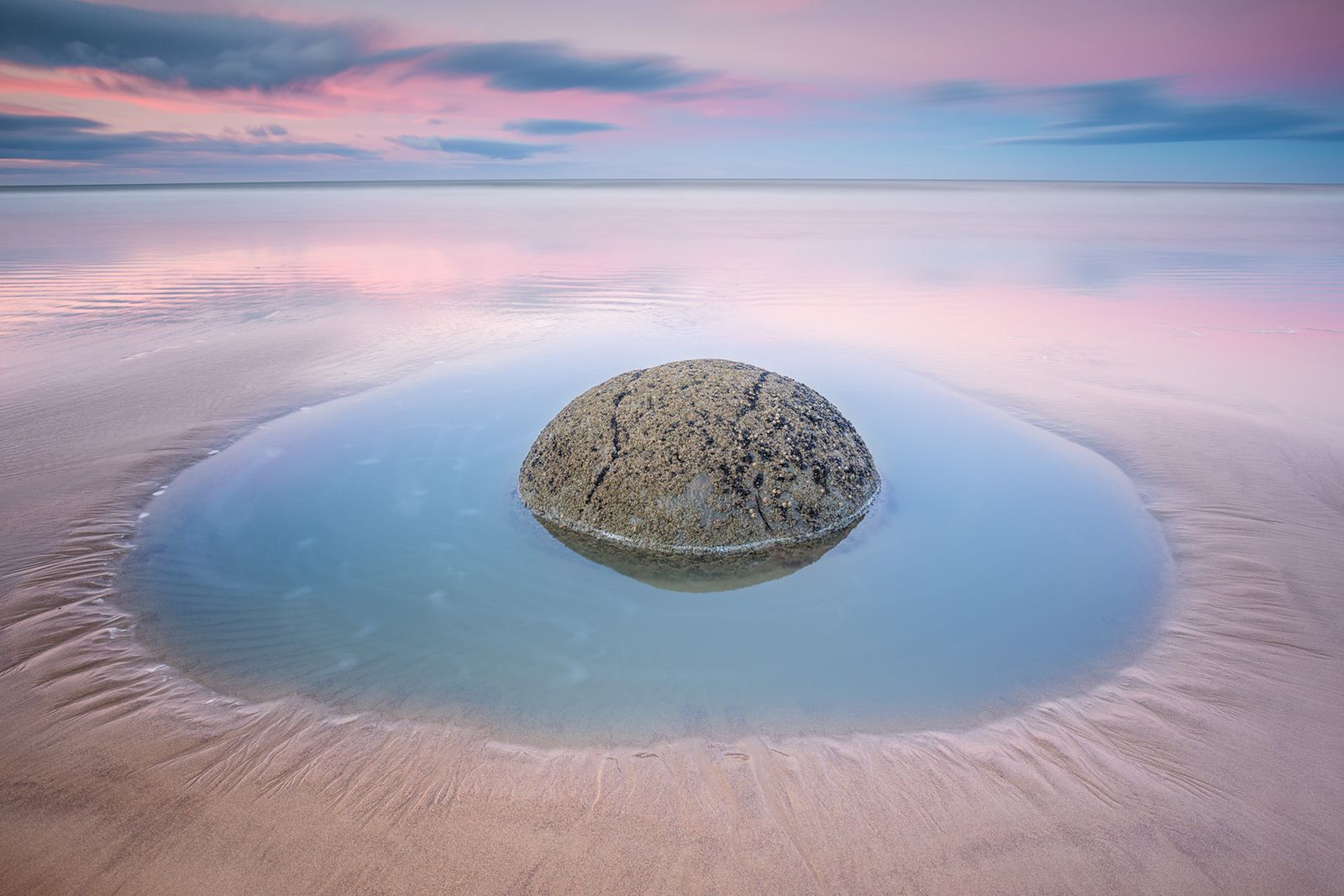
New Zealand's South Highland Master Class Workshop Report
May 2 - May 13, 2015
In May 2015 I co-led my annual Autumn workshop to the South Island of New Zealand with co-nature photographer and friend Phillip Bartlett. Our 2015 masterclass workshop was a brand new itinerary that had been designed to provide us the best possible opportunities for photography utilising a number of different locations as bases in the South Island. We forgo trying to ‘do everything’ in the South Island in a single trip and instead focused our efforts on certain key areas to really maximise our chances to get everyone the best photographs. The South Island of New Zealand is home to some of the most spectacular scenery and landscapes in the world. It is no coincidence that Peter Jackson chose this part of the globe to film the Hobbit and the Lord of the Rings movies. Perhaps nowhere else in the world can one see and photograph precipitous mountains plunging into temperate rainforest and wild ocean beaches in so short a space. New Zealand is home to an unbelievably diverse range of subject matter, all packed together in a very small land area. Glaciers, majestic mountain ranges, moss-covered rain-forests, hidden valleys, and ocean-beaten coastlines are among the incredible array of natural wonders found there. It is an island of ever-changing weather and spectacular light conditions. It is a country made for photography.
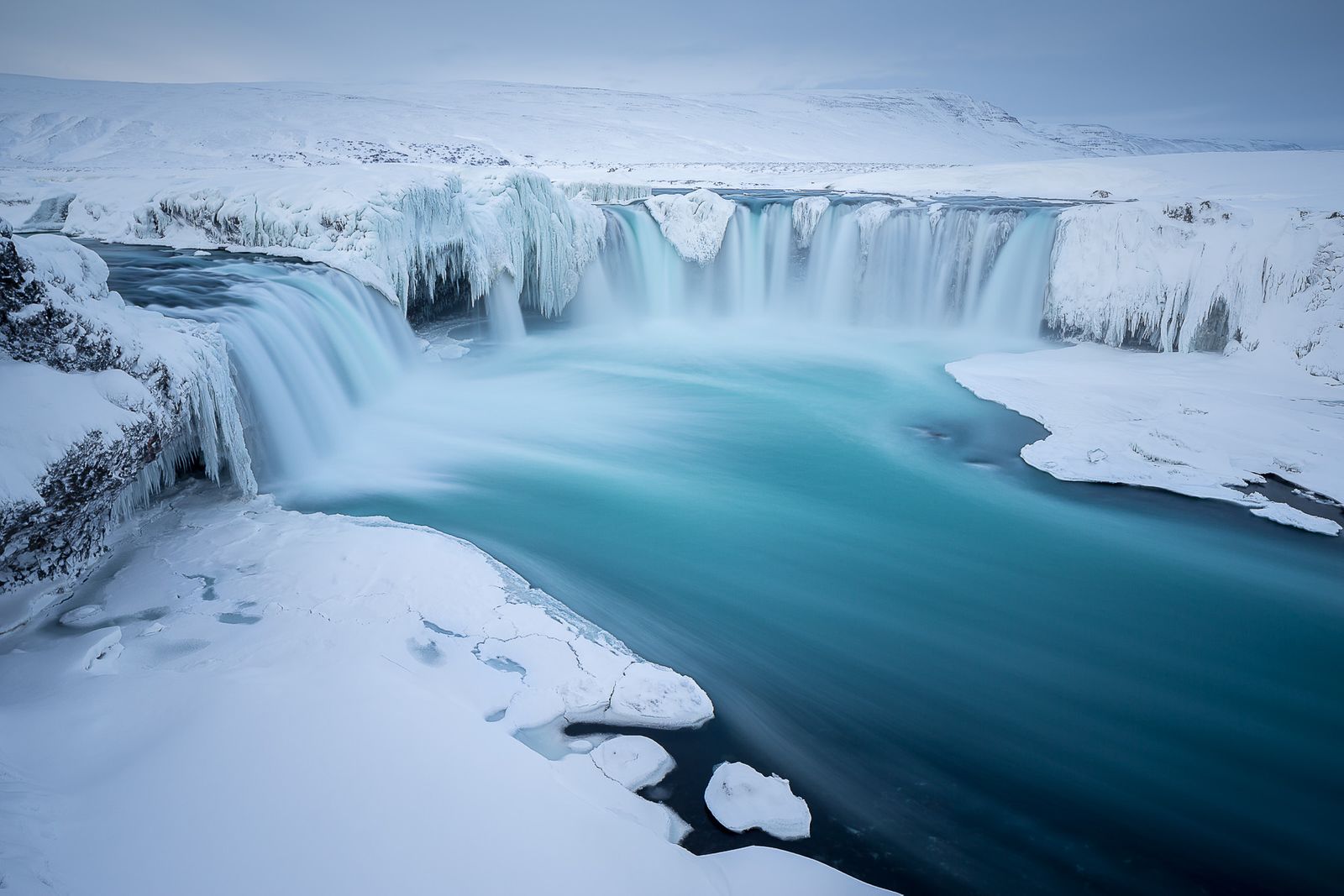
Iceland Winter Aurora Workshop Report
February 25 - March 6, 2015
In February 2015 I led my annual winter workshop to Iceland with good friend, local guide and photographer Daniel Bergmann. This is the fourth year in a row I have led a dedicated winter trip for landscape and Northern Lights in Iceland. This year we were fortunate to experience some of the best light I have had the pleasure to photograph in during the winter months. It was also the coldest I can recall with snowfall down to sea level on several occasions. Iceland’s 2015 winter was one for the recent record books with greater snowfall, and colder temperatures than recent years.
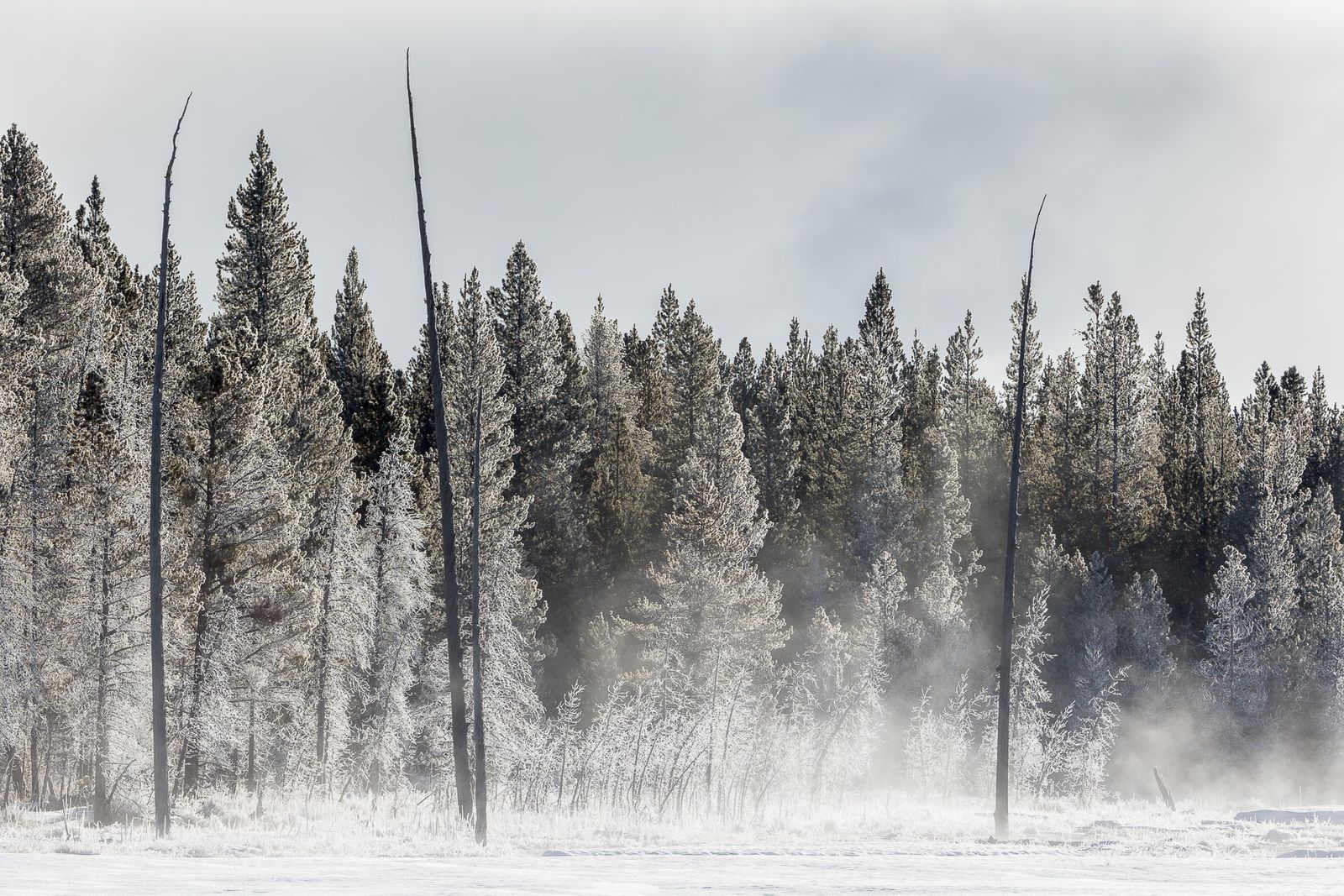
Yellowstone - A Winter Wonderland Experience Report
February 11 - February 20, 2015
In early February 2015 I led a small photography group to Yellowstone National Park and the Grand Tetons for an exploratory winter workshop. This was my first time to Yellowstone in winter and very much a preliminary scouting trip for future workshops in the area. Winter is a wonderful time to visit America’s first national park; tourist numbers are very low by comparison with summer and the combination of snow and geothermal features offers outstanding landscape photography opportunities. There is also an abundance of wildlife in Yellowstone and many opportunities to create really unique imagery in the snow covered landscape. Our plan was to photograph both the landscape and wildlife found in the park and take advantage of the winter snowfall. When visiting Yellowstone in winter there is a sense that you have almost crossed to another planet. The landscape is hushed by a thick blanket of snow. The trees are wreathed in frost and loom like wraiths against the ominous winter clouds. The crisp, icy air enhances the effect of the geothermal features. There is an exotic combination of mist-shrouded hot pools, bubbling paint pots and steaming fumaroles that is the ideal setting for winter landscape photography.

The Spirit Of Antarctica Expedition Report
December 6 - December 17, 2014
Pro Photographer Antony Watson and I co-led a twelve day expedition to Antarctica in December 2014 - The Spirit of Antarctica. This expedition set sail from Ushuaia in South America and was designed as the ideal photographers first visit to Antarctica. We sailed across the notorious Drake Passage and visited some of the premiere locations for photography in Antarctica. We visited and photographed in some truly amazing locations including the breathtaking Lemaire Channel, the Gerlache Strait and the surreal geothermal Deception Island, to name but a few. There was even an opportunity to spend a night ashore photographing and camping in Antarctica for those who were feeling brave! We then return sailed across the Drake Passage before docking in Peurto Williams. A connecting flight then took us to Punta Arenas in South America where we concluded our expedition.
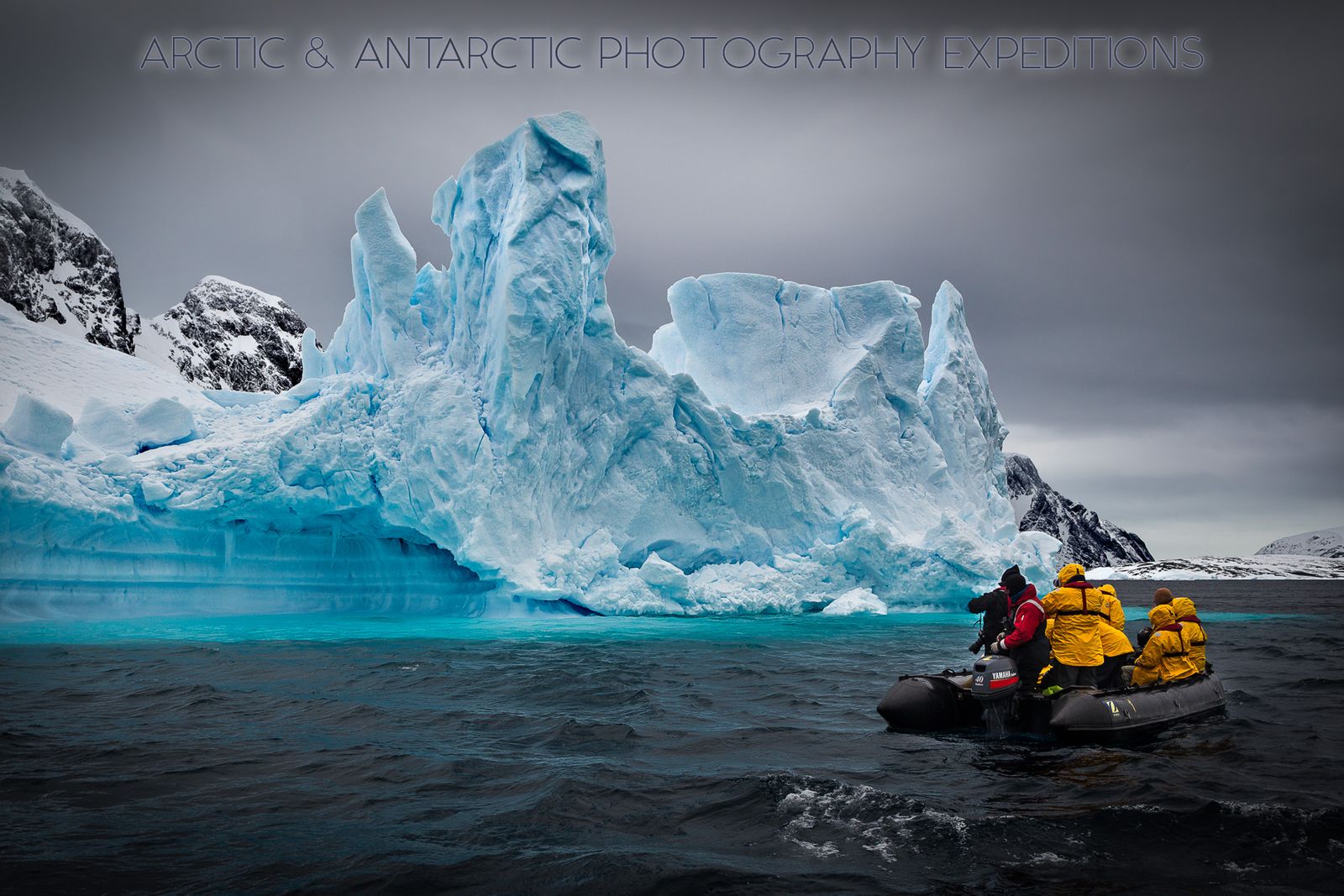
South Georgia Island And Antarctica Expedition Report
November 3 - November 22, 2014
In November 2014 Andy Biggs and I co-led a brand new and very exciting photography expedition to South Georgia Island and Antarctica. This twenty day (yes, 20 days!) photography expedition departed Ushuaia in South America on the 3rd of November 2014 and was designed to provide the definitive South Georgia Island photography experience. We sailed first to the Falkland Islands where we photographed nesting Black-Browed Albatross and comedic Rock Hopper Penguins. We then set sail for South Georgia Island where we saw and photographed the world's largest King Penguin rookeries, majestic albatross, seals and a plethora of bird life. Kelp strewn beaches were cluttered with basking elephant seals, feisty fur seals and hundreds of penguins that proved a wildlife photographers dream. Stromness and Grytviken harboured 3000 metre rocky peaks that rose up from the ocean to form amazing backdrops to the remains of whaling stations that met all our wishes for dramatic landscape. South Georgia’s remote, untamed landscape was simply stunning. Scattered across the mighty Southern Ocean, the tiny arc of windswept islands and harbours are some of the world’s greatest wildlife sanctuaries set against world class landscapes. Famed for its abandoned whaling stations and Shackleton’s heroic journey, South Georgia is home to literally millions of fur seals and penguins, wallows of elephant seals, and nesting albatross. South Georgia Island proved an absolute paradise for wildlife and landscape photography. After South Georgia we steamed south to the Antarctic Peninsula where we spent time photographing amazing icebergs and the spectacular Antarctic landscape. We were fortunate to encounter some gigantic tabular icebergs coming out of the Weddell Sea and we were able to take advantage of the situation to create some amazing photographs. We sailed through the spectacular Lemaire Channel under an incredible Antarctic sunset and explored many of the peninsula’s islands, bays and coves. After we finished photographing in Antarctica we sailed back to Ushuaia where we docked on the 22nd of November and concluded our expedition.
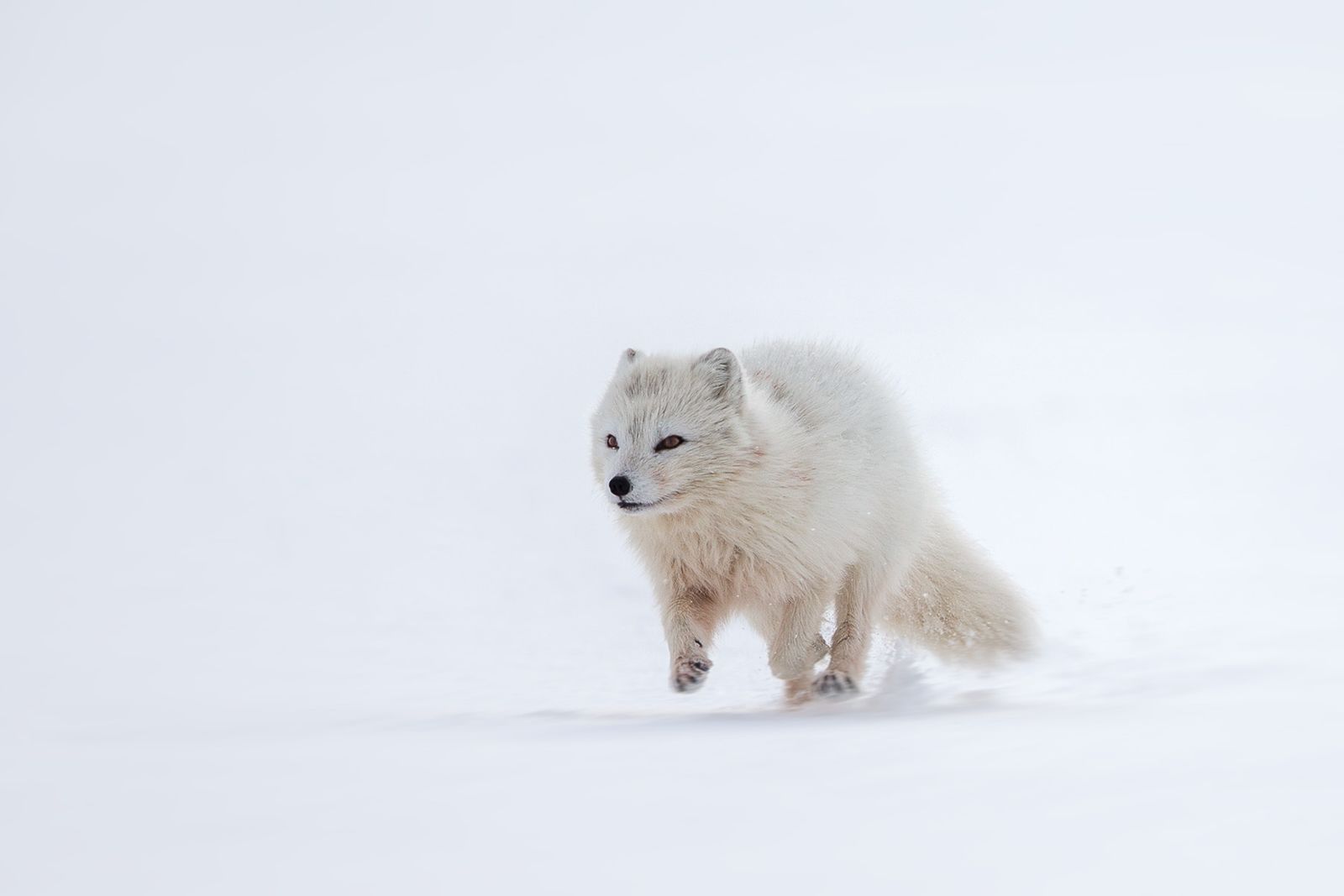
Jewels Of The Arctic Expedition Report
August 22 - September 5, 2014
In August and September 2014 I co-led a photographic expedition to Greenland and Svalbard aboard the expedition ship ‘Polar Pioneer’. We set sail from Isafjordur in Iceland and sailed across the Denmark Strait where explored the incredibly wild and rugged East Coast of Greenland. We navigated many of the fjords, encountering incredible icebergs the size of city blocks as well as rugged mountains that plunged steeply into the dark arctic waters. We then sailed across the Greenland sea and explored the amazing glaciers and arctic landscape of Svalbard before docking in Longyearbyen where we concluded our voyage. This expedition combined the very best of Greenland and Svalbard and provided us with truly amazing photographic opportunities - The 'Jewels of the Arctic'. Spitsbergen’s rugged northwest coast comprises mountains, tundra and fjords. Greenland’s remote east coast shows off the immensity of the icecap, fantastic icebergs and massive granite spires rising over 1000 metres above the fjords. The arctic landscape is one of untold splendour and beauty and this expedition was designed to maximise the photography opportunities. The expedition was for a strictly limited number of 50 participants plus leaders and expedition guide. We utilised the ice hardened expedition ship ‘Polar Pioneer’ with a highly experienced crew in order to ensure we could get as close as possible to big ice and place us in the best locations for making photographs. Our expedition ship was equipped with sufficient zodiacs and crew for all photographers to be shooting simultaneously with plenty of room to spare for our camera equipment. The expedition offered a complete Arctic experience for photography: tundra walks amidst reindeer and exquisite dwarf vegetation, zodiac cruises near icebergs and calving glacier fronts, hikes to breathtaking mountain vistas and warm welcomes into indigenous communities. We saw and photographed reindeer, Musk Ox, countless sea and land birds, walrus, seals, and whales amongst the breathtaking arctic landscapes.
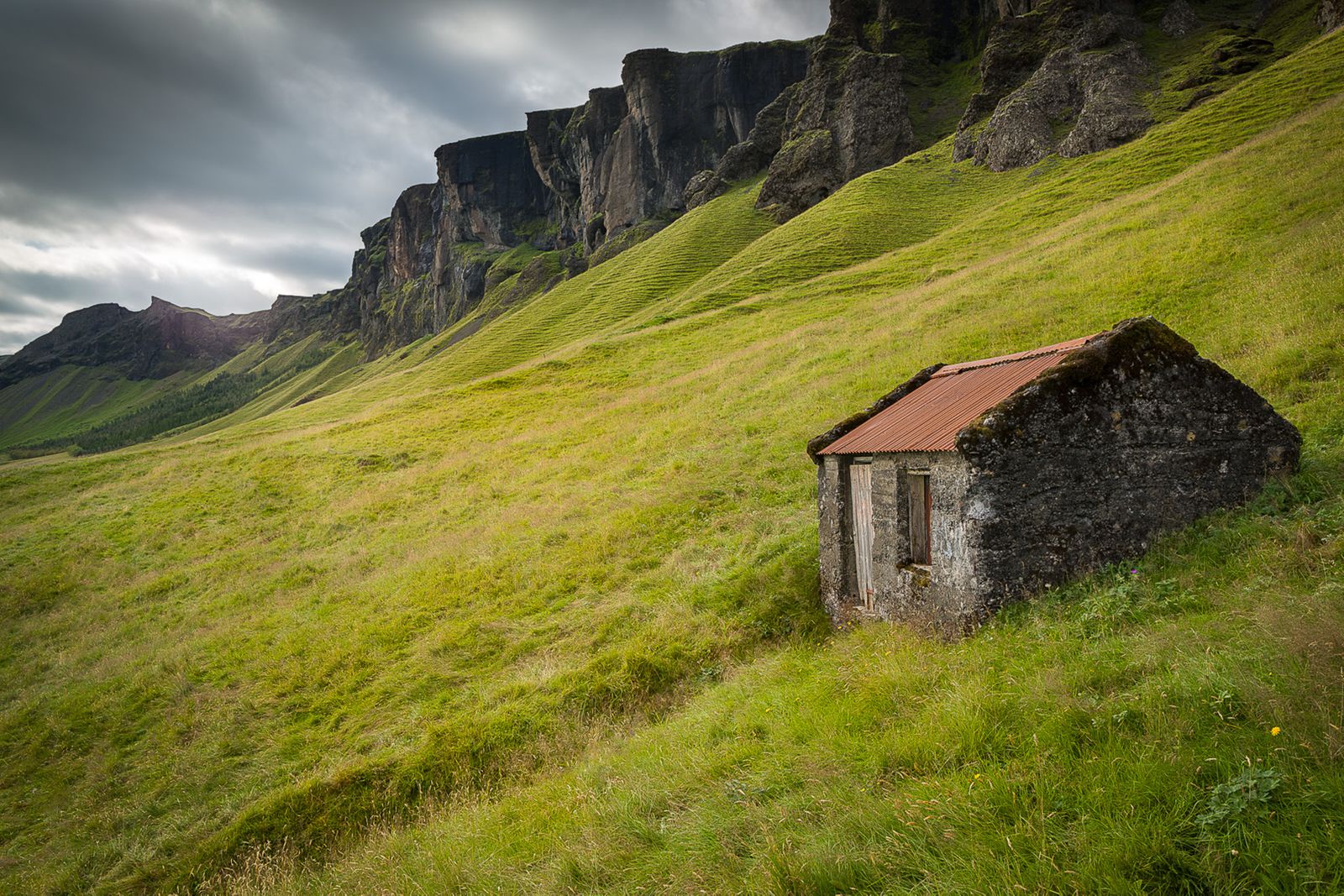
Iceland Ultimate Summer Workshop II And III Report
July 13 - July 23, 2014 and July 27 - August 6, 2014
In July and August 2014, I co-led two back-to-back workshops to Iceland with my good friend and Pro Nature Photographer Daniel Bergmann. These workshops included brand new itineraries that we custom designed to take in the very best of Iceland under the spectacular Midnight Sun. Our workshops saw us circumnavigate the entire Island and primarily focused on the spectacular highland and coastal landscapes of Iceland. Normally inaccessible in winter, the interior of Iceland, known as the highlands, is an extraordinary place for landscape photography. It is a landscape of contrasts; wide vistas and pristine wilderness, mountain ranges, glaciers, waterfalls and geothermal volcanic features. Iceland is one of the most exciting and rewarding photography locations in the world and during these workshops we visited a great many of its natural wonders. During the workshops we photographed Glaciers and geothermal areas, waterfalls and lush green valleys, sub-arctic tundra, majestic mountains, icebergs and black volcanic beaches. We experienced the ever changing weather and spectacular light conditions that Iceland is renowned for. These 2014 Iceland Ultimate Summer Workshops were CPD (Continual Professional Development) accredited by the AIPP (Australian Institute of Professional Photographers). Please be sure to visit the Testimonials page for client feedback on what were extremely successful workshops.
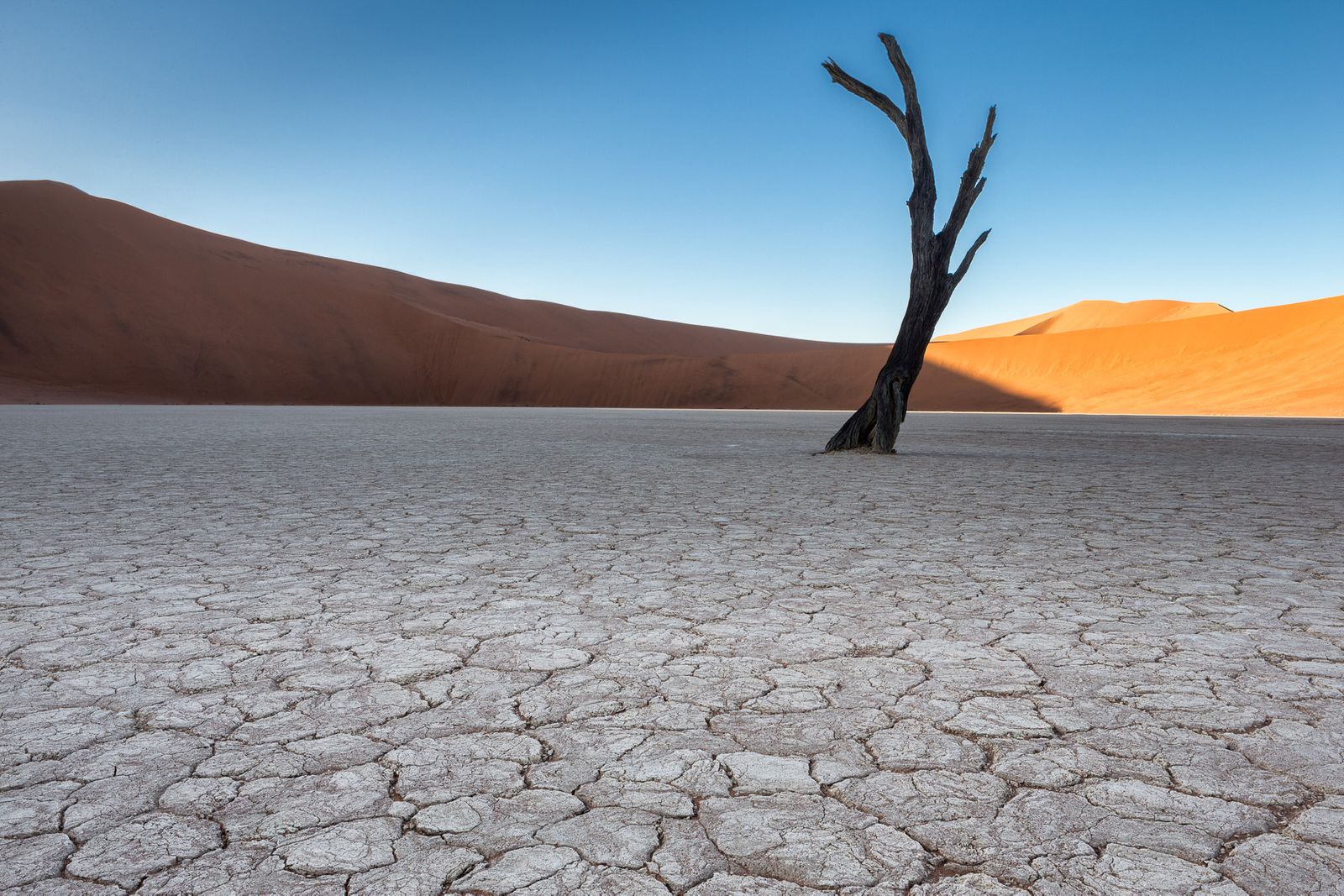
Namibia Overland Workshop Safari I And II Report
- March 29 - April 7, 2014 and April 8 - April 17, 2014
- November 21st - November 28th, 2015
In March and April 2014, I co-led back-to-back workshops with Andy Biggs to the Namibia desert in Namibia, Africa. The goal of these safaris was to photograph the breathtaking desert landscapes of Namibia in a different way than Andy has offered on his Namibia trips in the past: in an overland fashion. These were overland photographic journies, and we had complete flexibility to stop to take photographs at any time along the way. We wanted to put these trips together that had a good balance between flexibility, photographic opportunities and comfortable accommodations. This approach also enabled us to carry more than enough amount of camera baggage, so we were able to bring everything we needed. On the South Western Coast of Africa, where the icy Atlantic ocean meets the world’s oldest desert lies a place that is known for its landscapes as much as the Serengeti is known for its abundant wildlife. The unique combination of desert, grassland and cold ocean current form a one-of-a-kind terrain found only here. For this reason landscape photographers from all over the world journey to the Namibia Desert to try and capture its ethereal beauty. In this captivating region of Namibia lies a maze of mountainous valleys that look like they were carpeted from slope to slope by ivory coloured grass, criss-crossed by ancient riverbeds and dotted with a collection of photogenic acacia trees. The final unique touch is added by the large snake like dunes that rise from the grasslands like the roof of some subterranean world. These stark and compelling landscapes are something to behold with the human eye, but when it’s sweeping meadows, barren mountains and blood red dunes are captured and transformed into a two dimensional image, it becomes obvious why this place is so beautifully addictive to photographers. These new safaris were custom tailored to take in the very best of Namibia and included such iconic areas as the mystical Deadvlei, the ghost town of Kolmanskop and the Dune landscapes of Sussusvlei.

Iceland Winter Aurora Workshop Report
March 9 - March 18, 2014
In March 2014 I co-lead a winter Aurora workshop to Iceland with my good friend and fellow Pro Nature Photographer Daniel Bergmann. This photography workshop focused on the spectacular geothermal area at Myvatn as well as ice-caves, Northern Lights (Aurora), glaciers, partially frozen waterfalls and coastal landscapes of Iceland. The days were starting to get longer in March, which provided us with some fantastic soft light on what was often a freshly snow covered landscape. On this workshop we photographed the spectacular northern geothermal landscapes found around Myvatn and Namafjall. We also visited and photographed the crystal clear glaciers and icebergs found at the Vatnajökull ice cap and Jökulsárlón glacial lagoon. We even experienced and photographed the amazing natural phenomena of the Aurora Borealis (Northern Lights) on our last full day in Iceland. Please be sure to visit the Testimonials page for client feedback on what was a successful workshop.
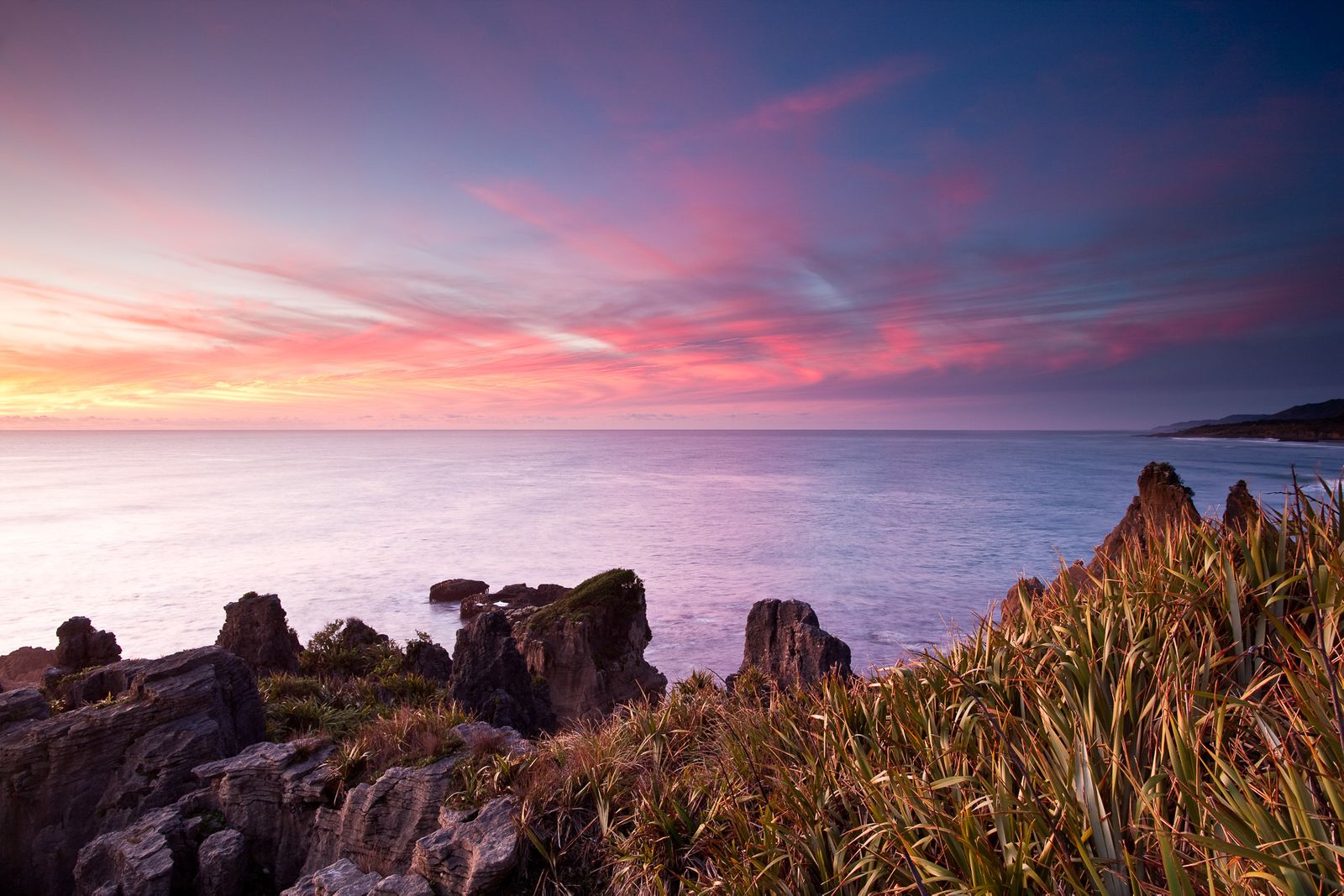
New Zealand's South Island Summer Workshop Report
February 15 - February 26, 2014
Late February 2014 I returned home from a brand new Summer workshop to the South Island of New Zealand with my good friend Phillip Bartlett. Our workshop took us on a photographic journey into ‘Middle Earth’ – The spectacular South Island of New Zealand. In case you have not seen the Lord of the Rings movies, the South Island of New Zealand is home to some of the most spectacular scenery and landscapes in the world. It is no co-incidence that Peter Jackson chose the South Island of New Zealand to film the Hobbit and the Lord of the Rings movies. Perhaps nowhere else in the world can one see and photograph precipitous alpine mountains plunging into temperate rain forest and wild ocean beaches in so short a space. New Zealand is home to an incredibly diverse range of subject matter in a small island. Glaciers, waterfalls, spectacular valleys, imposing mountain ranges and black pebble beaches. It is an island of ever changing weather and spectacular light conditions. It is a country made for photography. Our workshop took us on an eleven night / twelve day odyssey around the South Island to many of its iconic locations and some of its lesser known gems. During our travels we experienced some incredible weather and light as well as some fantastic landscape and wildlife photography opportunities. Two of the main highlights of this workshop included a privately chartered helicopter flight with the doors removed for photography over Fox and Franz Josef Glaciers and the awe inspiring Southern Alps and a privately chartered boat in Kaikoura to photograph Albatross and playful Dusky Dolphins. Both of these experiences were regarded by all on this trip as once in a lifetime and not to be missed.

Antarctica Expedition Report
November 9 - November 23, 2013
In November 2013 I lead a dedicated photographic expedition to Antarctica with my good friend Daniel Bergmann. This expedition had been more than twelve months in the planning and utilised the ice hardened expedition class ship ‘Polar Pioneer’. Polar Pioneer is an ex Russian survey ship that has been refitted for polar expeditions to both Antarctica and the Arctic. It’s ice hardened hull and low decks make it the ideal vessel for polar photography. The expedition was for a strictly limited number of 50 participants plus leaders and expedition guide and offered an extended period in Antarctica (15 Day / 14 night Expedition). Whilst most trips to Antarctica take 100+ tourists this expedition was capped at a maximum of 50 dedicated photographers in order to ensure the best possible experience for all aboard. As it turned out we ended up with just under 50 due to a last minute cancellation which worked in our favour with a smaller number of photographers per zodiac. Many first time Antarctic travellers are unaware of the benefits of travelling in small groups such as this. It is worth noting that many of the locations in Antarctica forbid landing more than 100 people at a time. That means that if you are part of a much larger group you have to draw lots and wait your turn to go ashore and likely miss out on opportunities and great light. We had no such restrictions on this expedition and were able to land all of those photographers who wished to go ashore at each of our chosen landing points. The expedition included special access into areas normally restricted to scientific research (including the Polish Station ‘Arctowski’), as well as taking in amazing locations such as the breathtaking Lemaire Channel, the Gerlache Strait and the surreal geothermal Deception Island, to name but a few. Please be sure to visit the Testimonials page for client feedback on what was a fantastic workshop.

Jewels Of The Arctic Expedition Report
August 18 - August 31, 2013
In August 2013 AIPP Grand Master of Photography Peter Eastway and I co-lead a 14 day / 13 night photographic expedition to Svalbard and Greenland - The Jewels of the Arctic II. The trip set sail from Isafjordur in Iceland and took in the very best of Greenland and Spitsbergen before docking in Longyearbyen in Svalbard, Norway. This expedition was a reverse trip of the previous Jewels of the Arctic adventure. Greenland’s remote east coast showed off the immensity of the icecap, fantastic icebergs and massive granite spires rising over 1000 metres above the fjords. Spitsbergen’s rugged northwest coast comprises mountains, tundra and fjords. The arctic landscape is one of untold splendour and beauty and this expedition was designed to maximise the photography opportunities we encountered. The expedition utilised an ice hardened expedition ship with a highly experienced crew in order to ensure we got as close as possible to big ice. This expedition offered a complete Arctic experience for photography: tundra walks amidst reindeer and exquisite dwarf vegetation, zodiac cruises near icebergs and calving glacier fronts, hikes to breathtaking mountain vistas and warm welcomes into indigenous communities. We saw and photographed reindeer, musk ox, countless sea and land birds, walrus, seals, whales and polar bears amongst the breathtaking arctic landscapes. We had nearly 24 hours of daylight with hours and hours of golden light. At our most northerly position we were approximately 600 miles from the North Pole. Please be sure to visit the Testimonials page for client feedback on what was a fantastic workshop.
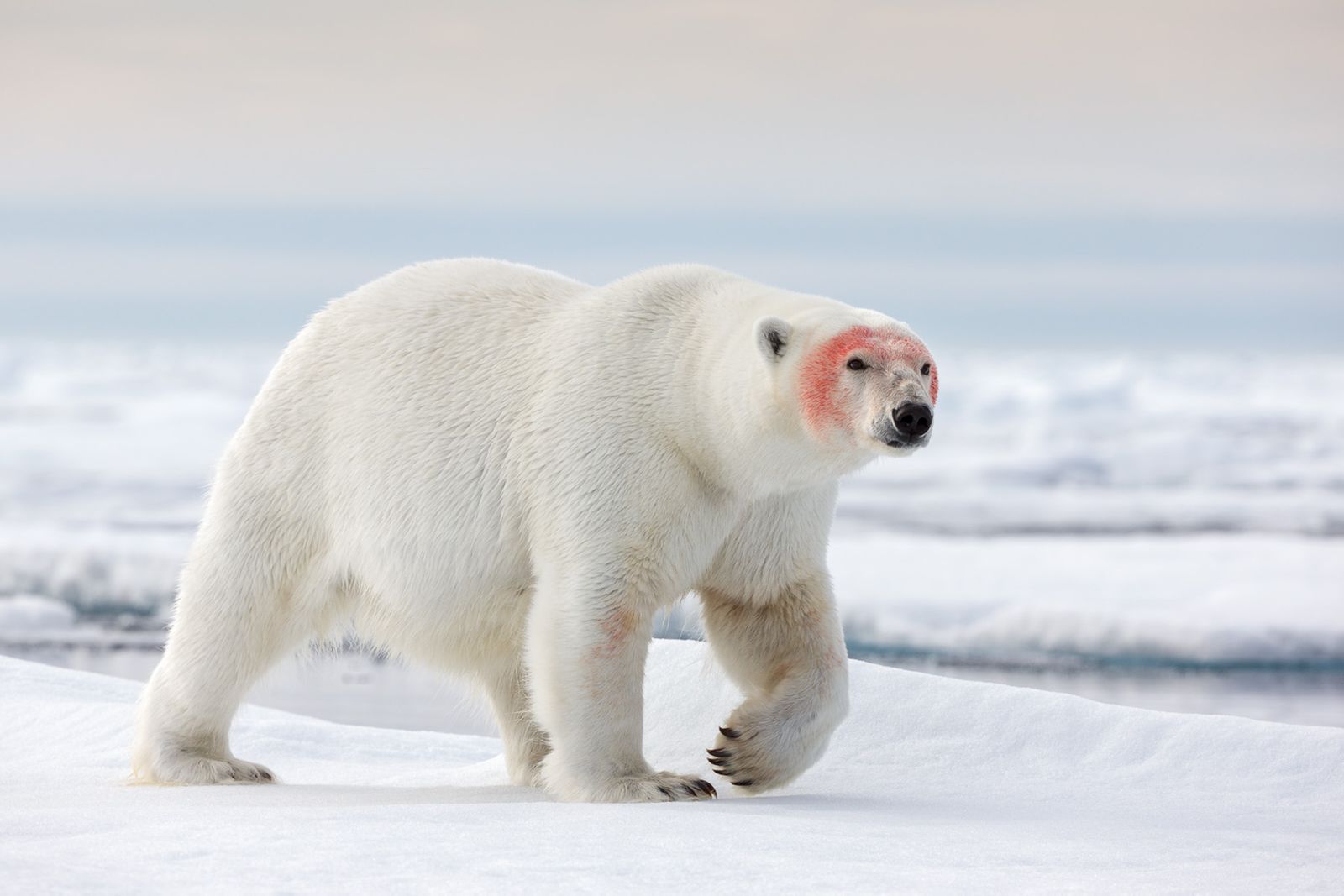
Jewels Of The Arctic Expedition Report
August 5 - August 18, 2013
In August 2013 Daniel Bergmann and I co-lead a new 14 day / 13 night photographic expedition to Svalbard and Greenland - The Jewels of the Arctic. The trip set sail from Longyearbyen in Svalbard, Norway and took in the very best of Spitsbergen and Greenland before docking in Isafjordur in Iceland. Spitsbergen’s rugged northwest coast comprises mountains, tundra and fjords. Greenland’s remote east coast shows off the immensity of the icecap, fantastic icebergs and massive granite spires rising over 1000 metres above the fjords. The arctic landscape is one of untold splendour and beauty and this expedition was designed to maximise the photography opportunities. The expedition utilised an ice hardened expedition ship with a highly experienced crew in order to ensure we got as close as possible to big ice. This expedition offered a complete Arctic experience for photography: tundra walks amidst reindeer and exquisite dwarf vegetation, zodiac cruises near icebergs and calving glacier fronts, hikes to breathtaking mountain vistas and warm welcomes into indigenous communities. We saw and photographed reindeer, musk ox, countless sea and land birds, walrus, seals, whales and polar bears amongst the breathtaking arctic landscapes. We had nearly 24 hours of daylight with hours and hours of golden light. At our most northerly position we were approximately 600 miles from the North Pole. Please be sure to visit the Testimonials page for client feedback on what was an amazing workshop.

Iceland Summer Highlands Workshop Report
- July 12 - July 21, 2013
- November 21st - November 28th, 2015
In mid July 2013 I lead a summer workshop with Daniel Bergmann focusing on the coastal landscapes and spectacular highland regions of Iceland. Normally inaccessible in winter, the interior of Iceland, known as the highlands, is an extraordinary place for landscape photography. It is a landscape of contrasts; wide vistas and pristine wilderness, mountain ranges, glaciers, waterfalls and geothermal volcanic features. On this workshop we photographed the spectacular coastal landscapes of the Snæfellsnes Peninsula and crystal clear glaciers and icebergs found at the Vatnajökull ice cap and Jökulsárlón glacial lagoon. We headed into the interior of Iceland along the scenic F208 road to the spectacular Fjallabak Nature Reserve where we stopped to photograph incredible landscapes. We also visited and photographed the surreal alien landscape at Veidivötn where volcanic craters filled with deep blue water dot the lunar landscape. The 2013 Iceland Summer Highlands Workshop was CPD (Continual Professional Development) accredited. For AIPP (Australian Institute of Professional Photographers) members that meant you automatically accrued CPD points toward your required annual target by attendance at the workshop. Please be sure to visit the Testimonials page for client feedback on what was an amazing workshop.
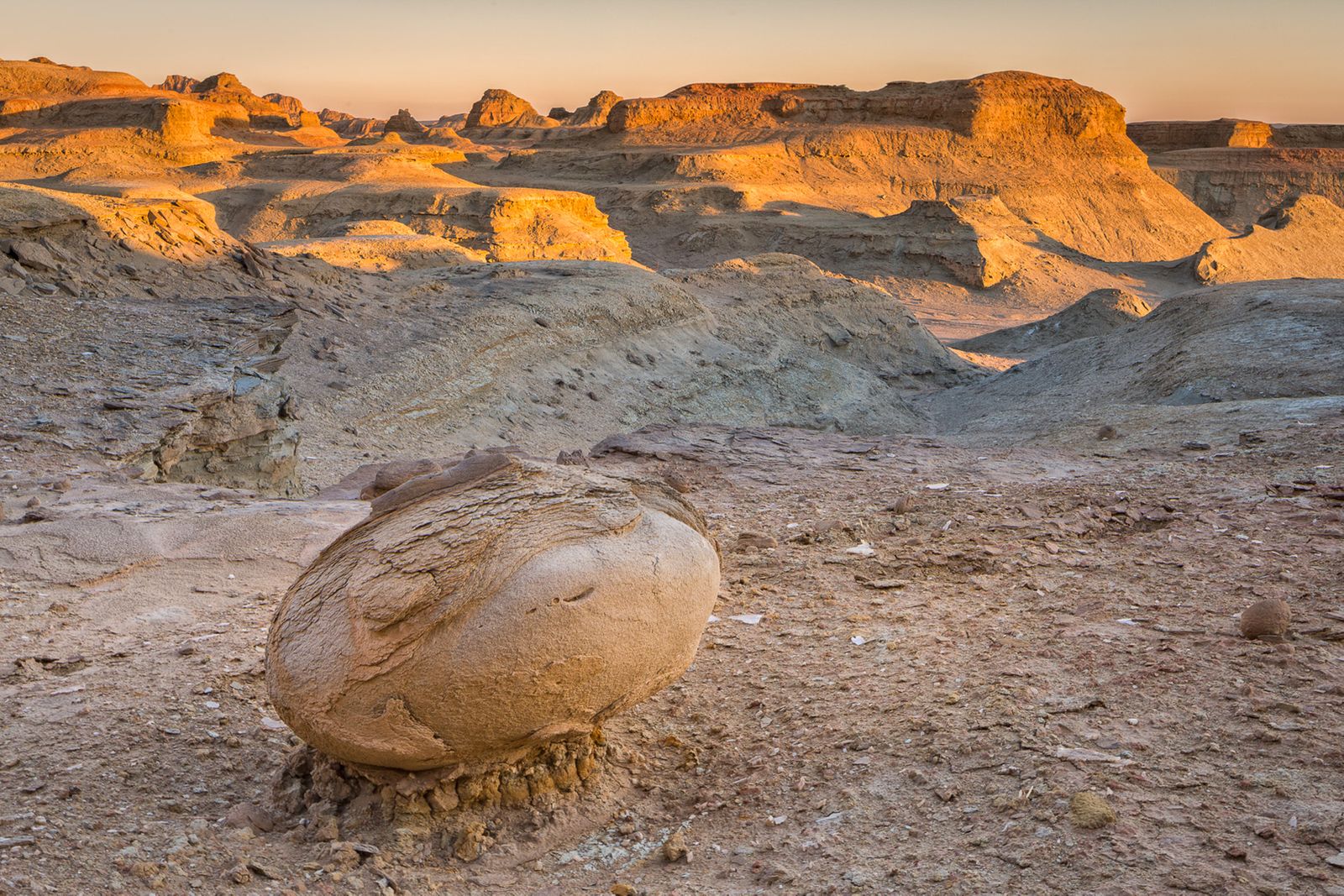
Xinjiang Uygur Region China Report
- May 3 - May 18, 2013
- November 21st - November 28th, 2015
In early May 2013 I lead an exploratory expedition into the Xinjiang Augur autonomous region in the extreme north west of China with my good friend Antony Watson. This is an extremely remote part of northern China that is home to the spectacular Tian Shan and Altay mountain ranges as well as the Flaming Mountains, Kanas Lake, Gobi Desert and more. This part of rural China is also home to the silk road and other historical locations of importance including the thousand caves of Buddha (two – three thousand year old caves). The province actually borders Russia, Kazakstan, Tajikistan, Pakistan, Kurdistan, Mongolia, and India so there is a real cultural mix of minority people and a very heavy Arabic influence. At one point during our travels we were only 60km from the Kazakstan and Russian borders. Many of the locations we visited were hundreds of kilometres from built up infrastructure and were well off the beaten tourist path. This remote region of China is rarely visited by the outside world and on several occasions we were greeted by local Kazak people who had never before seen westerners in their lives. It was an extraordinary and fascinating expedition with some truly spectacular landscapes.
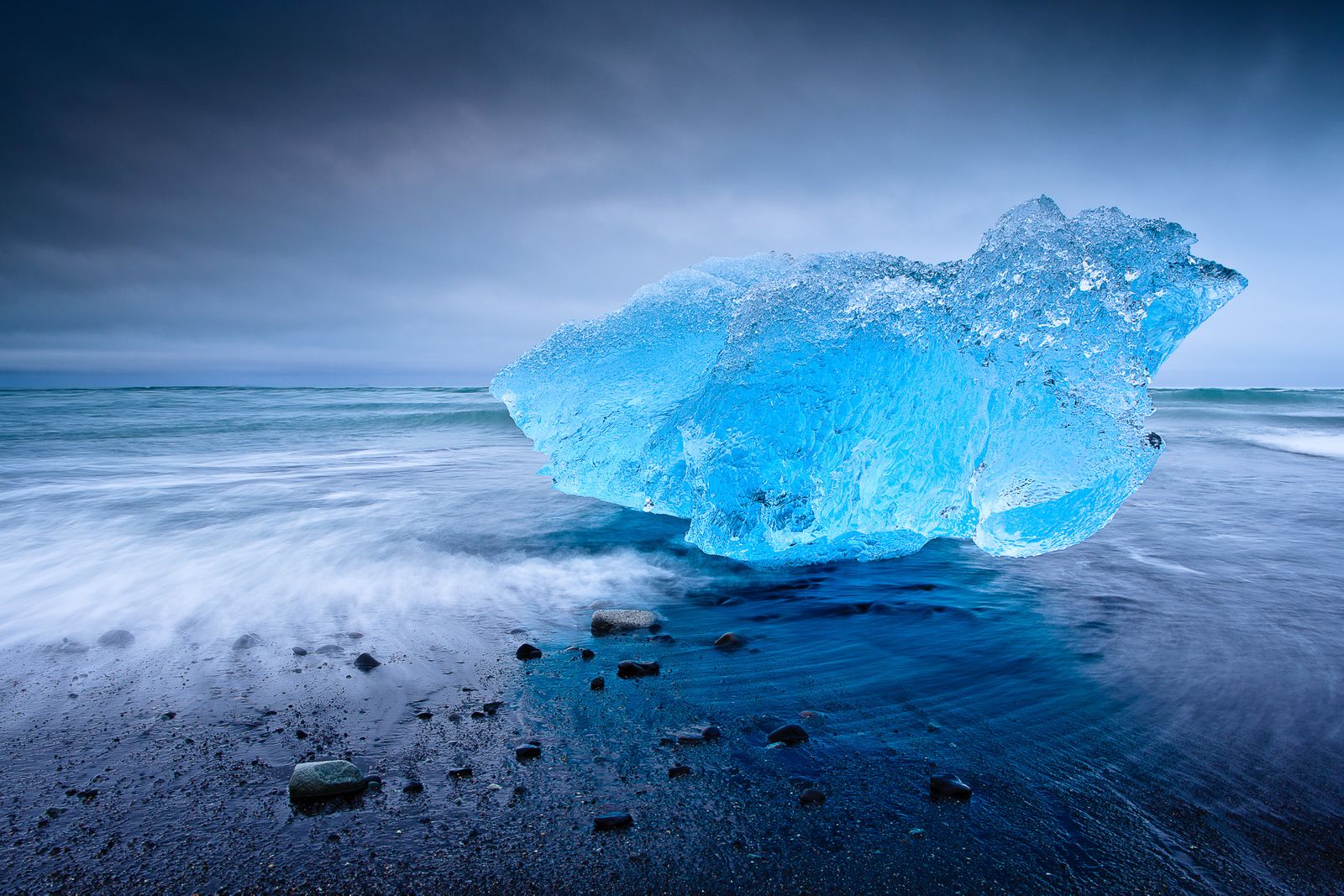
Iceland Winter Aurora Workshop II Report
March 22 - March 31, 2013
In March 2013 I co-lead a second winter Aurora workshop to Iceland with Moab Master Photographer Andy Biggs. This photography workshop focused on the spectacular Northern Lights (Aurora), glaciers, partially frozen waterfalls and coastal landscapes of Iceland. The days were starting to get longer in March, which provided wonderful golden light on what was often a freshly snow covered landscape. On this workshop we photographed the spectacular coastal landscapes of the Snæfellsnes Peninsula and crystal clear glaciers and icebergs found at the Vatnajökull ice cap and Jökulsárlón glacial lagoon. The weather conspired against and unfortunately we did not get to see or photograph the Aurora Borealis during this trip although we did experience some wonderful light and dramatic seas at the sea stacks at Vik. The 2013 Iceland Winter Aurora Workshop was CPD (Continual Professional Development) accredited. For AIPP (Australian Institute of Professional Photographers) members that meant you automatically accrued CPD points toward your required annual target by attendance at the workshop. Please be sure to visit the Testimonials page for client feedback on what was a successful workshop.
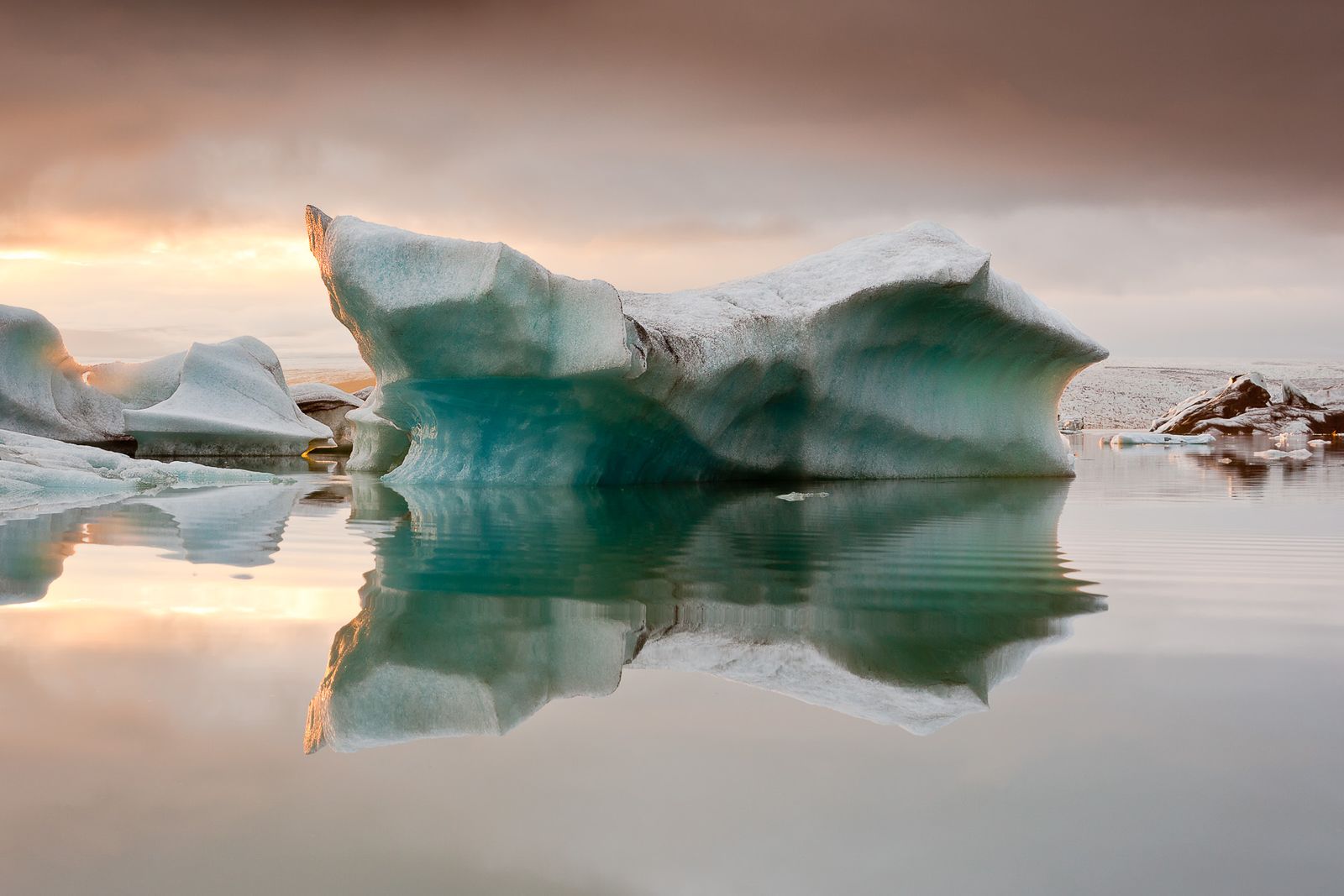
Iceland Winter Aurora Work Shop Report
March 9 - March 18, 2013
In March 2013 I co-lead a winter Aurora workshop to Iceland with Moab Master Photographer Andy Biggs. This photography workshop focused on the spectacular Northern Lights (Aurora), glaciers, partially frozen waterfalls and coastal landscapes of Iceland. The days were starting to get longer in March, which provided wonderful golden light on what was often a freshly snow covered landscape. On this workshop we photographed the amazing natural phenomena of the Aurora Borealis (Northern Lights), spectacular coastal landscapes of the Snæfellsnes Peninsula and crystal clear glaciers and icebergs found at the Vatnajökull ice cap and Jökulsárlón glacial lagoon. The 2013 Iceland Winter Aurora Workshop was CPD (Continual Professional Development) accredited. For AIPP (Australian Institute of Professional Photographers) members that meant you automatically accrued CPD points toward your required annual target by attendance at the workshop. Please be sure to visit the Testimonials page for client feedback on what was a successful workshop.

Great Ocean Road Workshop Report
October 12 - October 15, 2012
In October 2012 I launched a brand new photographic workshop to the icons of the Great Ocean Road in Victoria Australia. Perhaps best known for its mighty sea stacks at the iconic 12-Apostles, the Great Ocean Road is one of the world's leading tourist attractions and is packed with fantastic photographic opportunities. Perhaps nowhere else in the world is there coastline as unique and spectacular as that found along this stretch of Victorian coastline. Location highlights for this tour included Gibson’s Steps, the Twelve Apostles, London Bridge, Lochard Gorge, and Hopetoun Falls. We also visited quite a few lesser known locations including a Californian Red Wood forest plantation, the Shipwreck Coast and Cape Otway lighthouse. The 2012 Great Ocean Road workshop was CPD (Continual Professional Development) accredited. For AIPP (Australian Institute of Professional Photographers) members that meant you automatically accrued CPD points toward your required annual target by attendance at the workshop. Please be sure to visit the Testimonials page for client feedback on what as an amazing workshop.

Iceland Summer Highlands Workshop Report
July 25 - August 3, 2012
In July and August 2012 I co-lead a summer workshop to Iceland with Pro Nature photographer Daniel Bergmann. This photography workshop focused on the spectacular highland and coastal landscapes of Iceland. Normally inaccessible in winter, the interior of Iceland, known as the highlands, is an extraordinary place for landscape photography. It is a landscape of contrasts; wide vistas and pristine wilderness, mountain ranges, glaciers, waterfalls and geothermal volcanic features. Iceland is one of the most exciting and rewarding photography locations in the world. Probably nowhere else is there such a diversity of subject matter in a relatively small area. Glaciers and geothermal areas, waterfalls and lush green valleys, majestic mountains and black volcanic beaches. Along with ever changing weather and spectacular light conditions. Iceland is geologically a very young country and very much a work in progress. On this workshop we photographed crystal clear glaciers and icebergs, spectacular waterfalls and geothermal wonders under the spectacular midnight sun. Please be sure to visit the Testimonials page for client feedback on what was an amazing workshop.

Antarctica Expedition Report
November 30 - December 10, 2011
In November 2011 I participated in a group photography expedition to Antarctica with African wildlife photographer and friend Andy Biggs. The expedition set sail from Ushuaia at the bottom of South America aboard the 'Ocean Nova' and crossed the notorious Drake Passage to reach the Antarctic Peninsula where we spent a week exploring and photographing the Great White Continent. Location highlights for the expedition included The Gerlache Strait, Wilhelmeina Bay, Half Moon Bay, The Lemaire Channel and the surreal geothermal Deception Island. We visited and photographed some fantastic landscapes comprising of precipitous mountains and glaciers, snow fields and icebergs along with wildlife sightings including Penguins, Orcas and seals amidst a myriad of Antarctic Sea Birds. We also experienced a diverse array of Antarctic weather and light that included some of the most beautiful snow fall I have ever experienced.
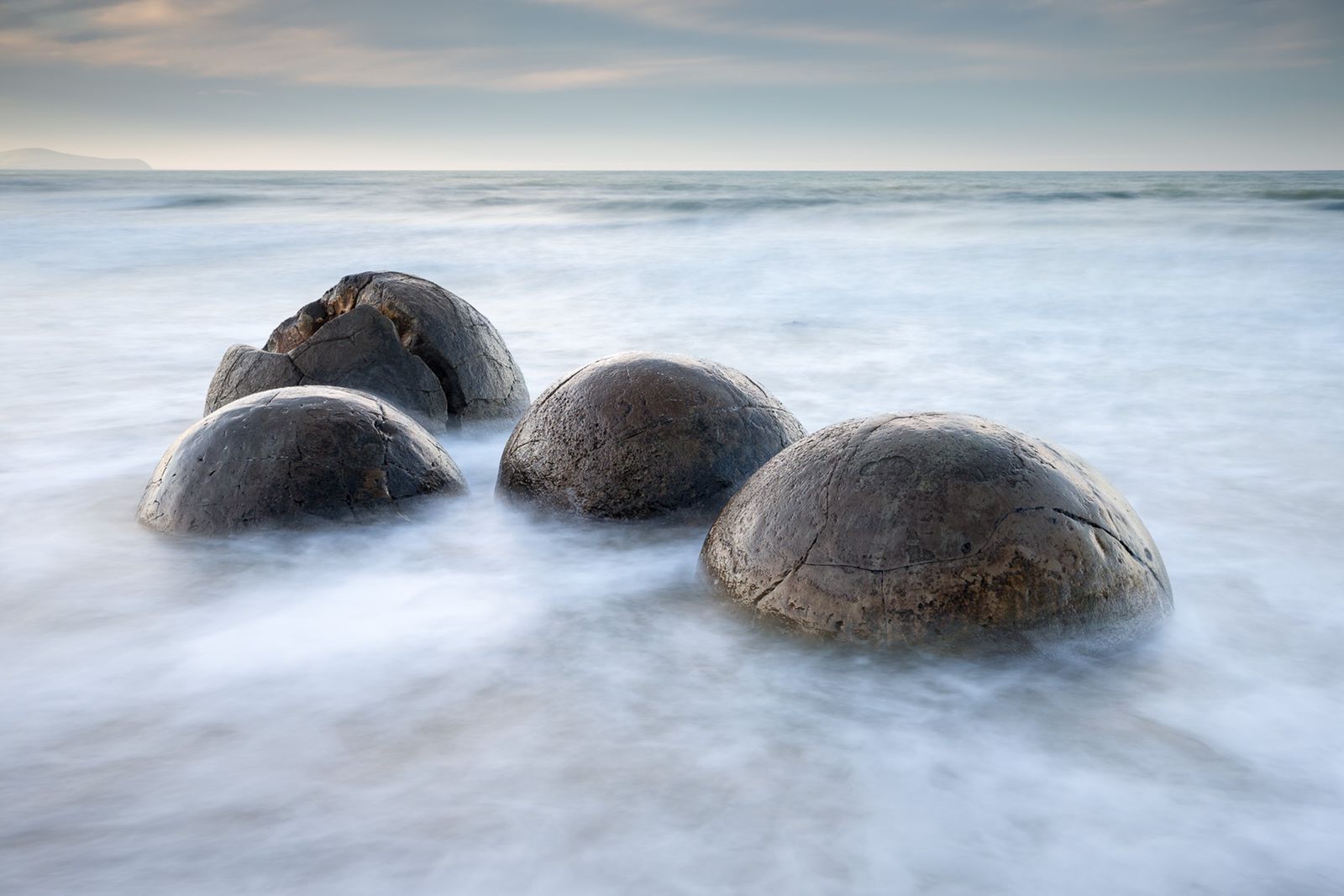
New Zealand's South Island Winter Workshop Report
June 16 - June 25, 2011
Please note that there was no trip report for this workshop.

Iceland Summer Highlands Workshop Report
July 31 - August 9, 2010
In the summer of 2010 I participated in a truly remarkable photography workshop to Iceland in conjunction with professional nature and landscape photographer Daniel Bergmann. This workshop focused predominantly on the highland and coastal regions of Iceland including the spectacular and unique Jokulsarlon glacial lagoon, the geothermal and volcanic highlands of Landmannalaugar and Veidivotn, the remote and awe inspiring Volcanic craters and calderas at Askja in the remote central highlands and many of Iceland's most impressive and dramatic waterfalls including Godafoss, Selfoss and the mighty Dettifoss. We were fortunate to experience some dramatic light under the midnight sun in some of the world's best locations for landscape photography.
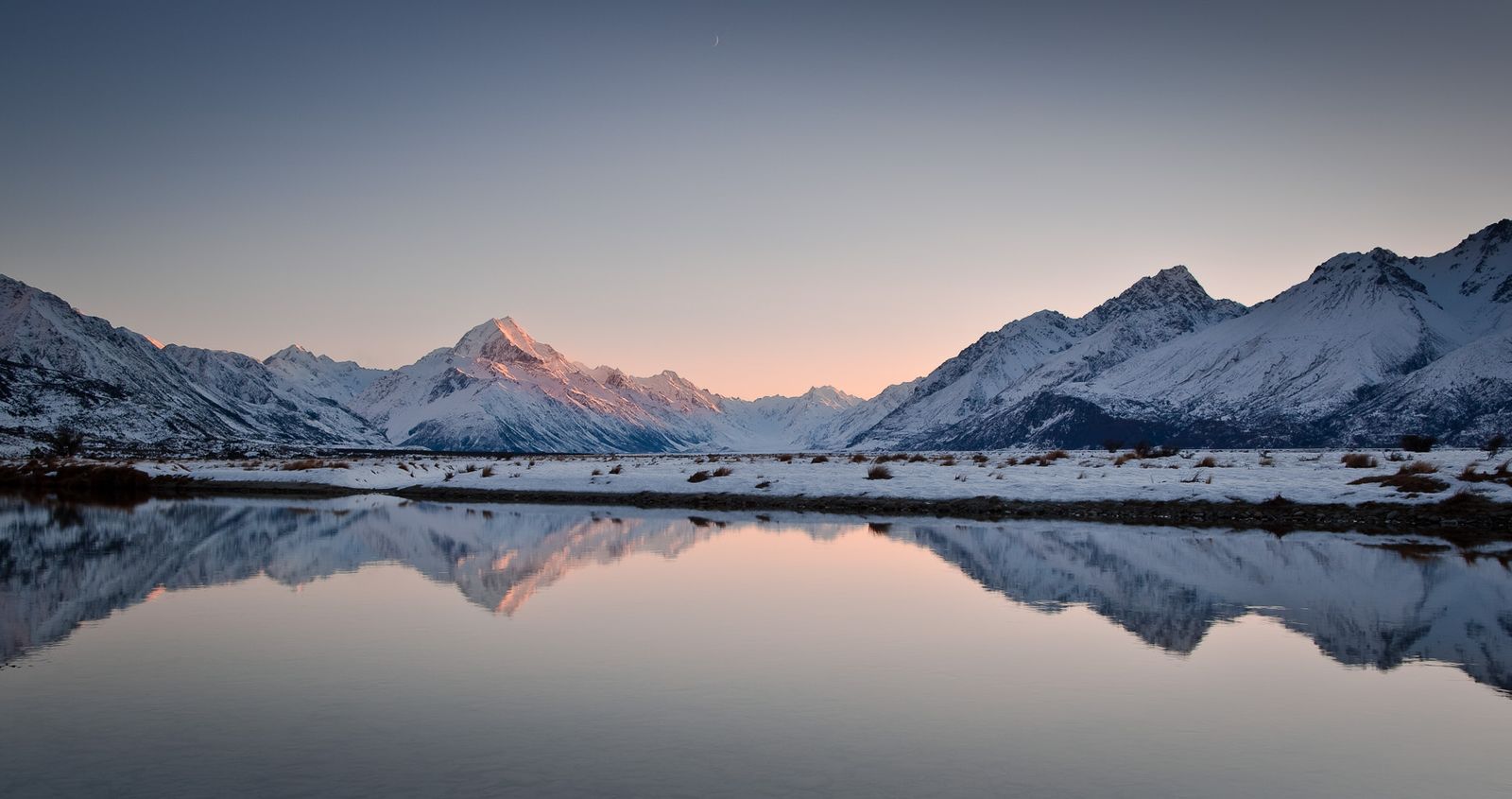
New Zealand's South Island Winter Workshop Report
July 10 - July 22, 2009
Deep in the winter of 2009 I participated in a photography workshop to the South Island of New Zealand in conjunction with professional nature and landscape photographer Phillip Bartlett. The South Island of New Zealand is home to lush forests, waterfalls, spectacular mountains and glaciers and has unique stretches of truly wild and rugged coastline that make it a photographic paradise. We were fortunate to experience some fabulous weather and light throughout the trip including some outstanding alpine glow at Mount Cook and Mount Tasman. This workshop included multiple helicopter photography sessions over the Alps and glaciers including Mount Cook, Mount Tasman, Fox Glacier and Franz Josef Glacier. We also landed on Fox Glacier to explore and photograph the ice caves.